DBair IL (Trunnion Mount) Complete 100 Hour Service Instructions (Part 1 of 4)
Mar 2022 orig., Jun 2024 rev.
Table of Contents
Recommendations and Warnings
Cane Creek recommends only trained suspension technicians perform service on all suspension, using all required tools and following all proper procedures. Anyone without access to the proper equipment or with any concerns on the procedures should defer to an authorized Cane Creek service center for service. Improper service can result in loss of performance or suspension failure. All Cane Creek shocks have pressurized nitrogen and oil, even coil shocks. Follow the service procedures exactly as written to avoid possible injury or harm to the suspension. Always wear eye protection while performing suspension service.
Please dispose of all waste products and materials through proper channels to avoid contamination of the environment.
Any damage or issues resulting from improper service will not be covered by warranty. If you have a shock still in its original warranty period and do not wish to void your warranty, please contact an authorized Cane Creek service center.
These service instructions cover the basic service procedures using standard service kits. If your suspension requires parts beyond standard replacement parts – shaft, damper tubes, end eyes – please consult your authorized Cane Creek service center or contact us at our Cane Creek Support Center.
Service Notes
The Air IL and Coil IL as well as the Standard and Trunnion variants of both share many service steps. Some images in these instructions may not be identical to the valve body or outer damper tube on the Air IL Standard, but that is only when the process is the same for the shock in the image and the shock on your bench.
Service Kits
BAD1214T – DBInline/DBair IL Damper Rebuild Kit (Trunnion)
BAD2279 – DBair IL Air Spring Rebuild Kit
Required Cane Creek Tools
BCD0344 – Kitsuma/DBair/DBair IL Air Seal Head Tool
AAD1193 – Air Seal Head Bullet – Red (or original AAD1182 – Air Seal Head Bullet – Green)
BAD1459 – Air Piston Funnel
BAD1032 – Gland Nut Wrench
BAD1174 – Oil Seal Head Pin Spanner Wrench
BAD1268 – Inline – Oil Fill Needle Adaptor
DBT016 – DB Gas Fill Needle
AAD0555 – 8mm & 9.5mm Shaft Clamp
AAD1454 – Kitsuma/IL Trunnion CS Bullet
BAD1273 – Inner Damper Tube Install Tool
Additional Tools & Supplies
Allen wrenches – 1.5, 3 & 4mm
Torx wrenches – T10, T15 & T25
1/2″ crowfoot wrench
Torque wrenches
Pick
Suspension Grease
Royal Purple 10w-30 Oil
Motorex 4wt Racing Fork Oil
Vacuum Oil Fill Machine
Nitrogen Fill System
Torque, Loctite, Oil & Nitrogen Specs
Torque & Loctite Chart
| Part | Torque Spec | Loctite Spec |
|---|---|---|
| Shaft Bolt | 5 Nm | 243 (Blue) |
| TSN | 0.67 Nm | 668 (Green) |
| Spool Valve | 0.16 Nm | 243 (Blue) |
| Inner Damper Tube | 17 Nm | 263 (Red) |
| Oil Seal Head | 15 Nm | None |
| Gland Nut | 52 Nm | 243 (Blue) |
| Climb Switch Screw | 0.16 Nm | 243 (Blue) |
| Air Piston Screws | 3.2 Nm | 243 (Blue) |
| End Eye | 4.8 Nm | 243 (Blue) |
| Inner Air Can/Air Seal Head | 22.6 Nm | None (PolyLube) |
Oil Chart
| Oil Location | Oil Type | Oil Amount |
|---|---|---|
| Air Can | Royal Purple 10w-30 | 5 mL |
| Damper Fill | Motorex 4wt Racing Fork Oil | Fill to 3 Bars |
Nitrogen Chart
| Nitrogen Location | Nitrogen Pressure |
|---|---|
| Valve Body | 11 - 12 Bars |
Related Technical Service Bulletins
Review all related TSBs before performing any service.
No DBair IL specific TSBs at this time.
General Prep
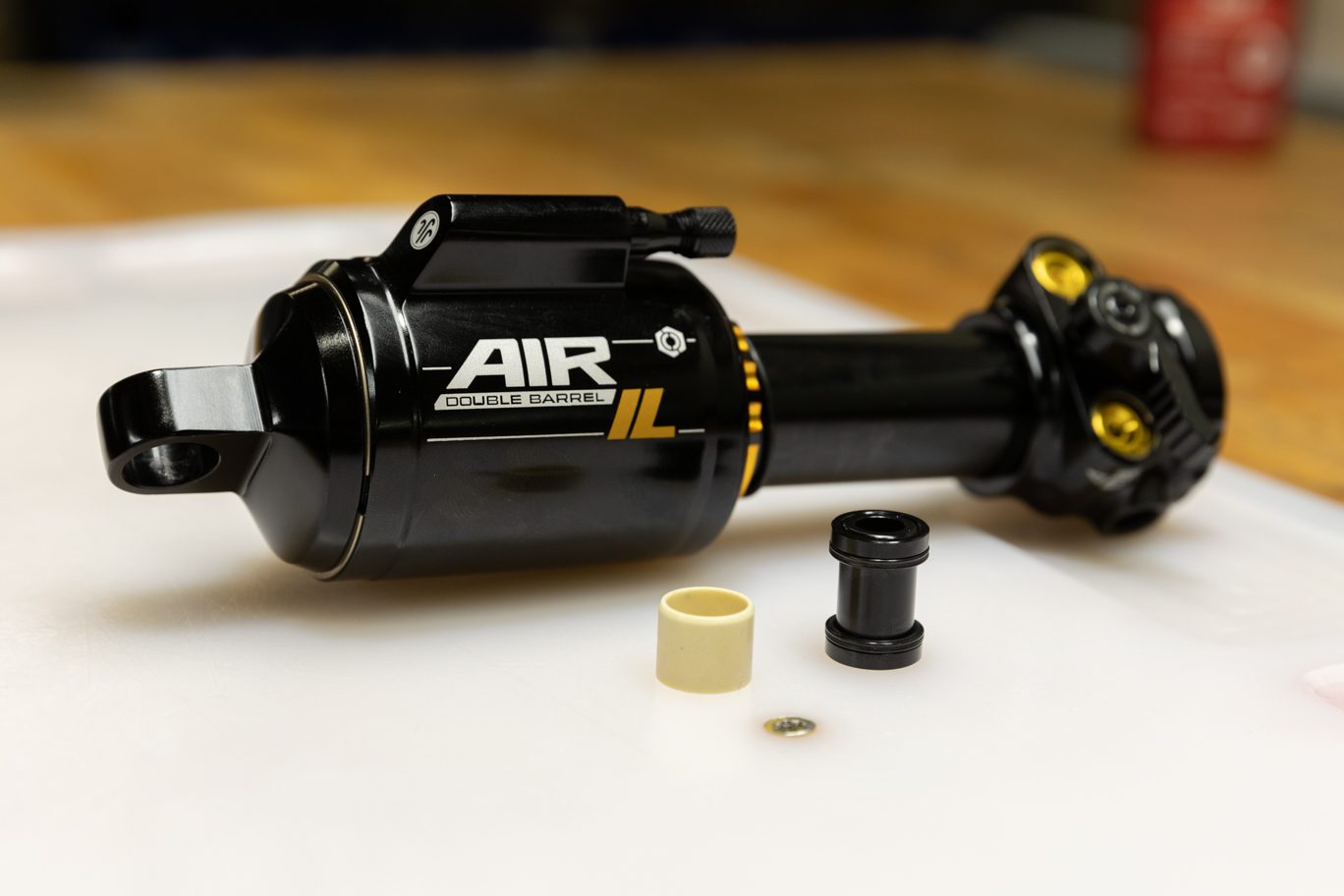
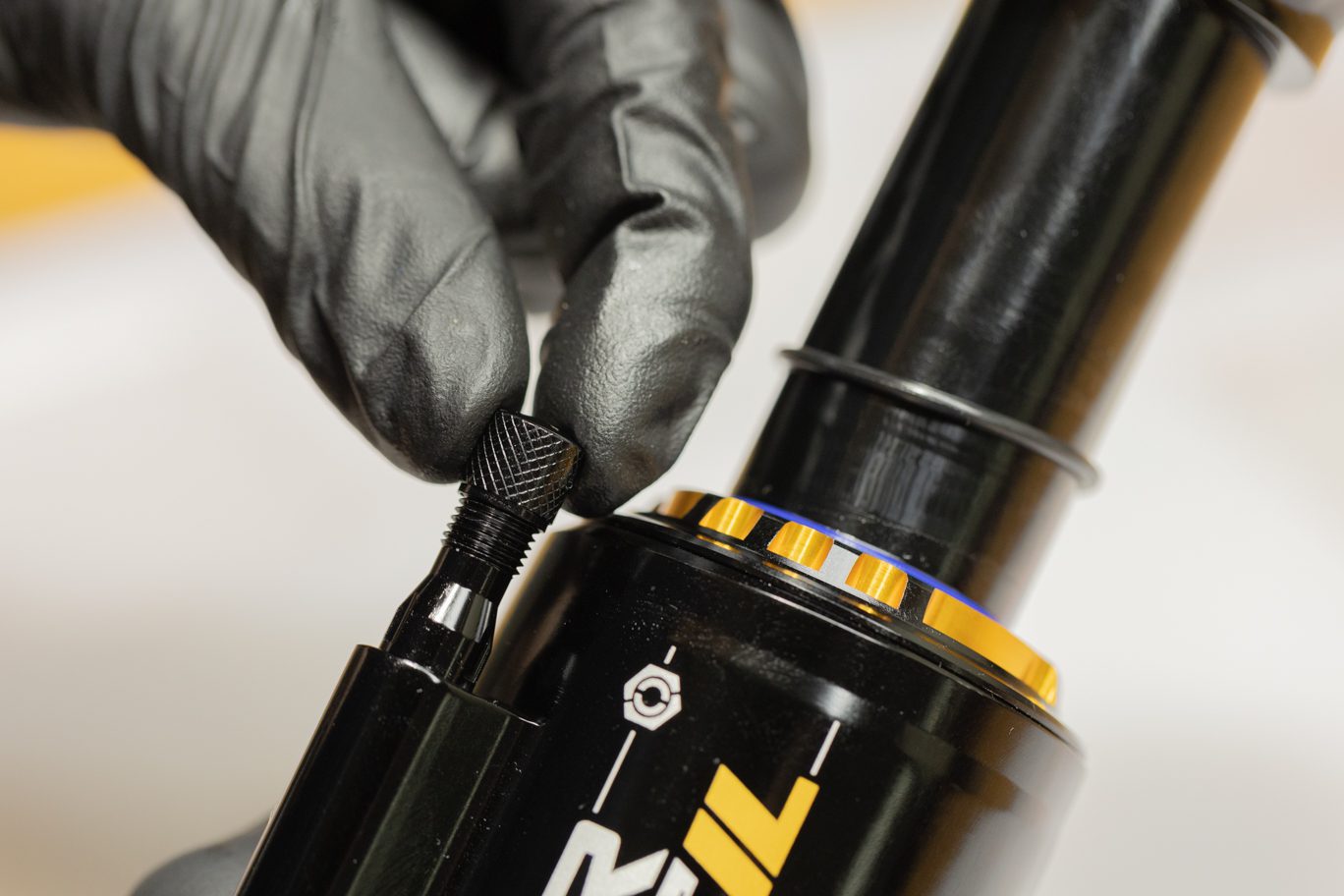
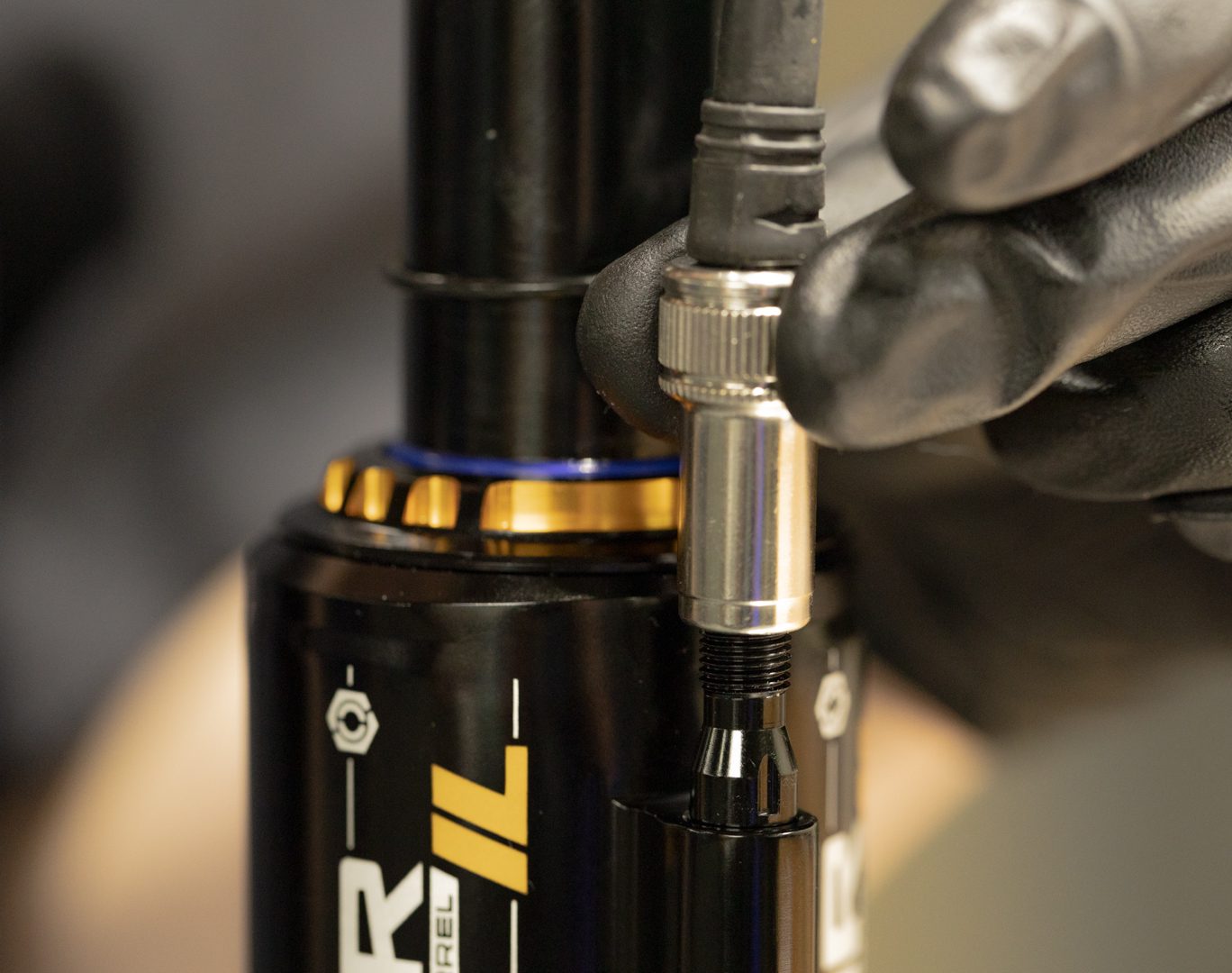
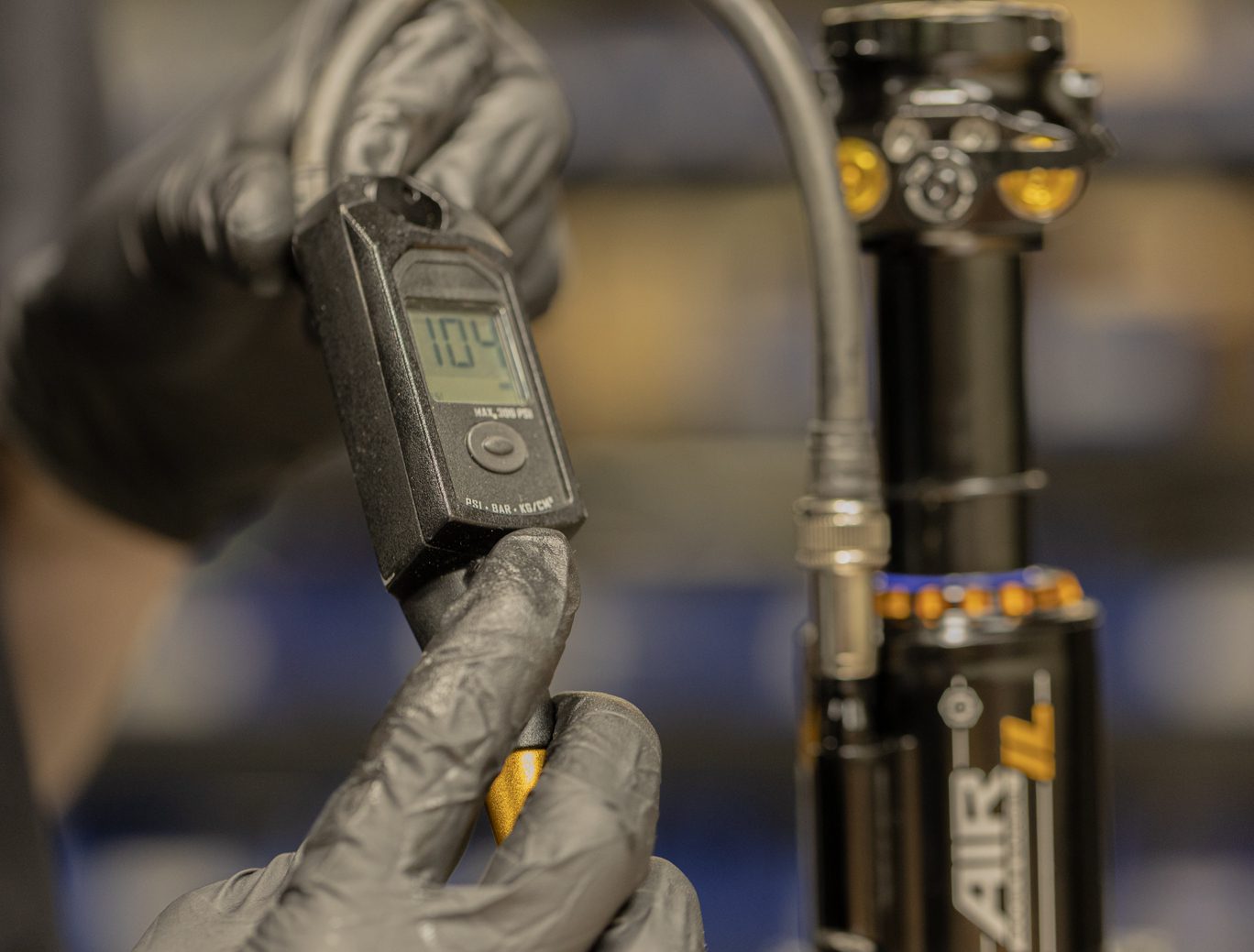
Clean shock. Record tune if desired. Remove hardware. Remove bushings if replacing. Remove valve cap. Bleed air from shock using shock pump. Be sure to depressurize shock slowly to avoid trapping air in the negative chamber.

Hardware & Bushing Removed

Valve Cap Removed

Pump Attach

Air Bleed
Air Spring Disassembly
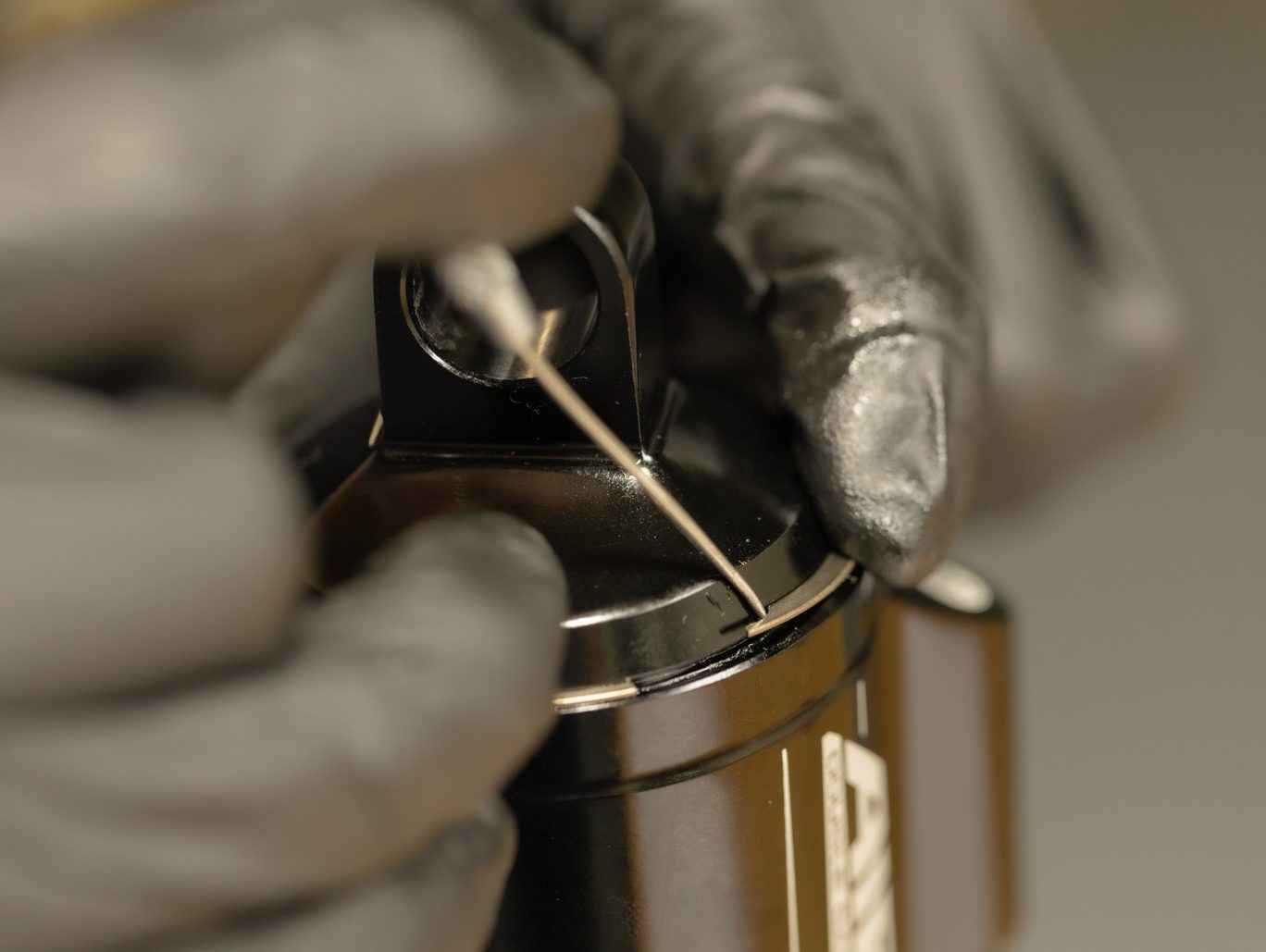
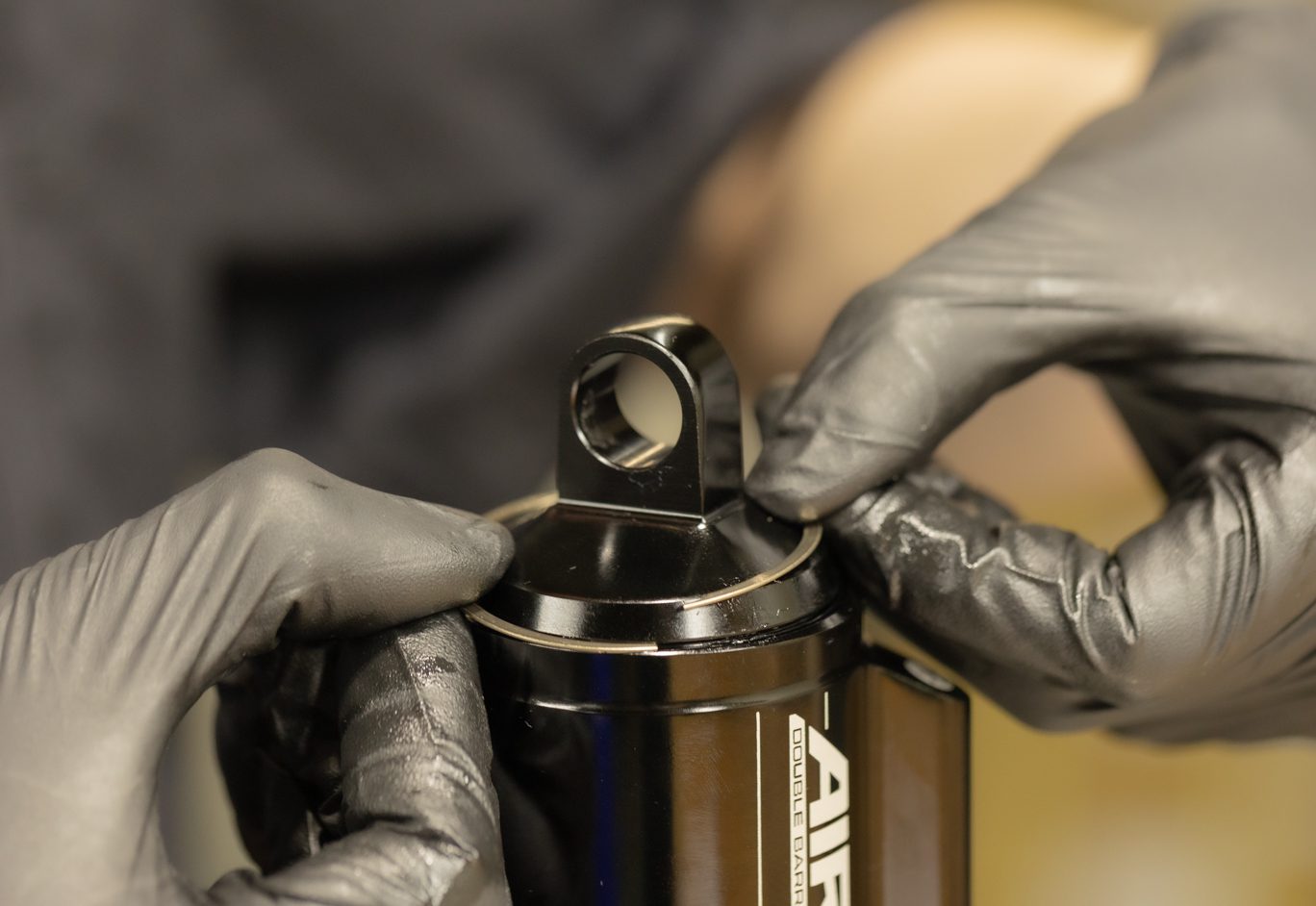
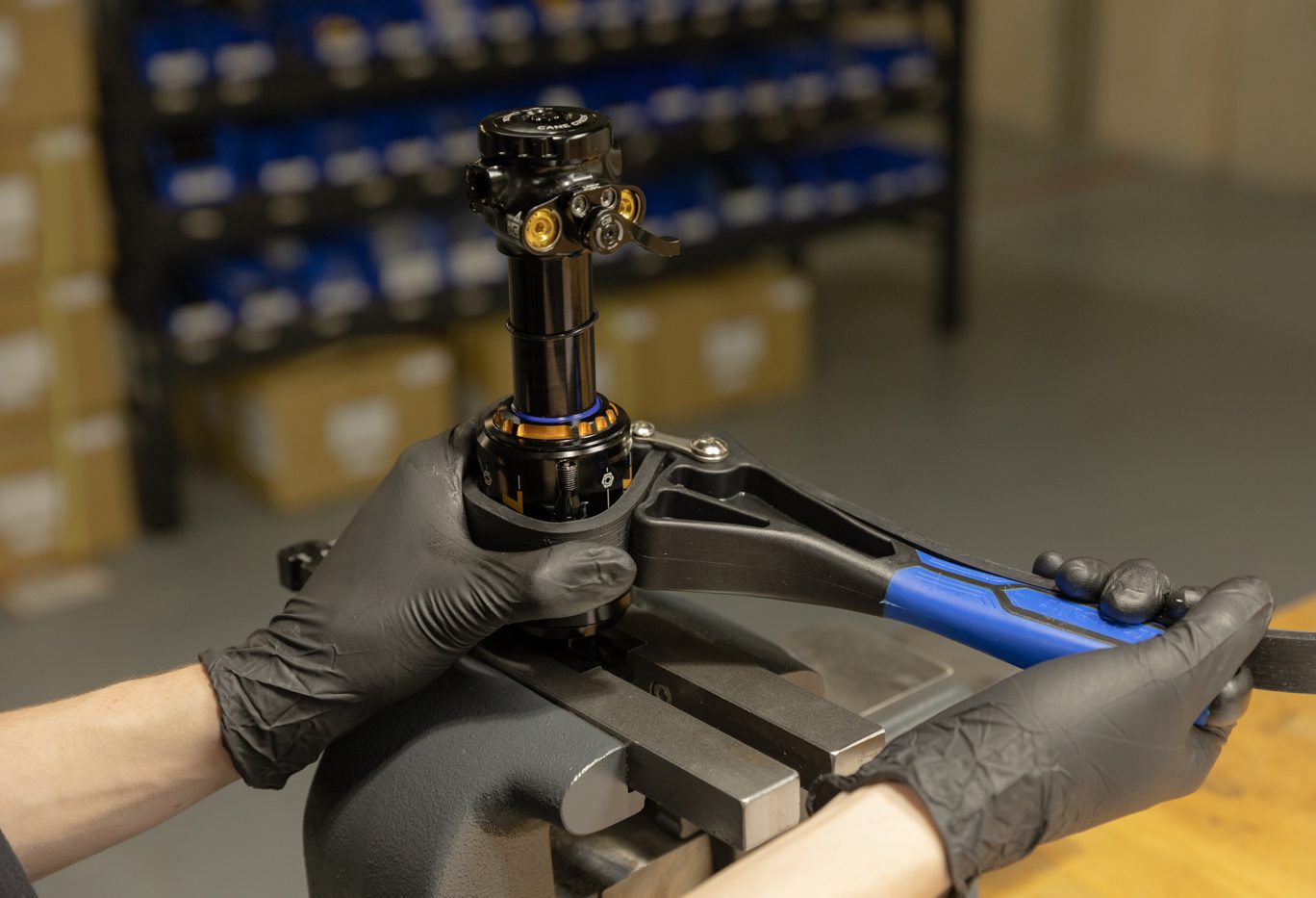
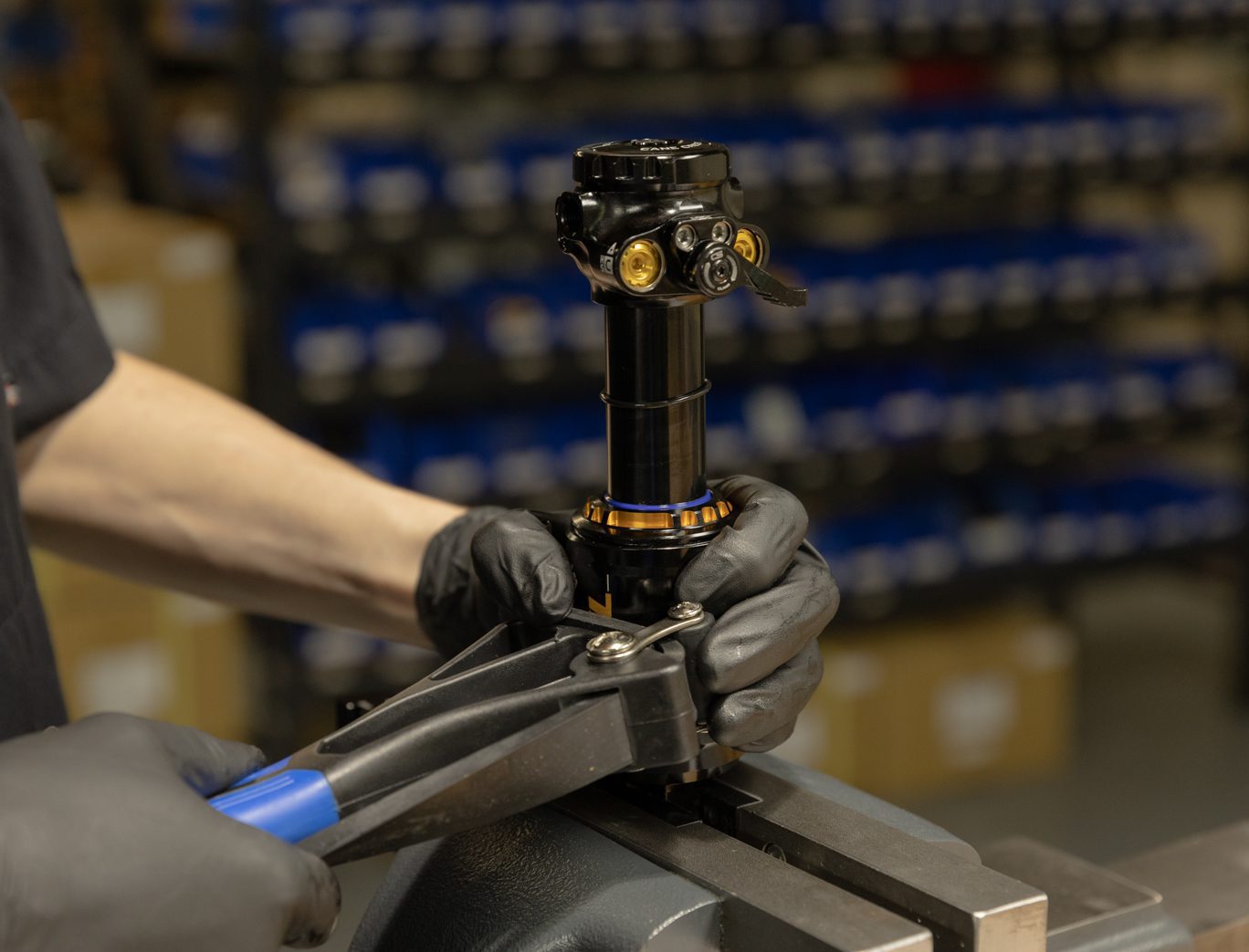
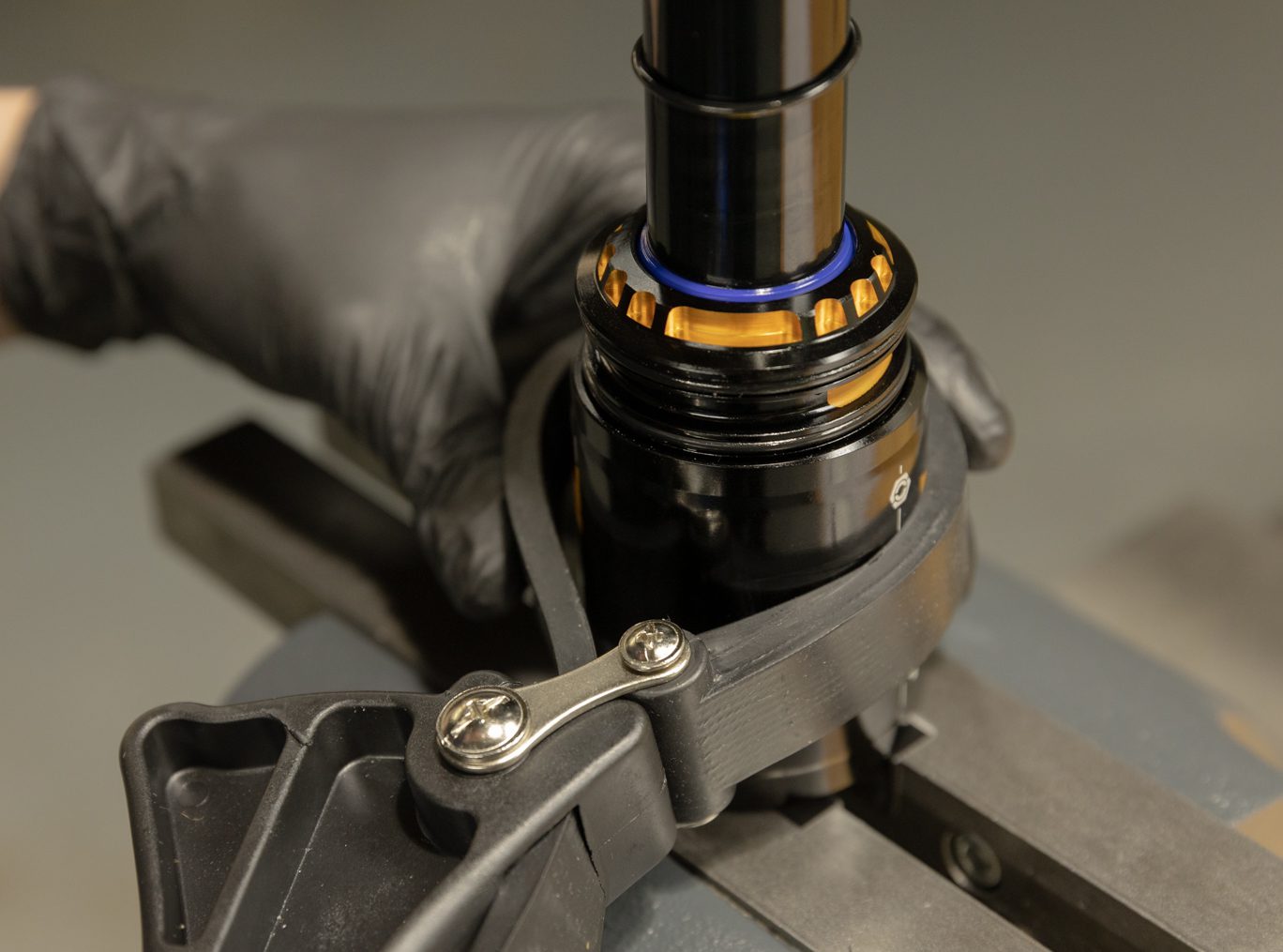
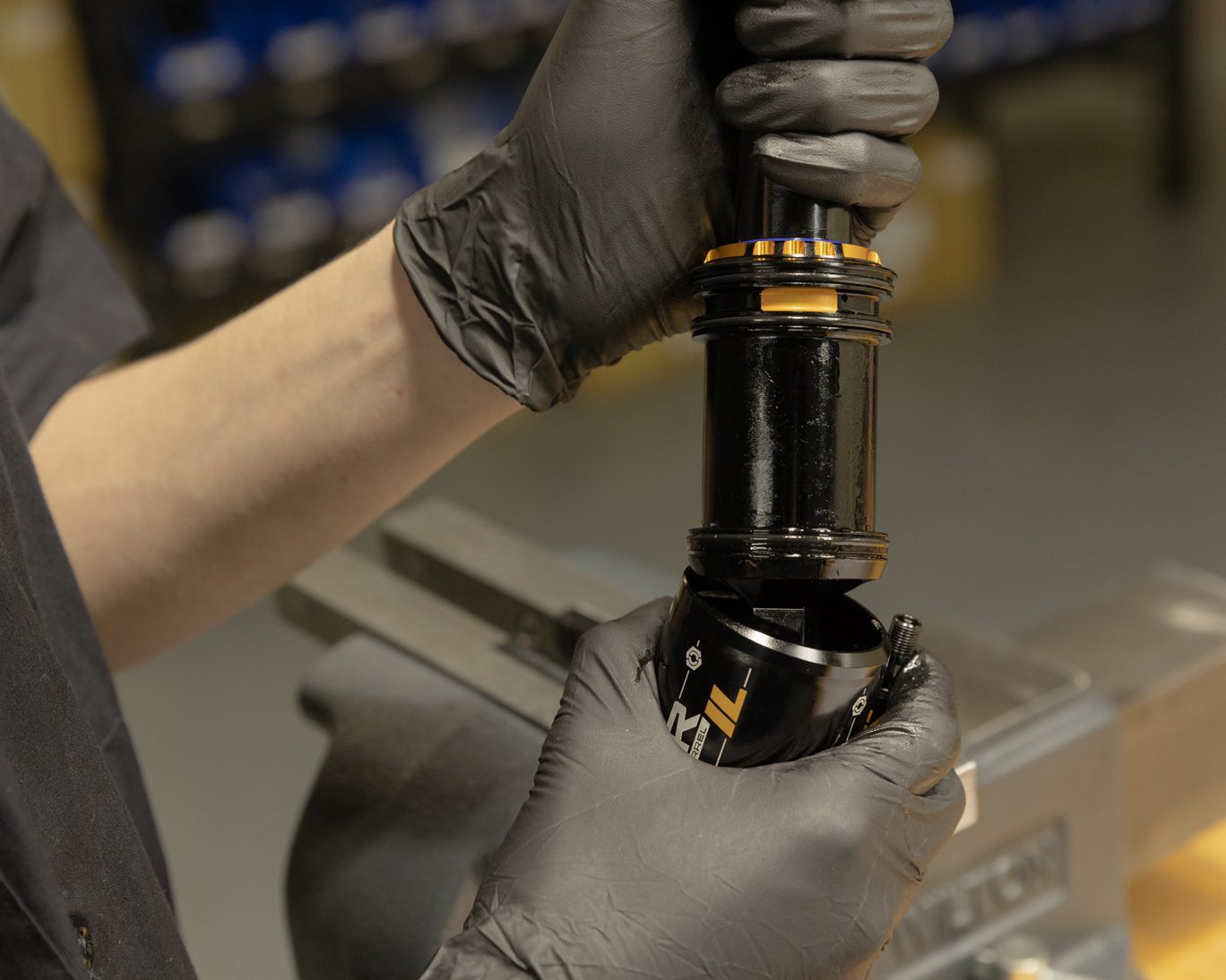
Step 1 – Outer Air Can Removal
Clamp shock in soft jaw vise. Remove air can circlip using a pick. Flip the shock and clamp end eye. Using strap wrench, twist and apply downward force to free outer air can. Work outer air can past end eye to remove completely. Note any air volume reduction.

Freeing Air Can Circlip

Air Can Circlip Removal

Strap Wrench on Air Can

Twisting Air Can

Downward Force on Air Can

Air Can Removal
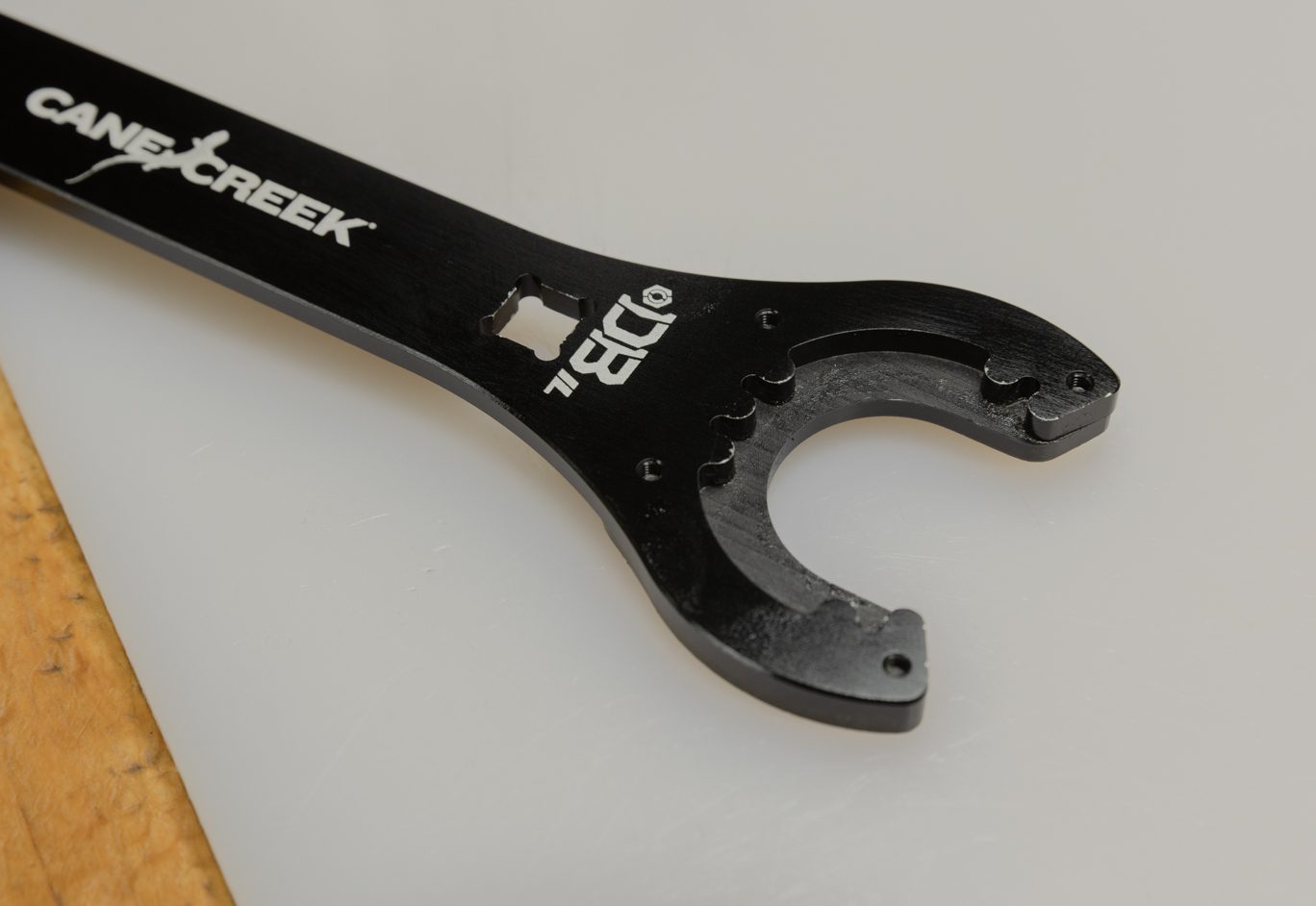

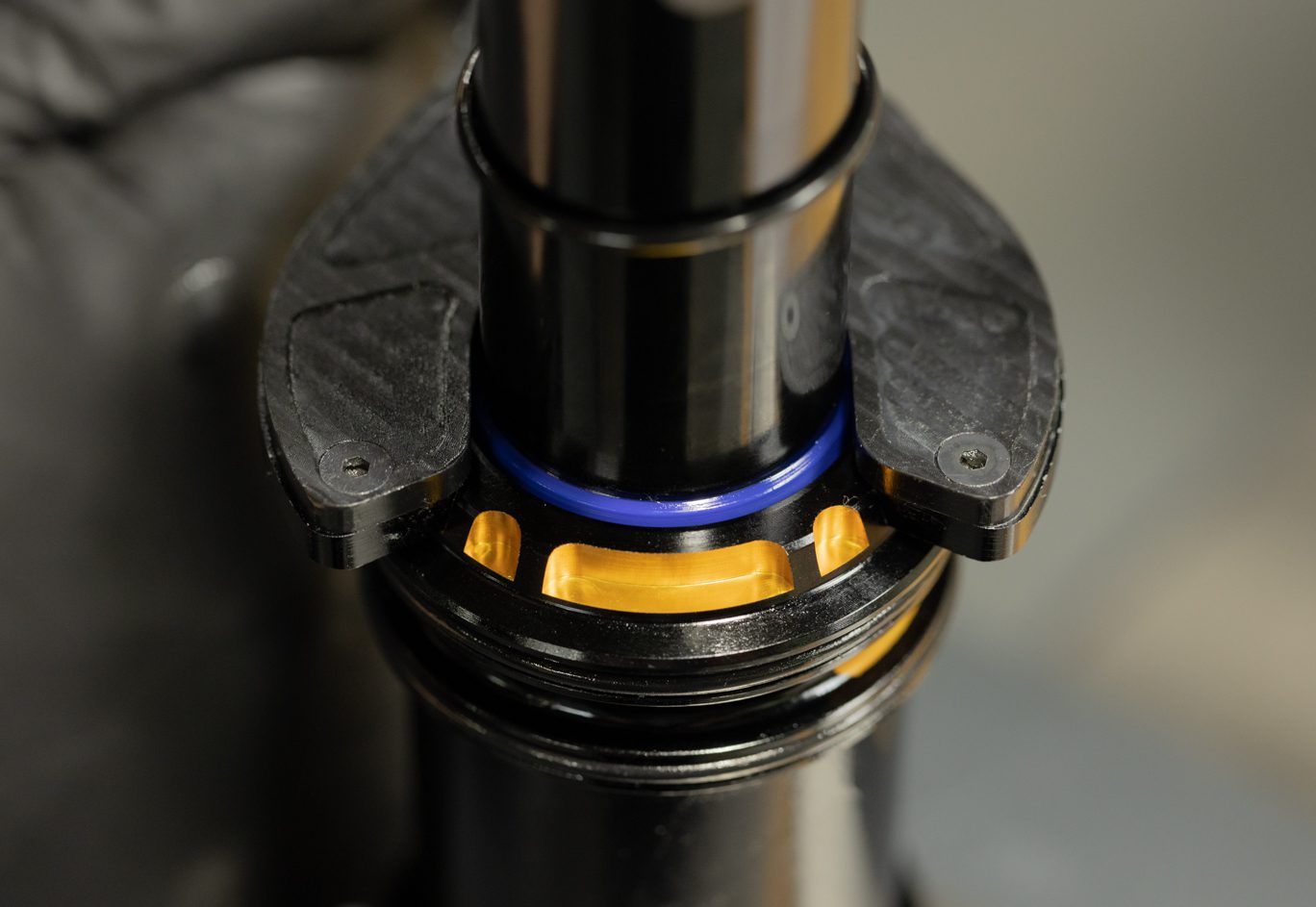
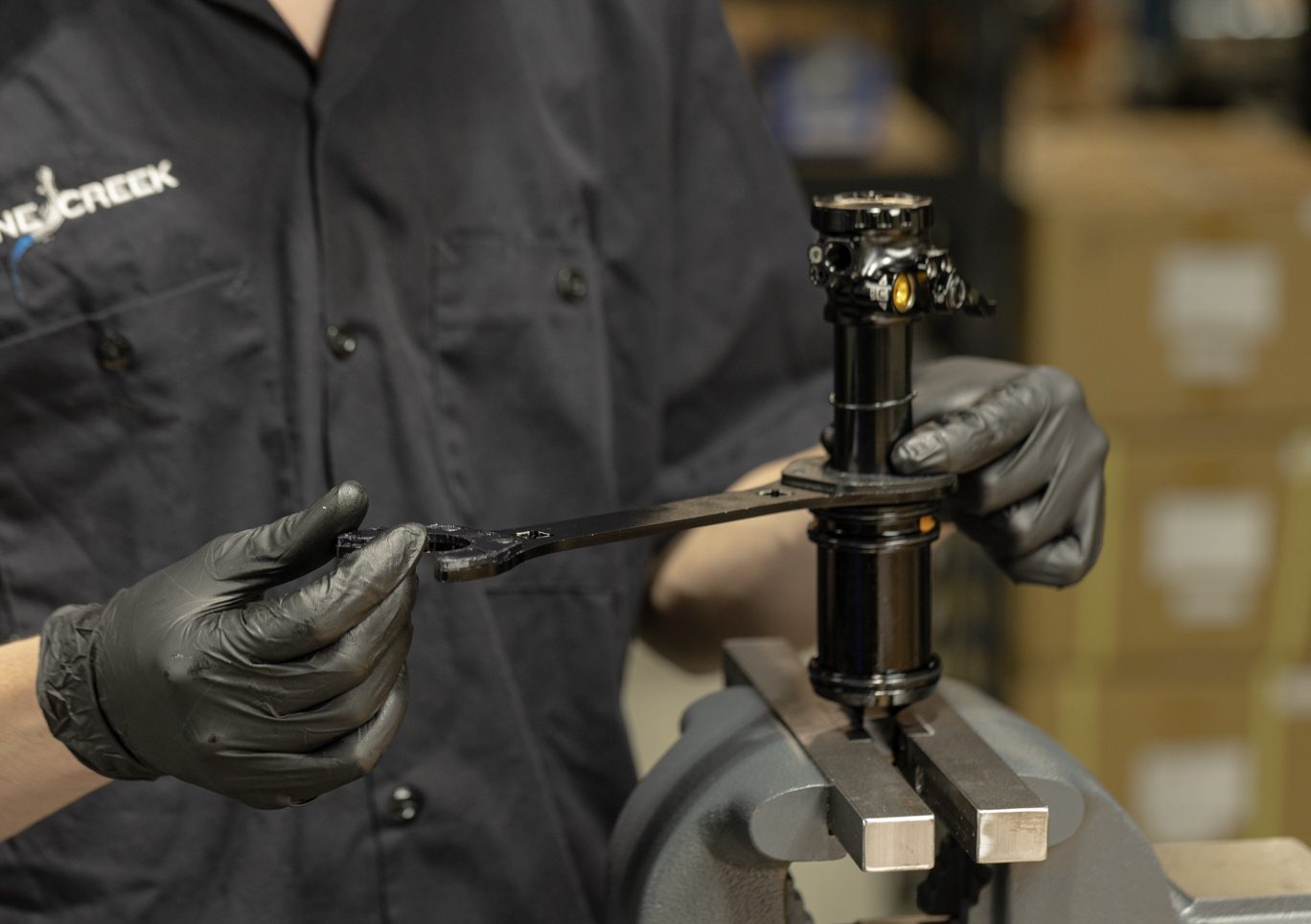
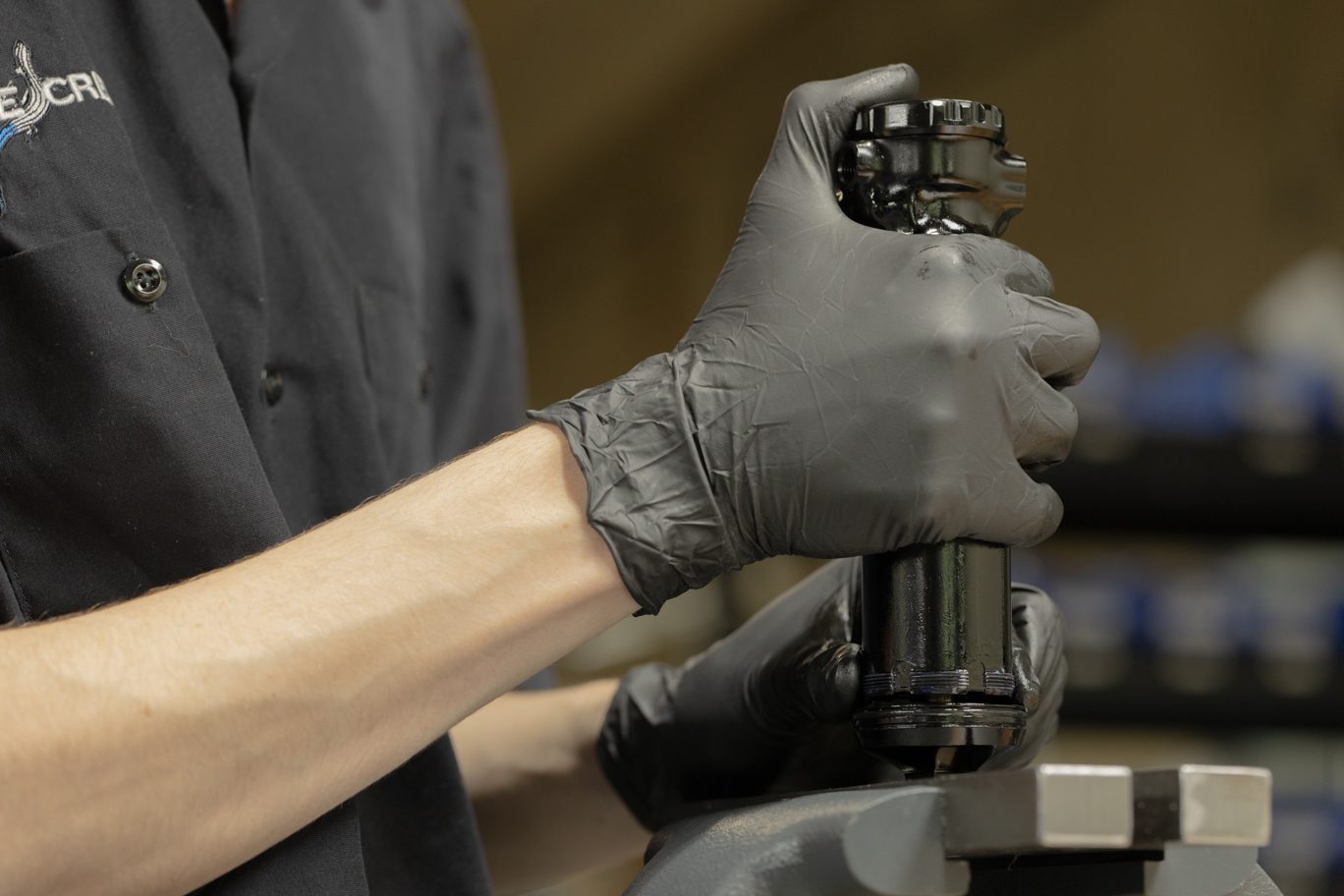
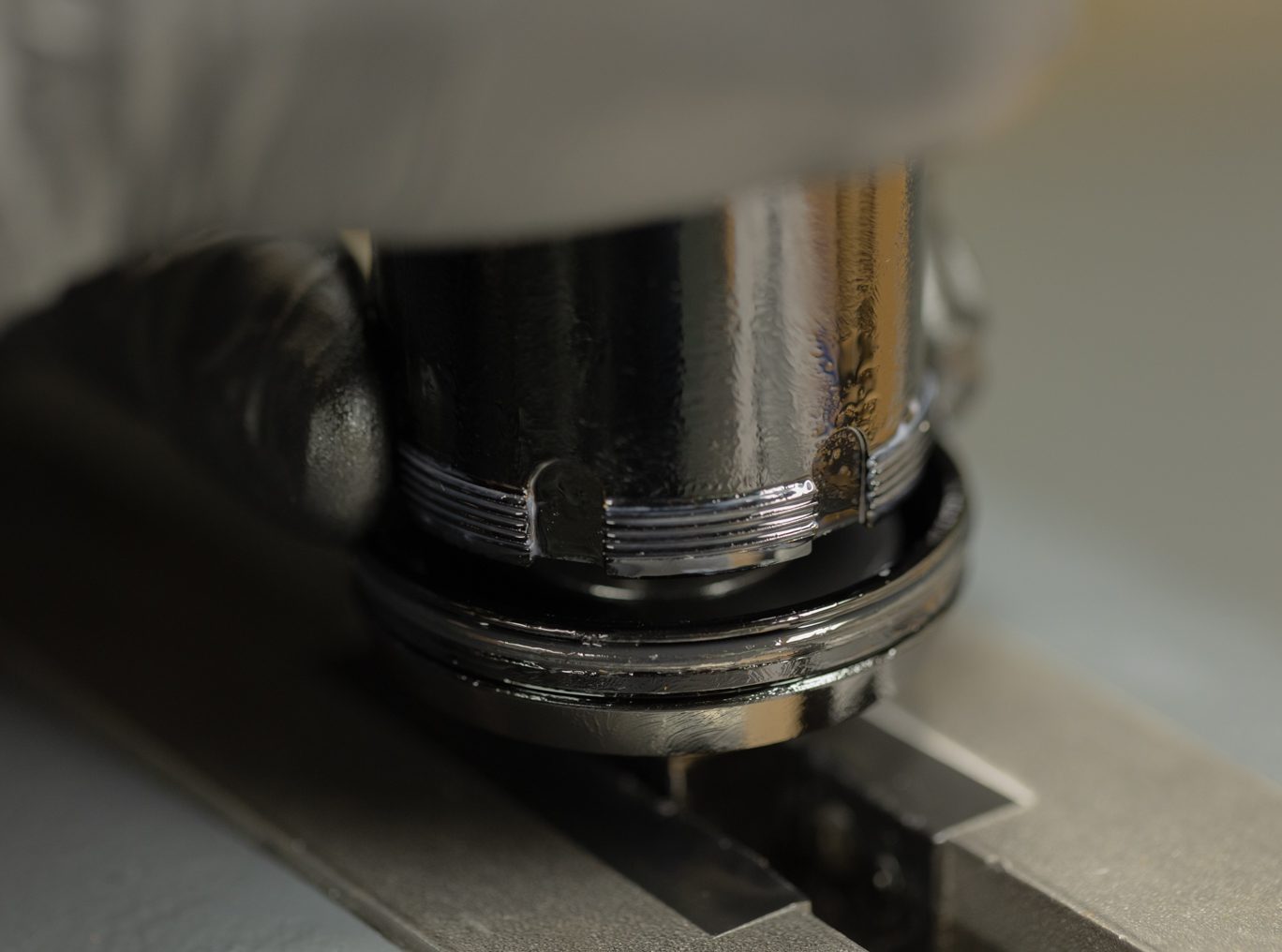
Step 2 - Freeing Inner Air Can
Reclamp shock. Align teeth on Air Seal Head Tool (BAD1273) with grooves on air seal head. Unthread air seal head/inner air can from end eye. Splash oil may be present. Slide inner air cap up shock body to expose shaft.

Air Seal Head Wrench IL End

Air Seal Head Tool

Air Seal Head Tool on Air Seal Head

Air Seal Head Tool Supported

Inner Air Can Freed

Inner Air Can Freed from End Eye
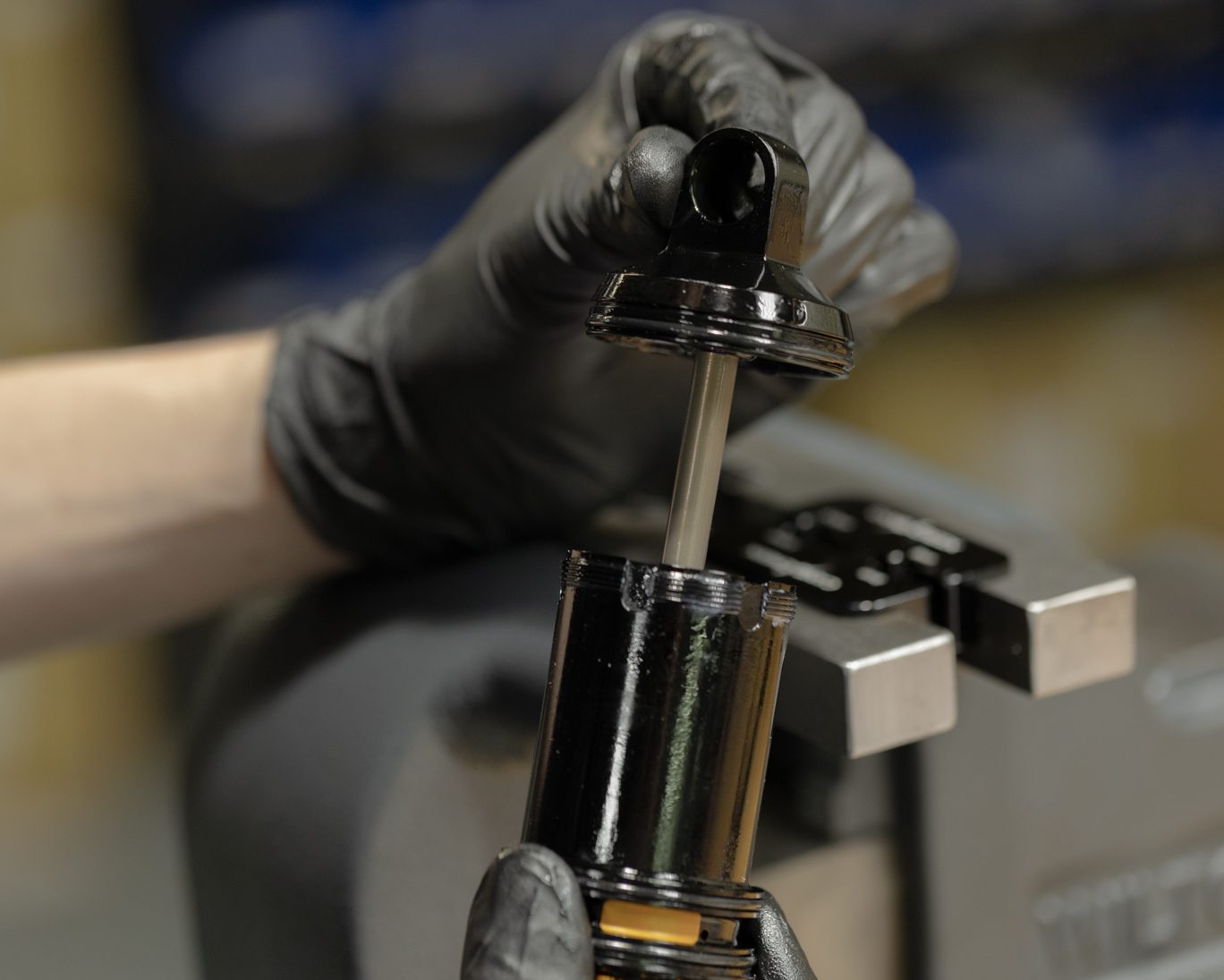
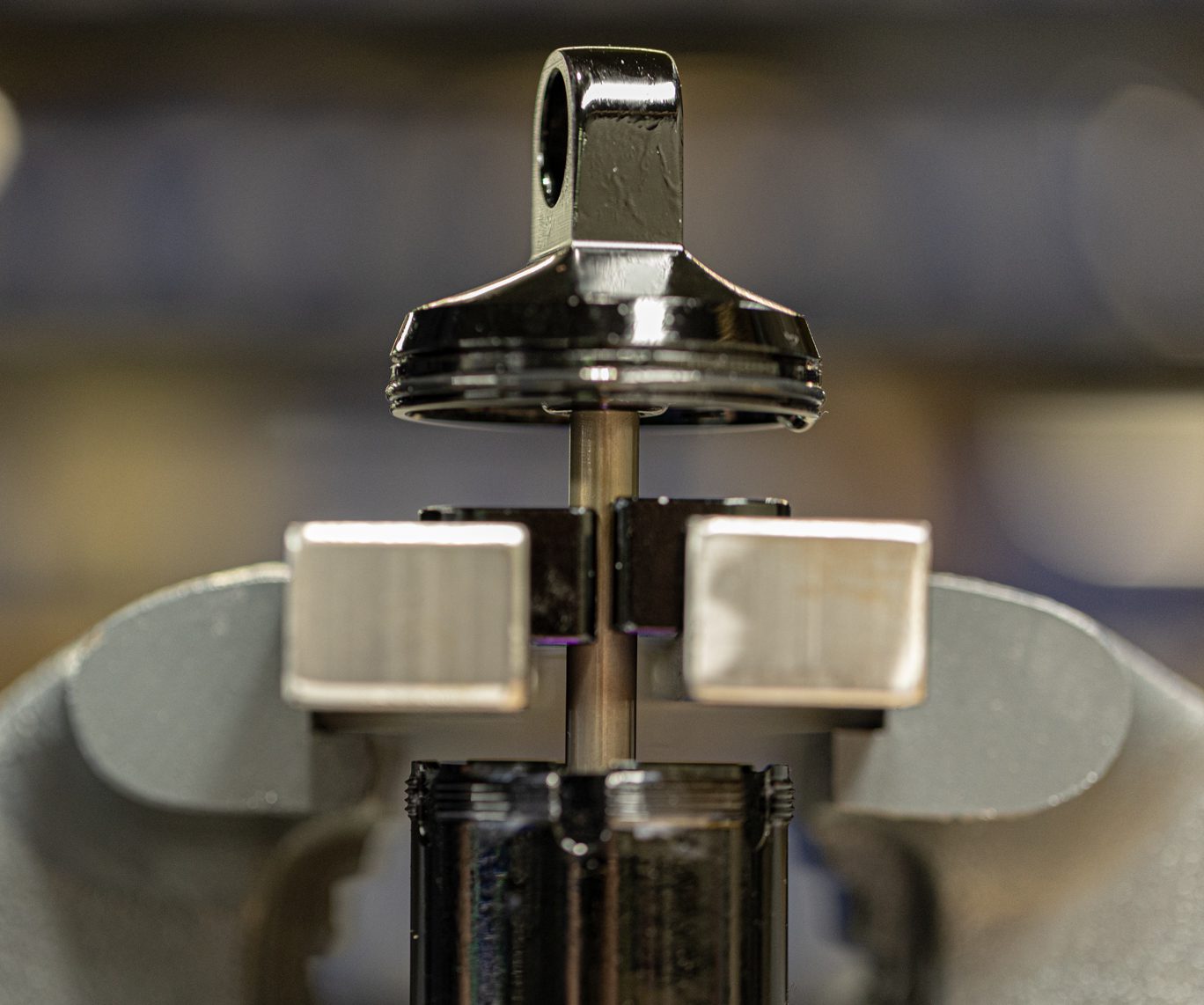
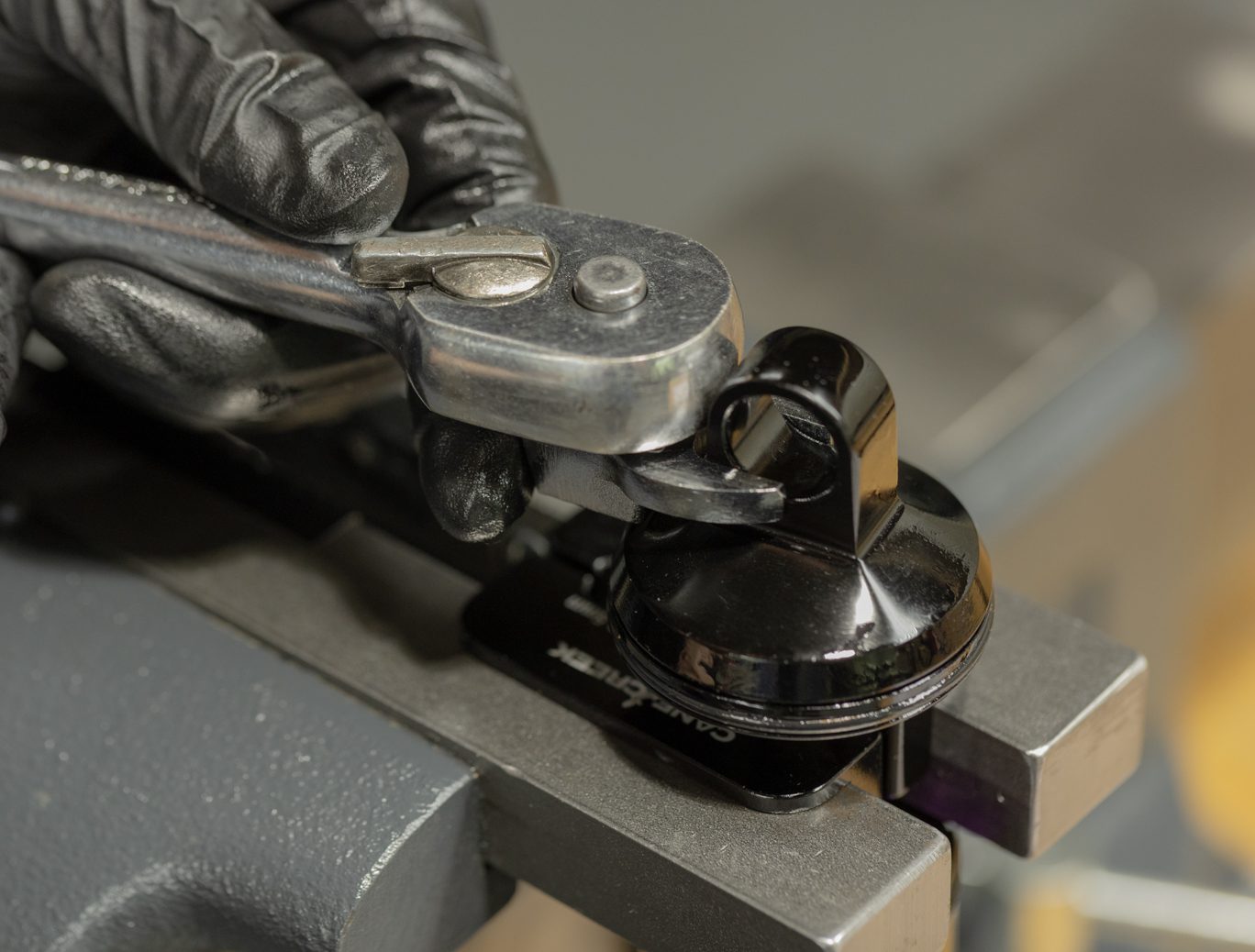
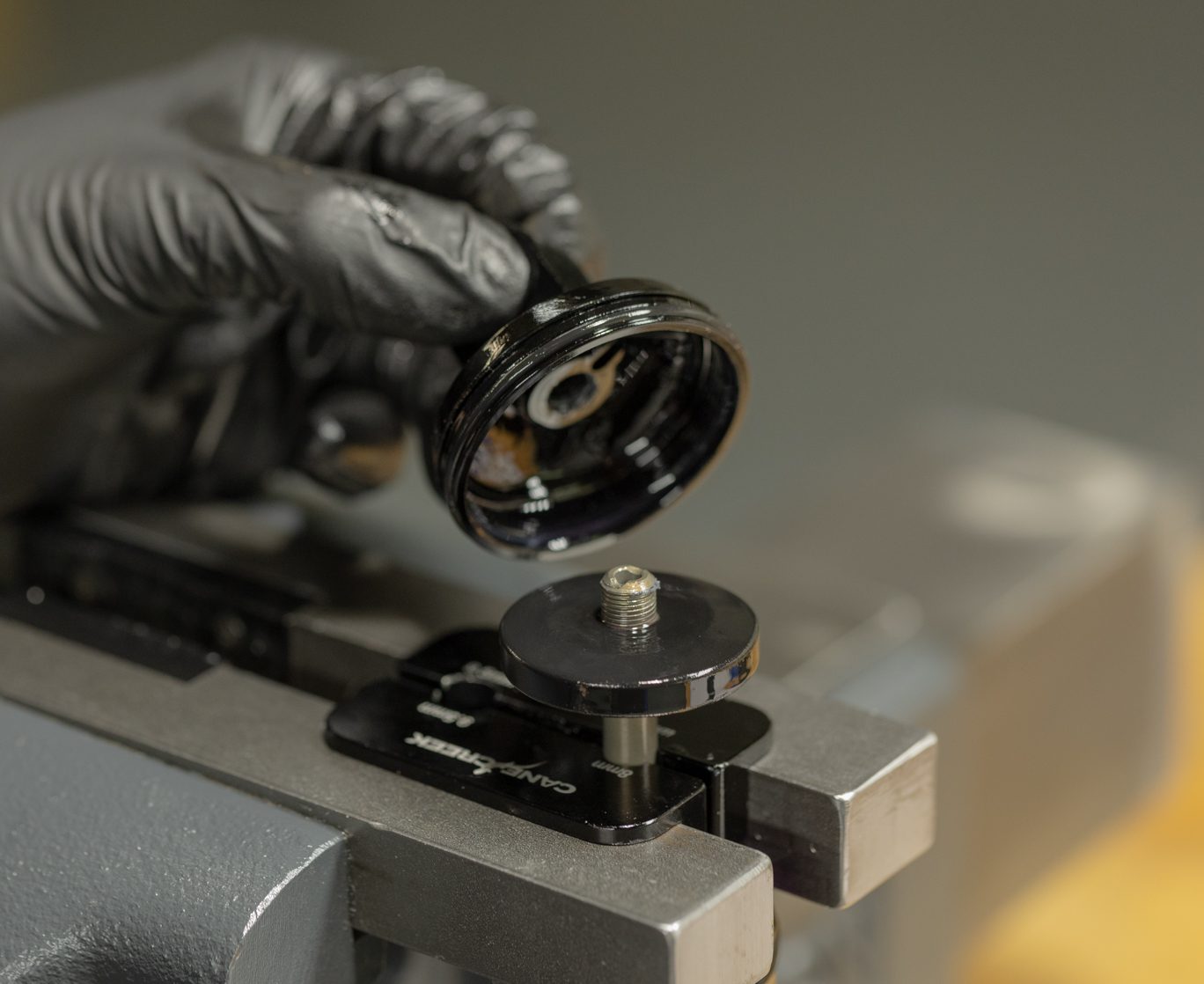
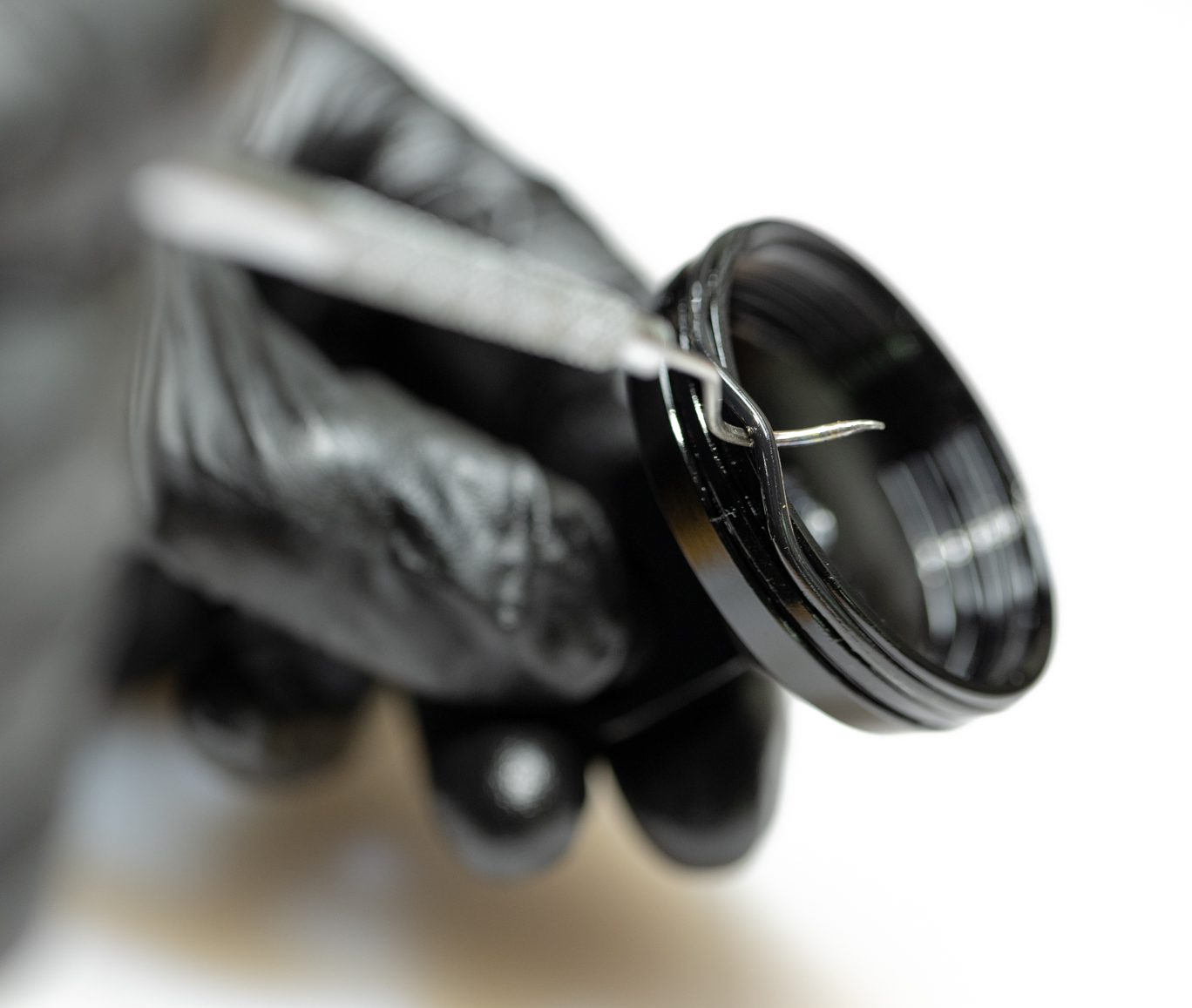
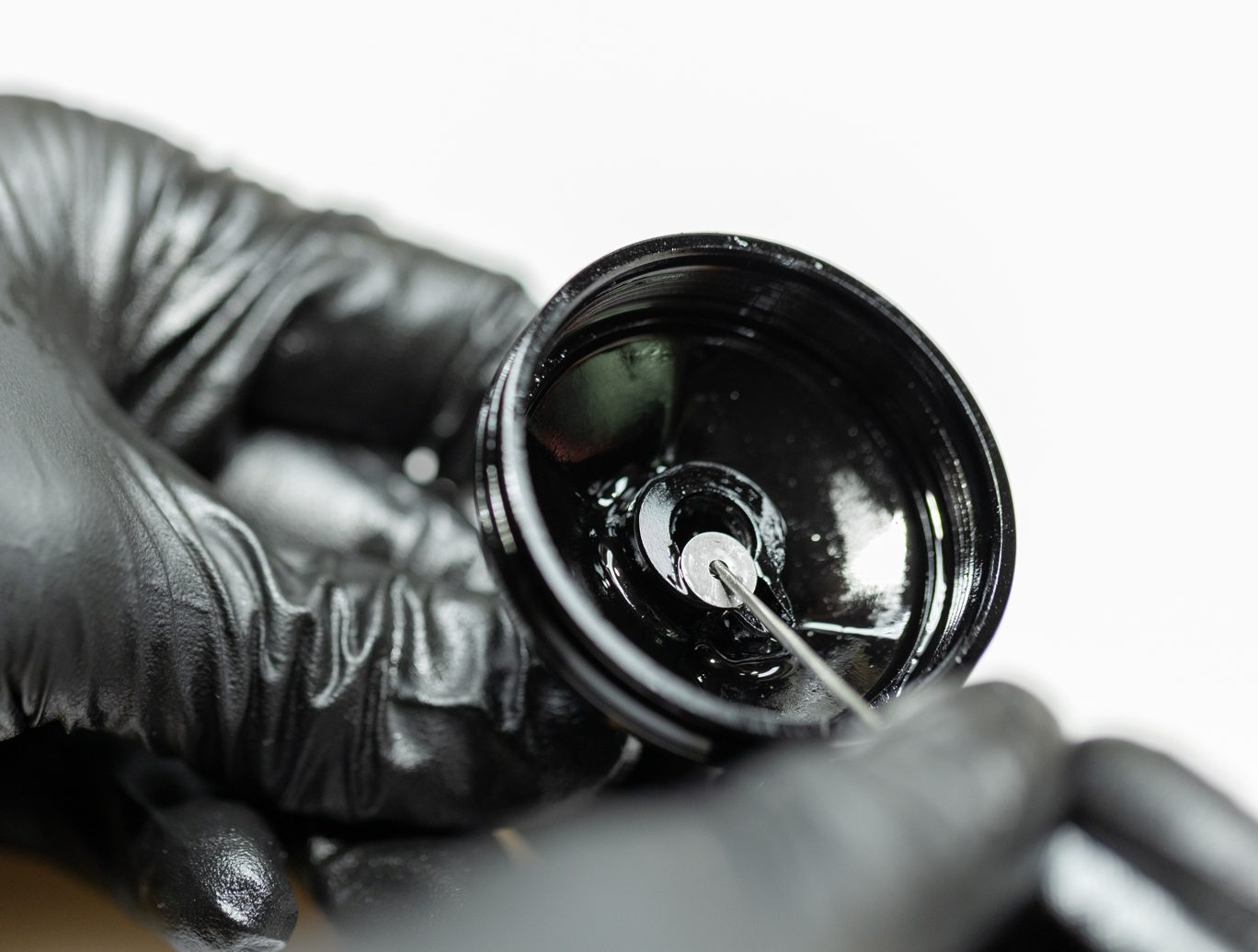
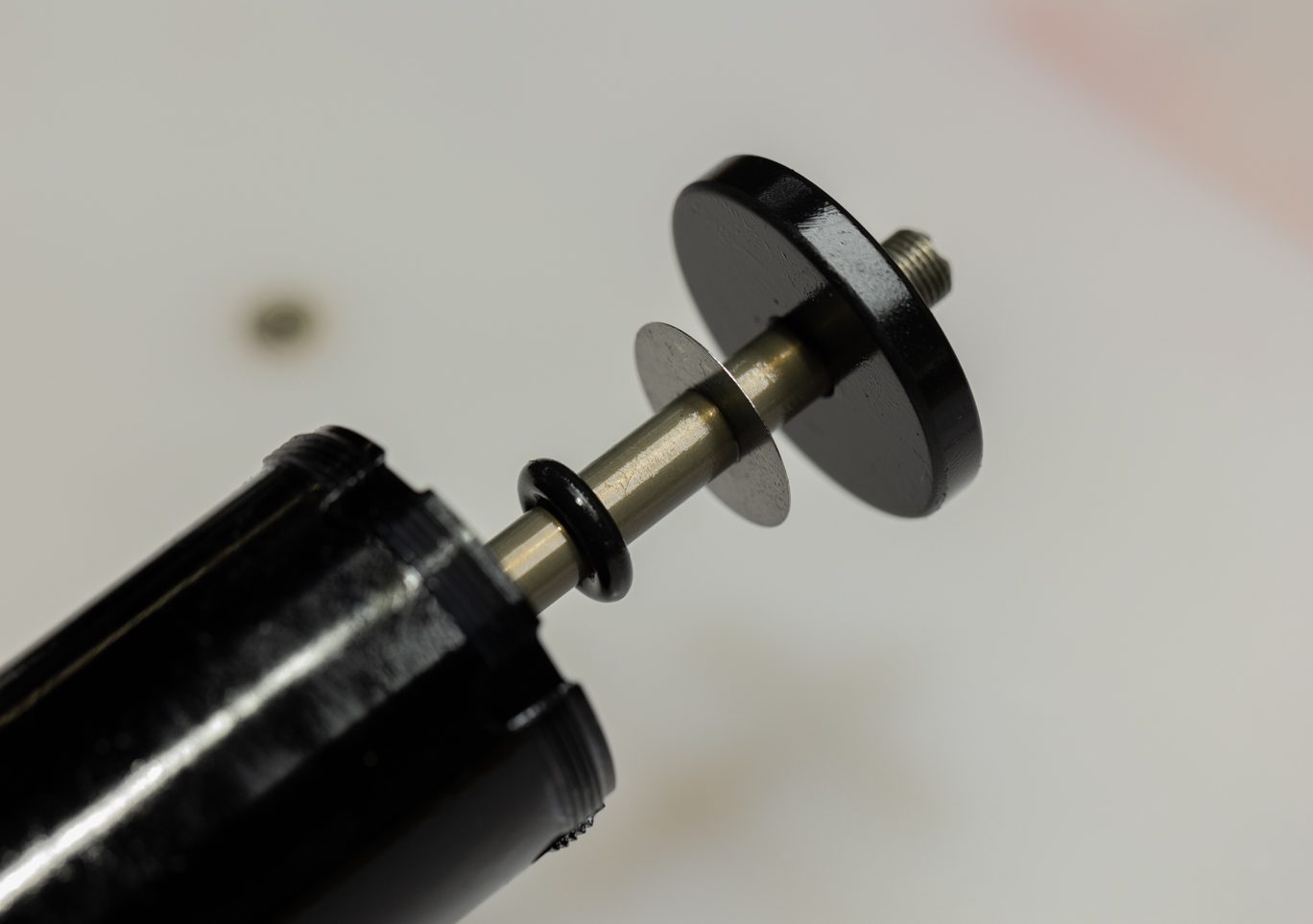
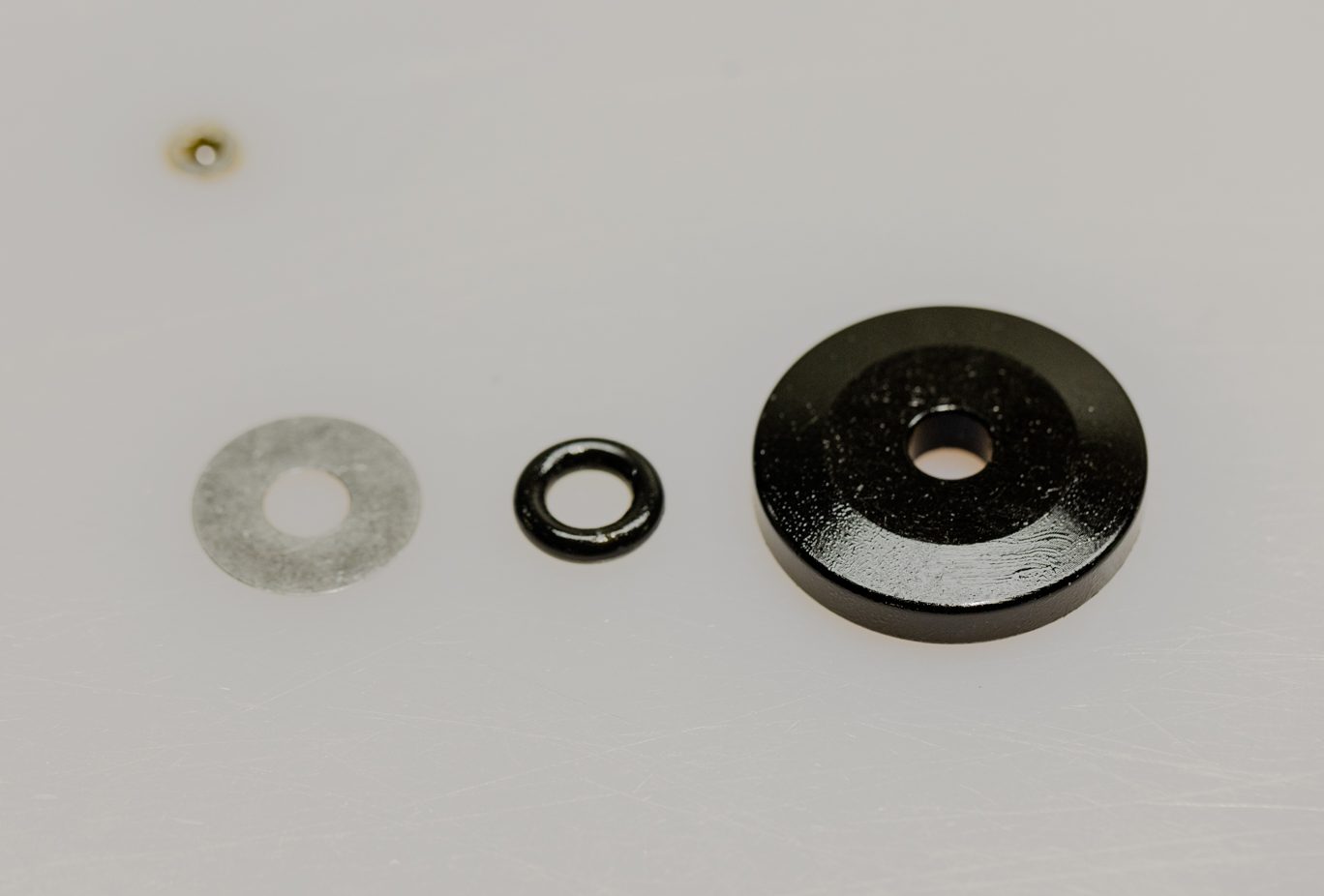
Step 3 - End Eye Removal
Slide inner air can up shock body to expose shaft. Clamp shaft in 8mm shaft clamp with end eye up. Remove end eye using 1/2″ crows foot. Pinch & remove then discard inner can o-ring and stop shim from end eye. Remove any stroke reduction spacer, shim and bottom out bumper.
Always use extreme caution when using a pick in this step or others to avoid scratching metal parts. Failure to do this can create scratches in the o-ring glands which cause leak paths for oil or gas. When possible, pinch and remove o-rings rather than using a pick.

Exposing Shaft

Clamped for End Eye Removal

Freeing End Eye

End Eye Removed

End Eye O-Ring Removal

Stop Shim Removal

Stroke Reduction, Shim & Bottom Out Bumper Removal

Stroke Reduction, Shim & Bottom Out Bumper Removed
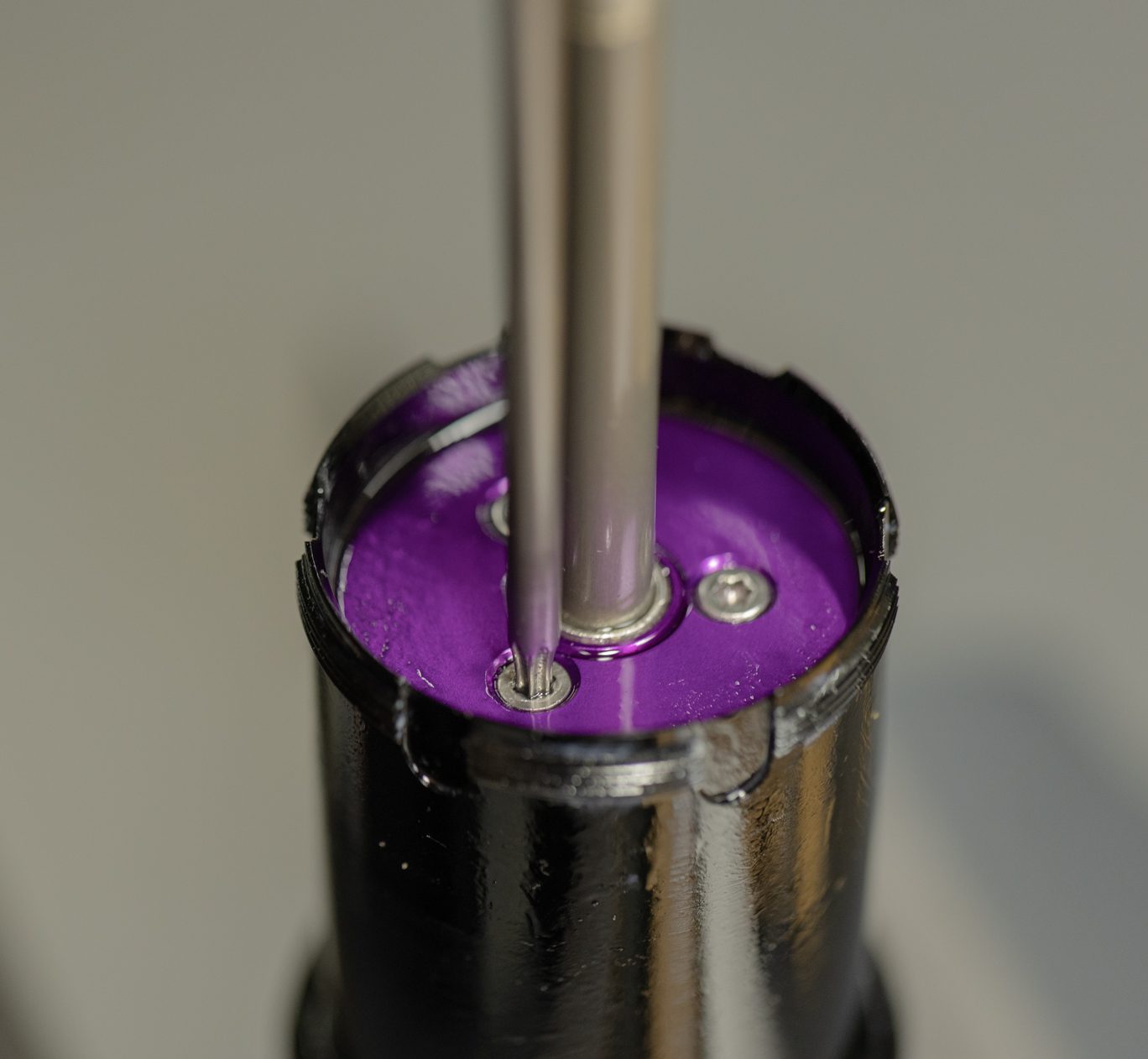
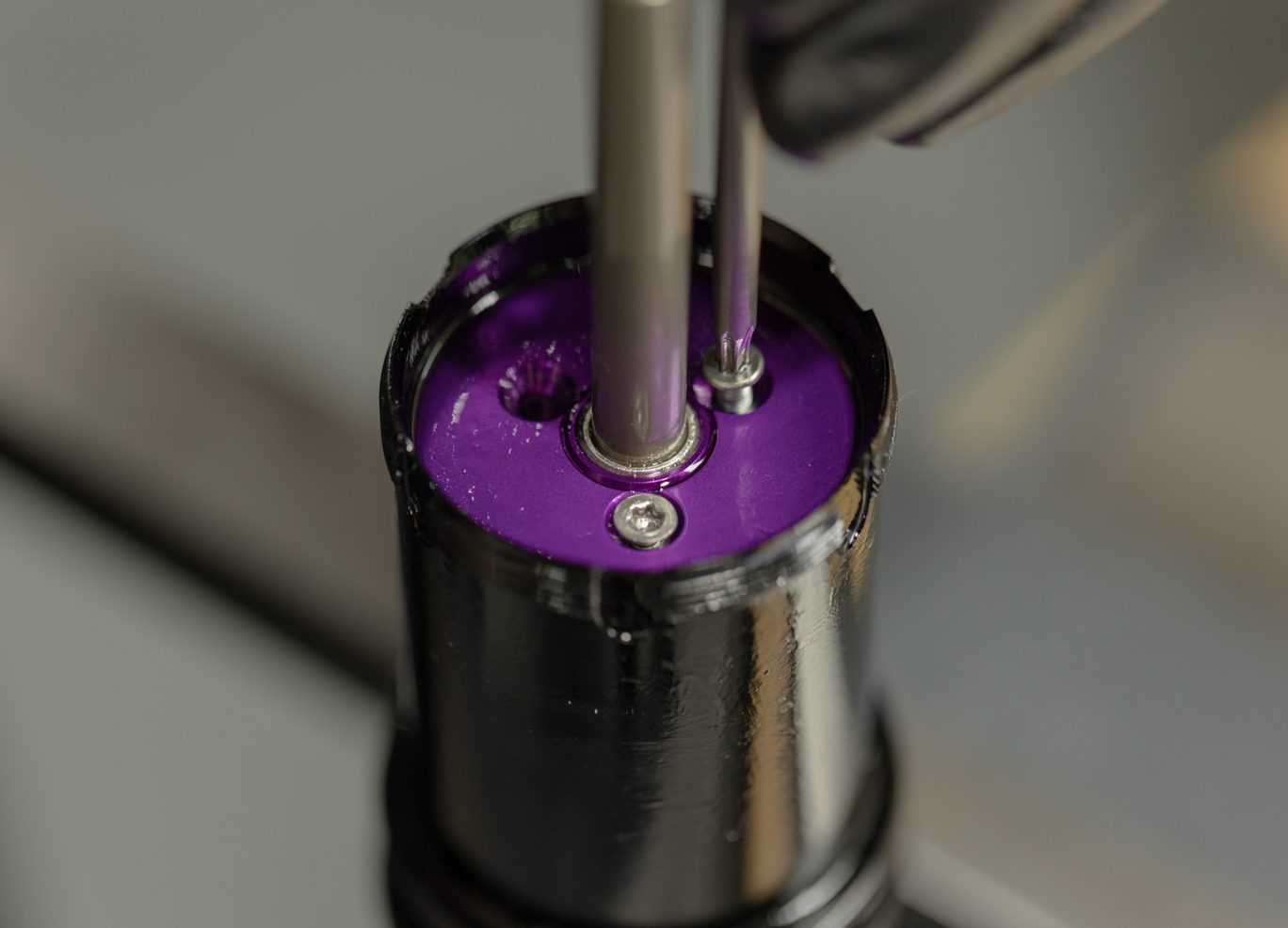
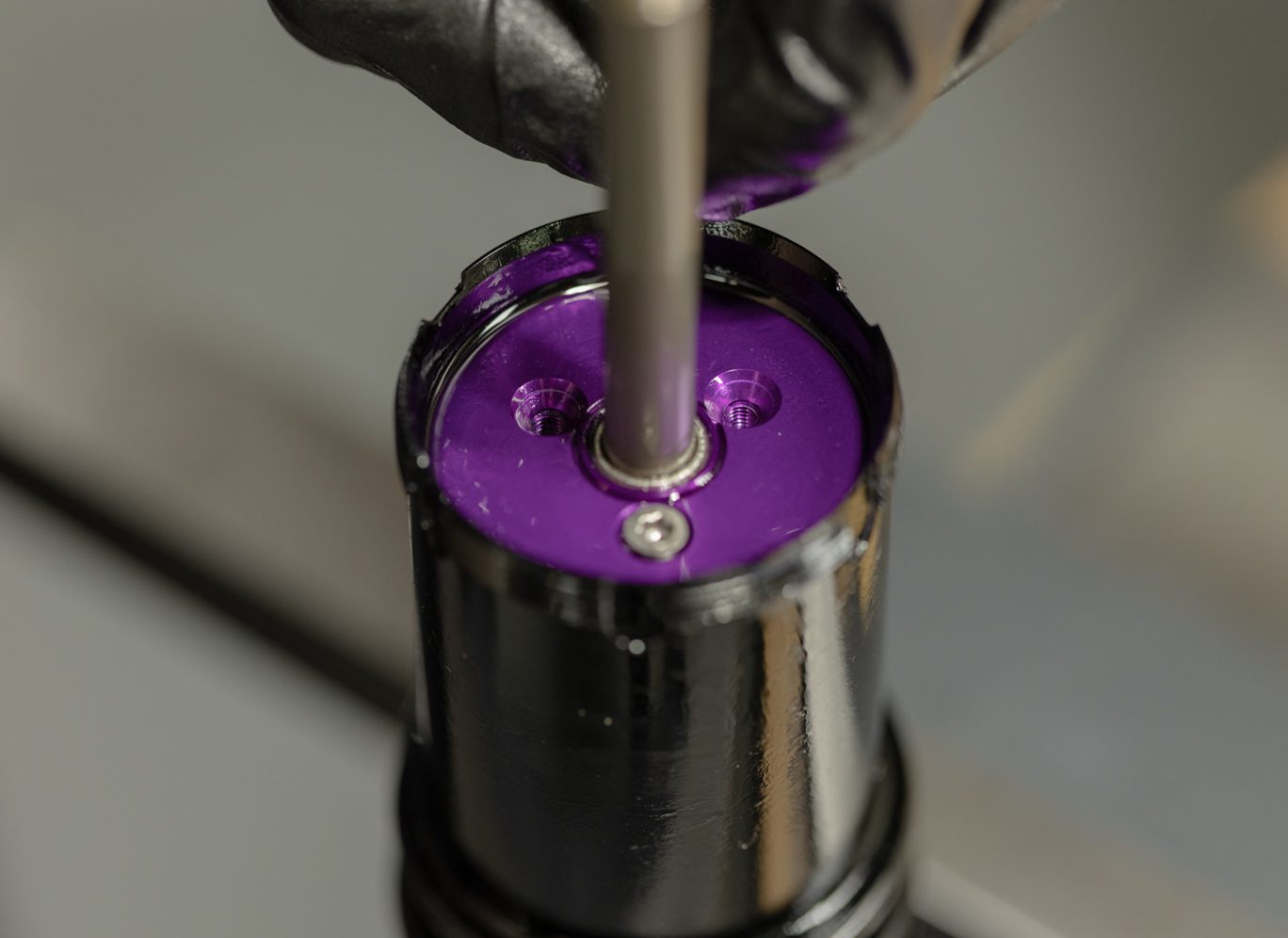
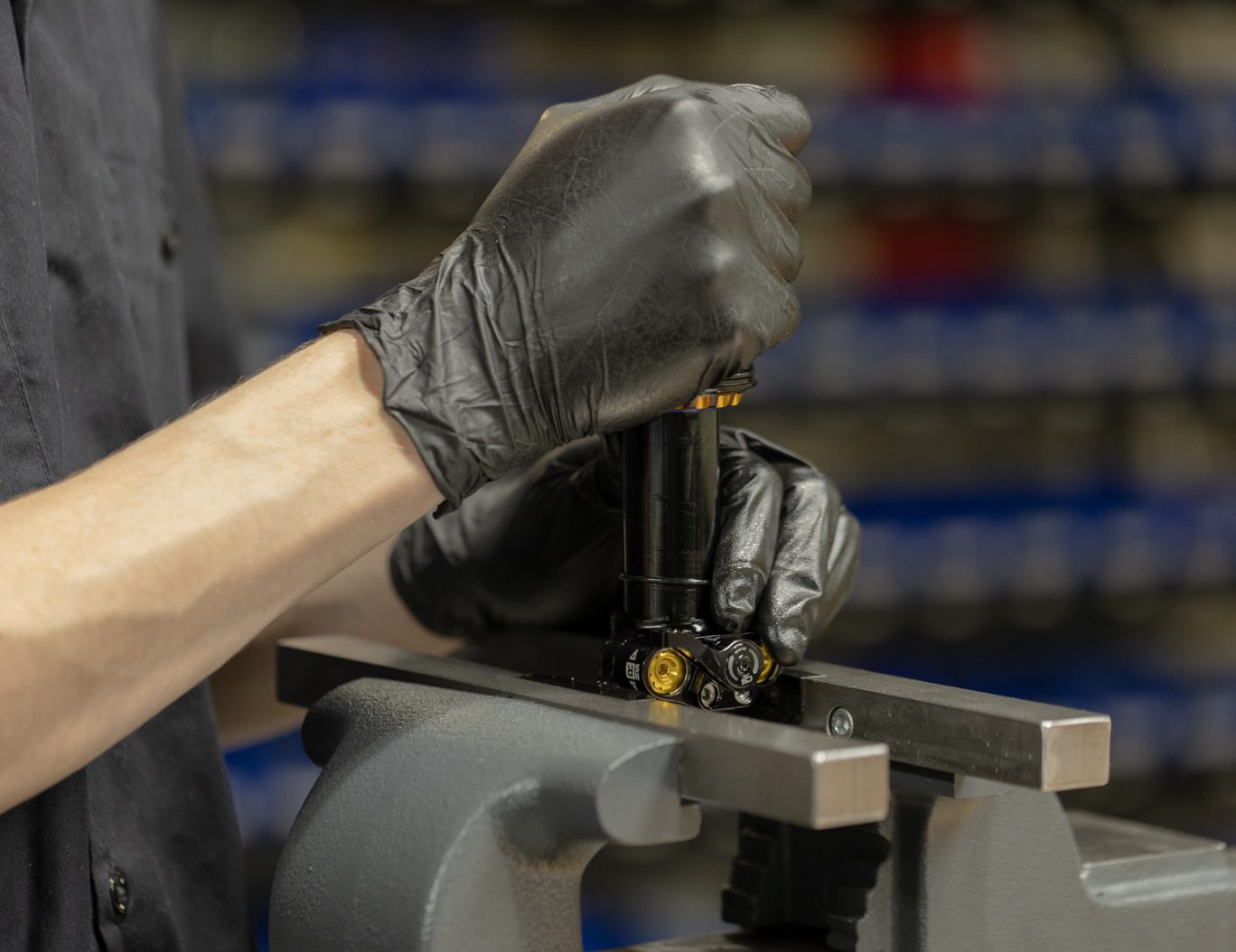

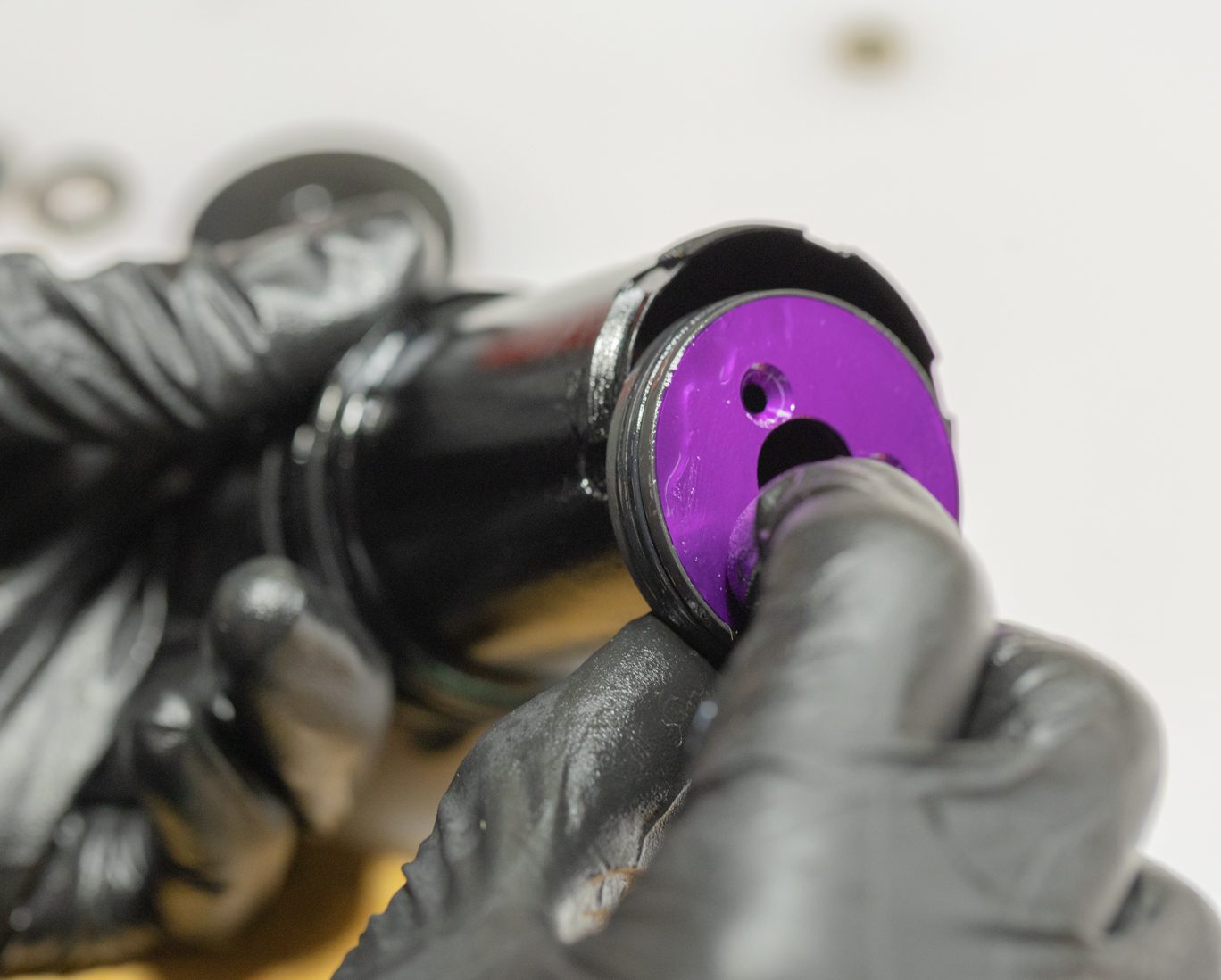
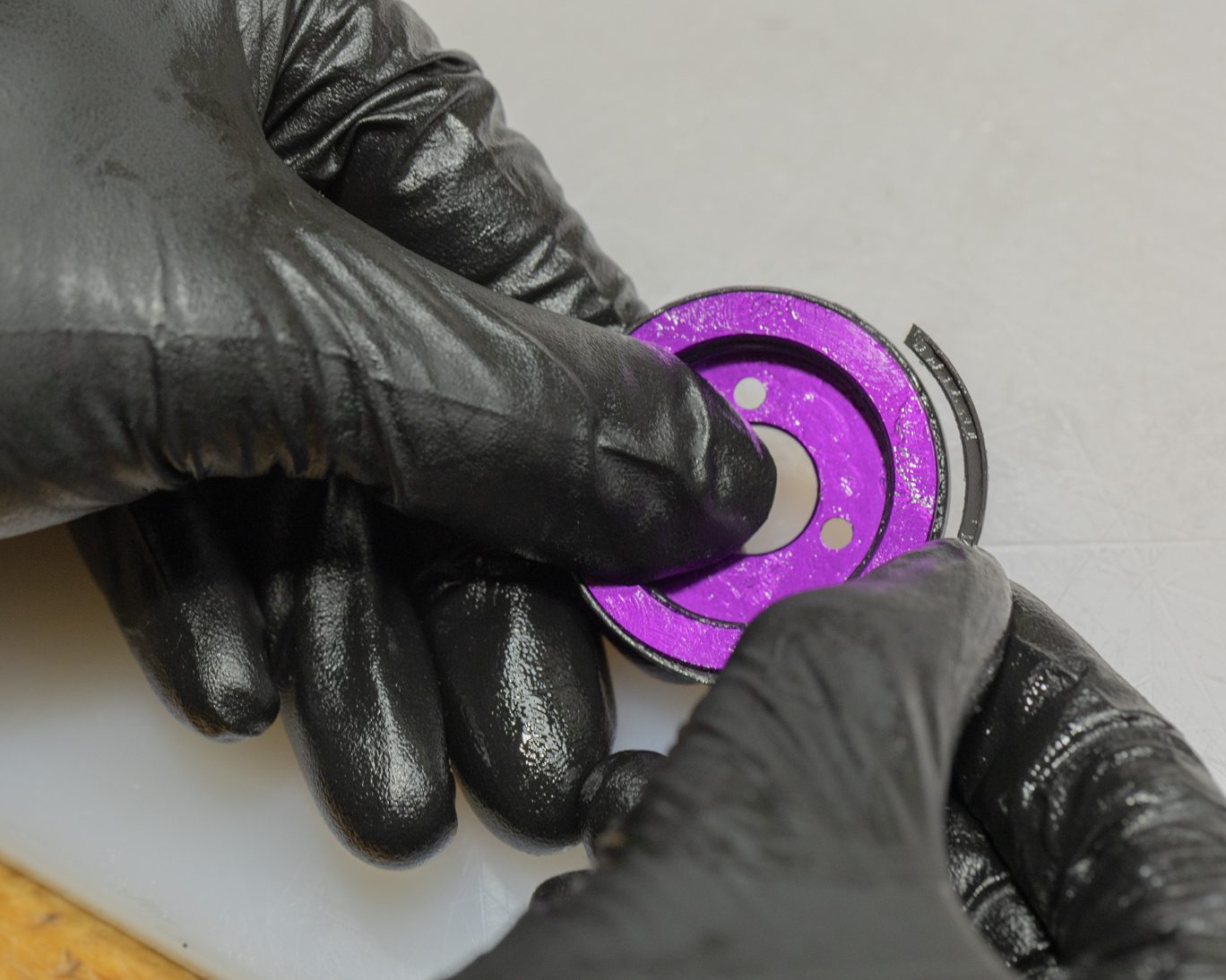
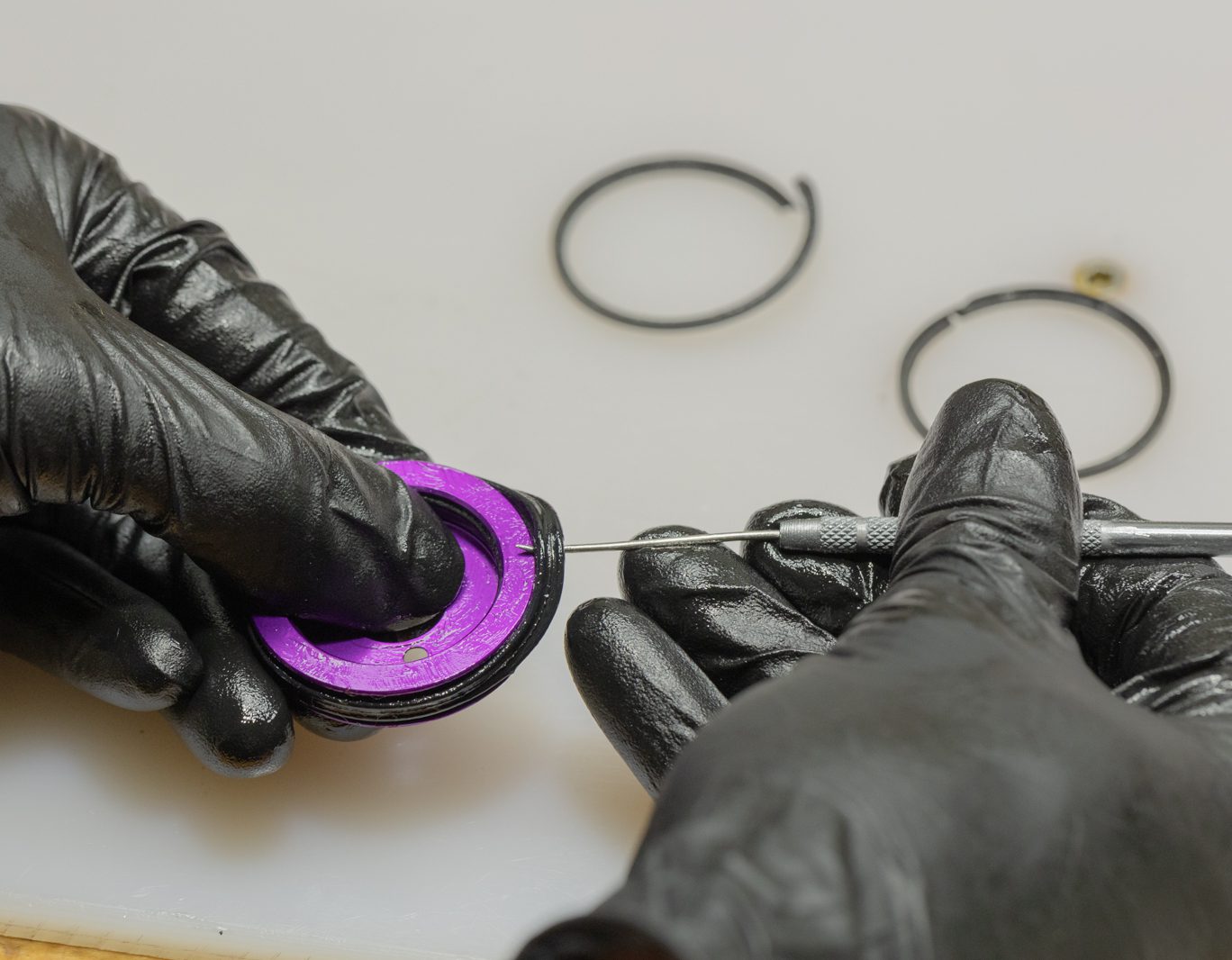
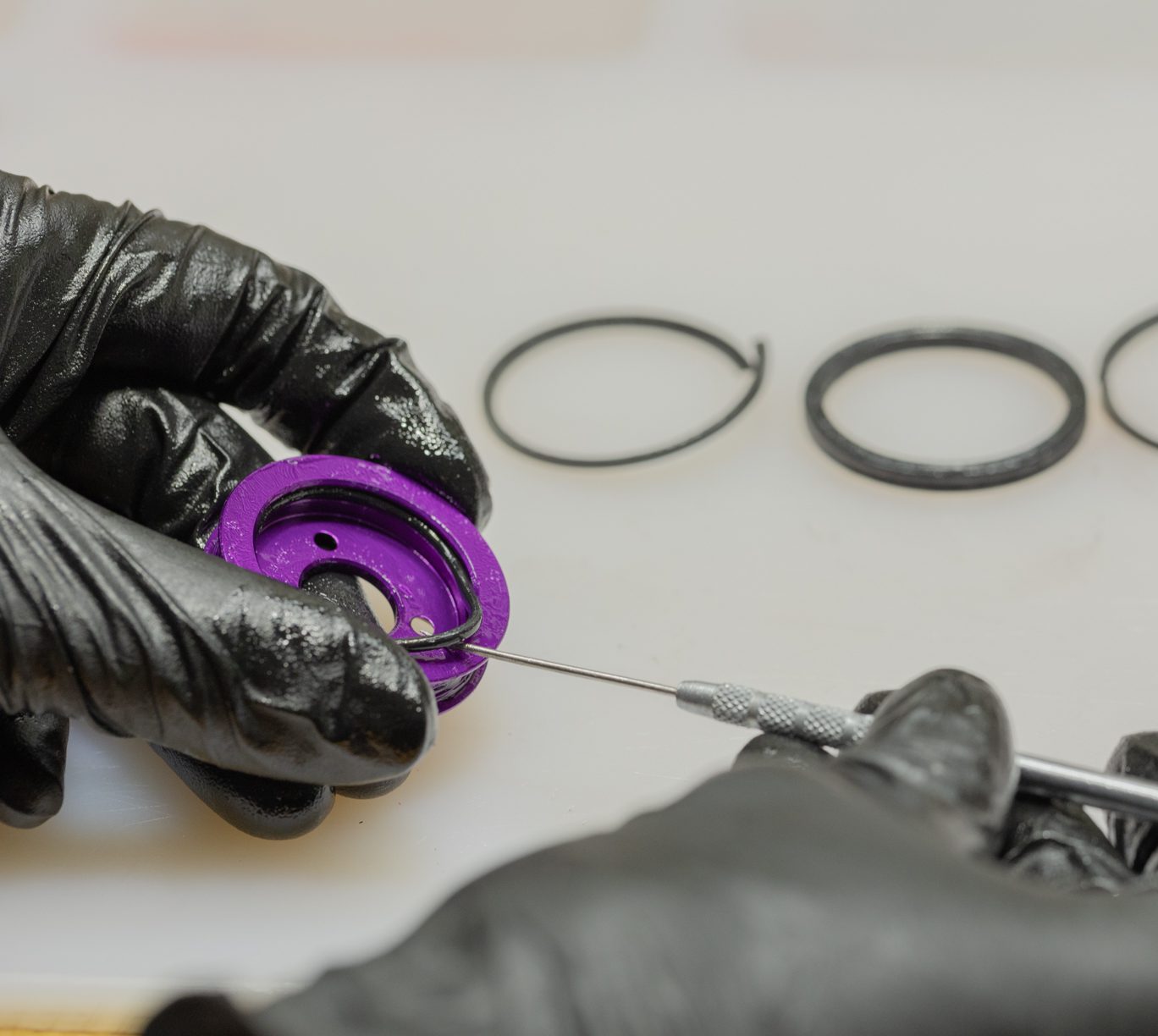
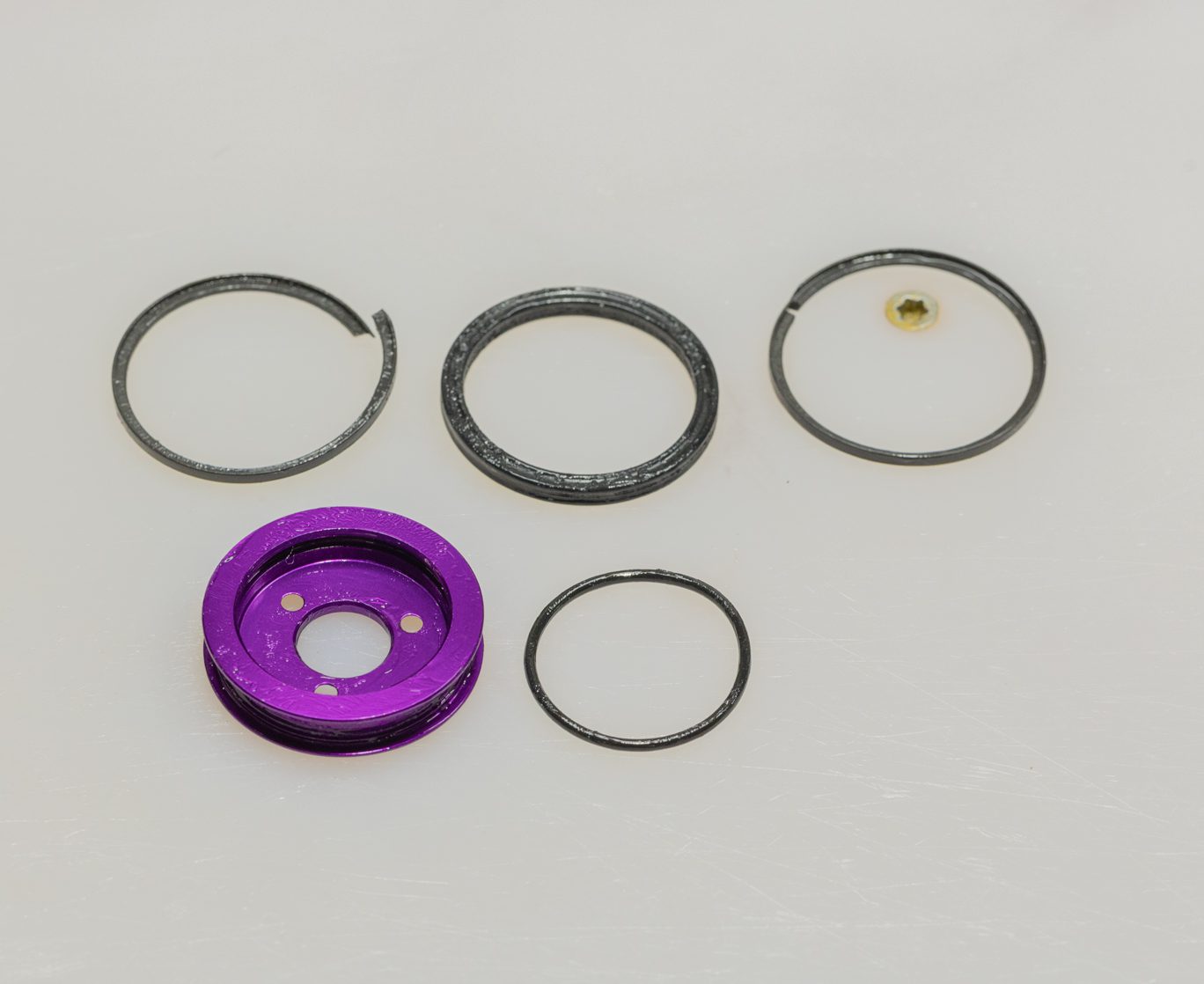
Step 4 - Air Piston Removal
Using T10 loosen and slowly remove all 3 air piston screws. Use caution as this will release any air trapped in negative chamber. Pull up on inner air can to remove inner air can and piston. Press piston out of inner air can. Remove 2 L-back up rings, quad ring and interior o-ring from piston and discard.

Air Piston Set Screws

Air Piston Set Screw Removal

Air Piston Set Screw Removed

Inner Air Can & Piston Removal

Inner Air Can & Piston Removed

Pressing Piston out of Air Can

Piston L-Ring Removal

Piston Quad-Ring Removal

Piston O-Ring Removal

Air Piston Disassembled
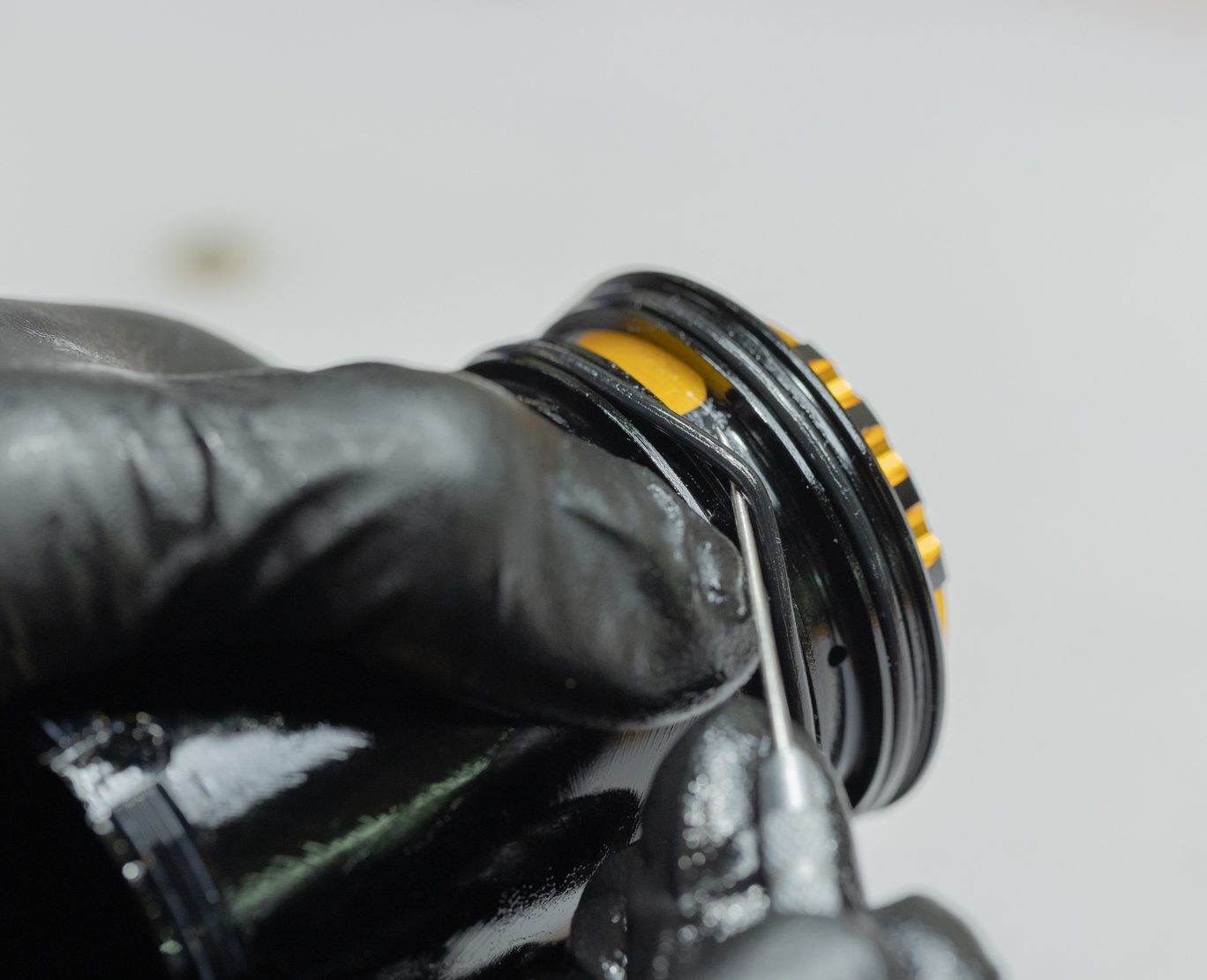
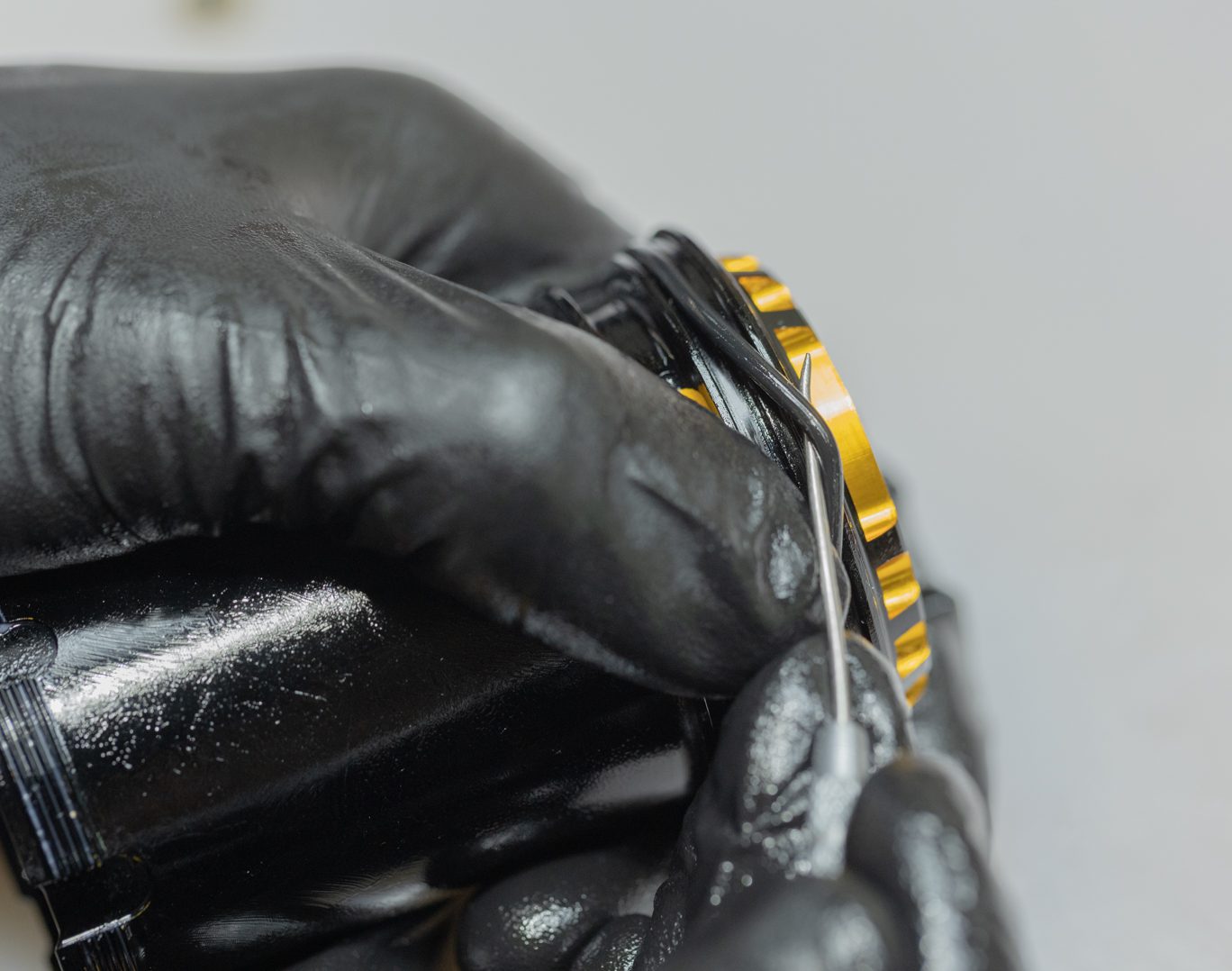
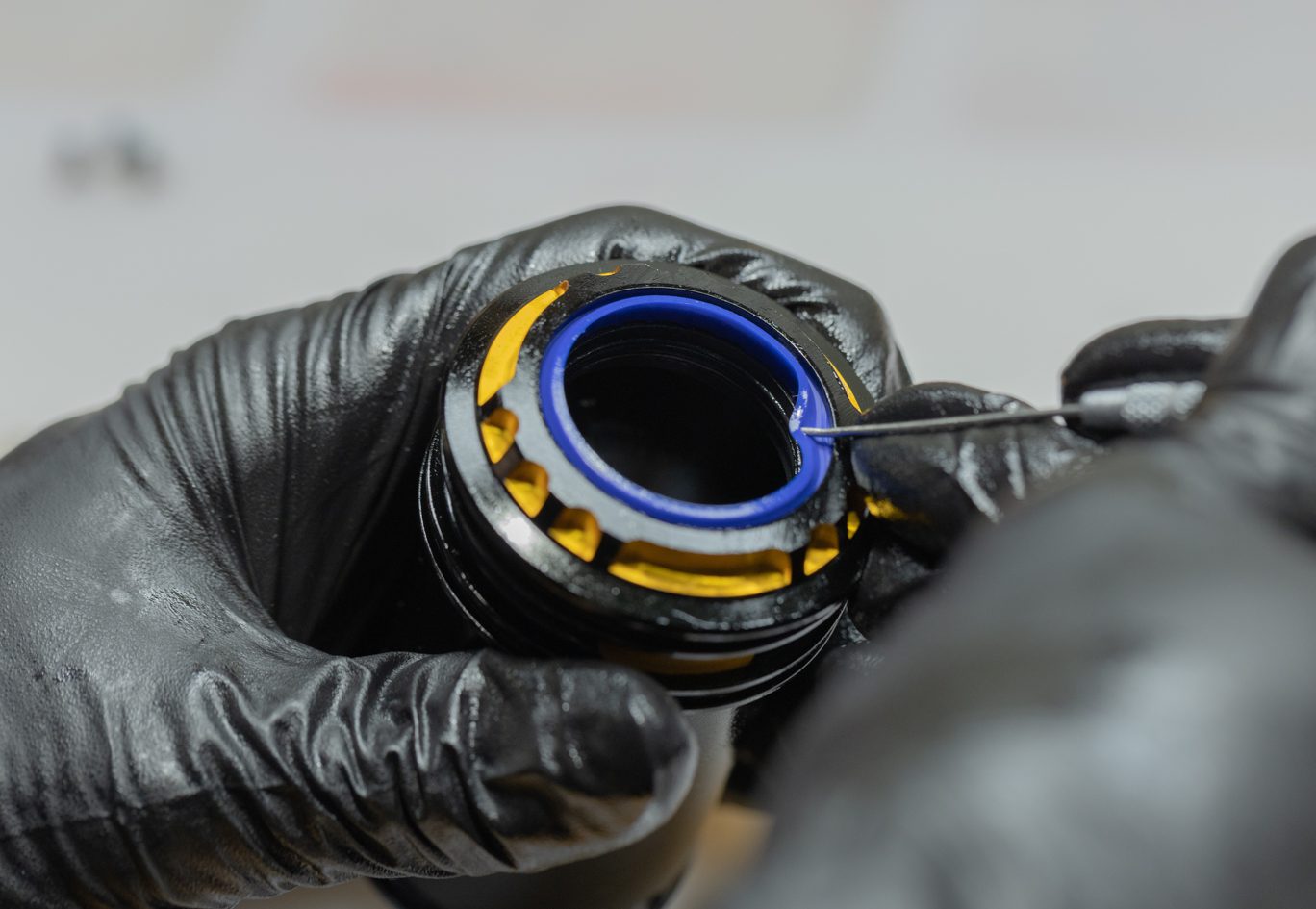
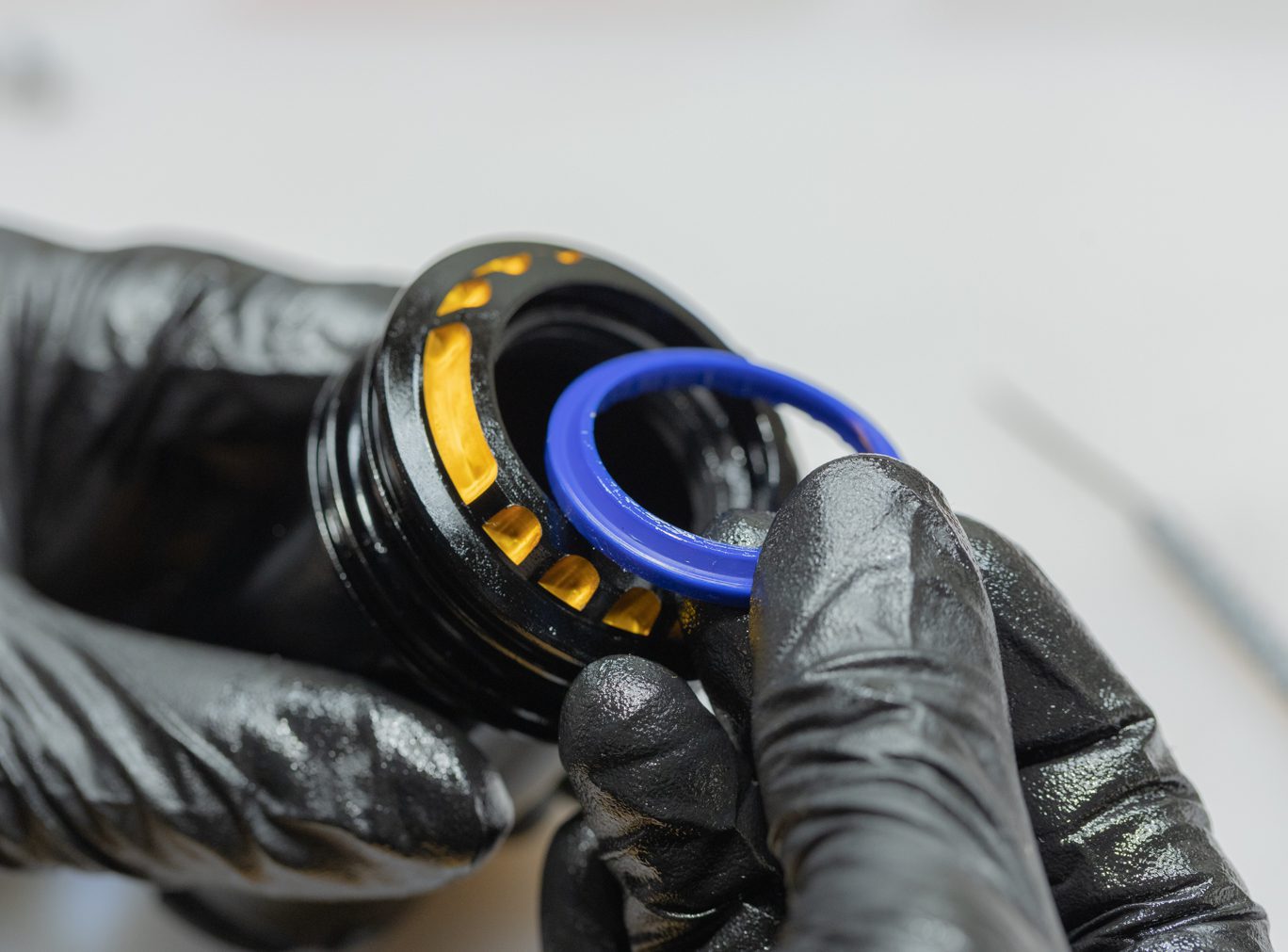
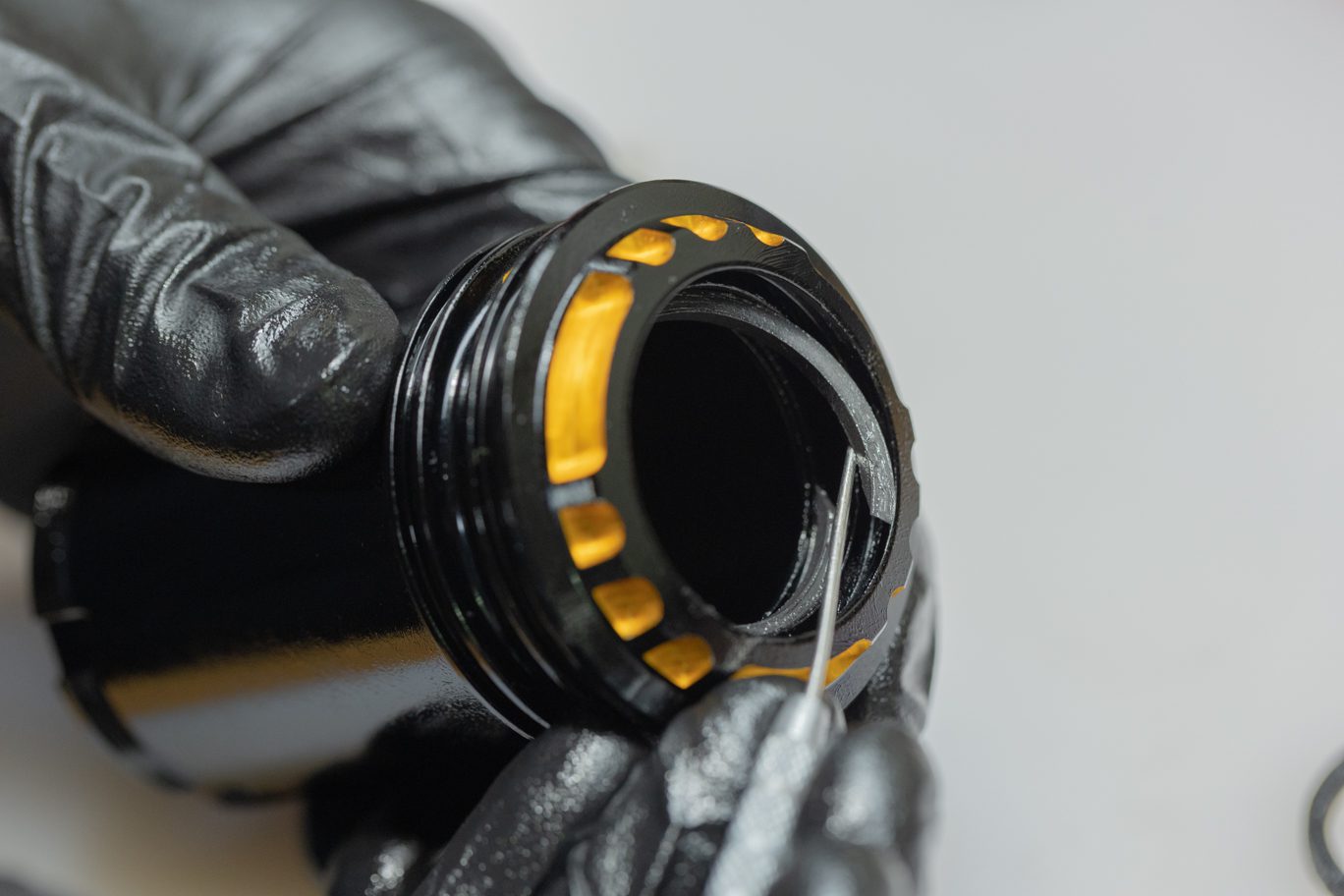
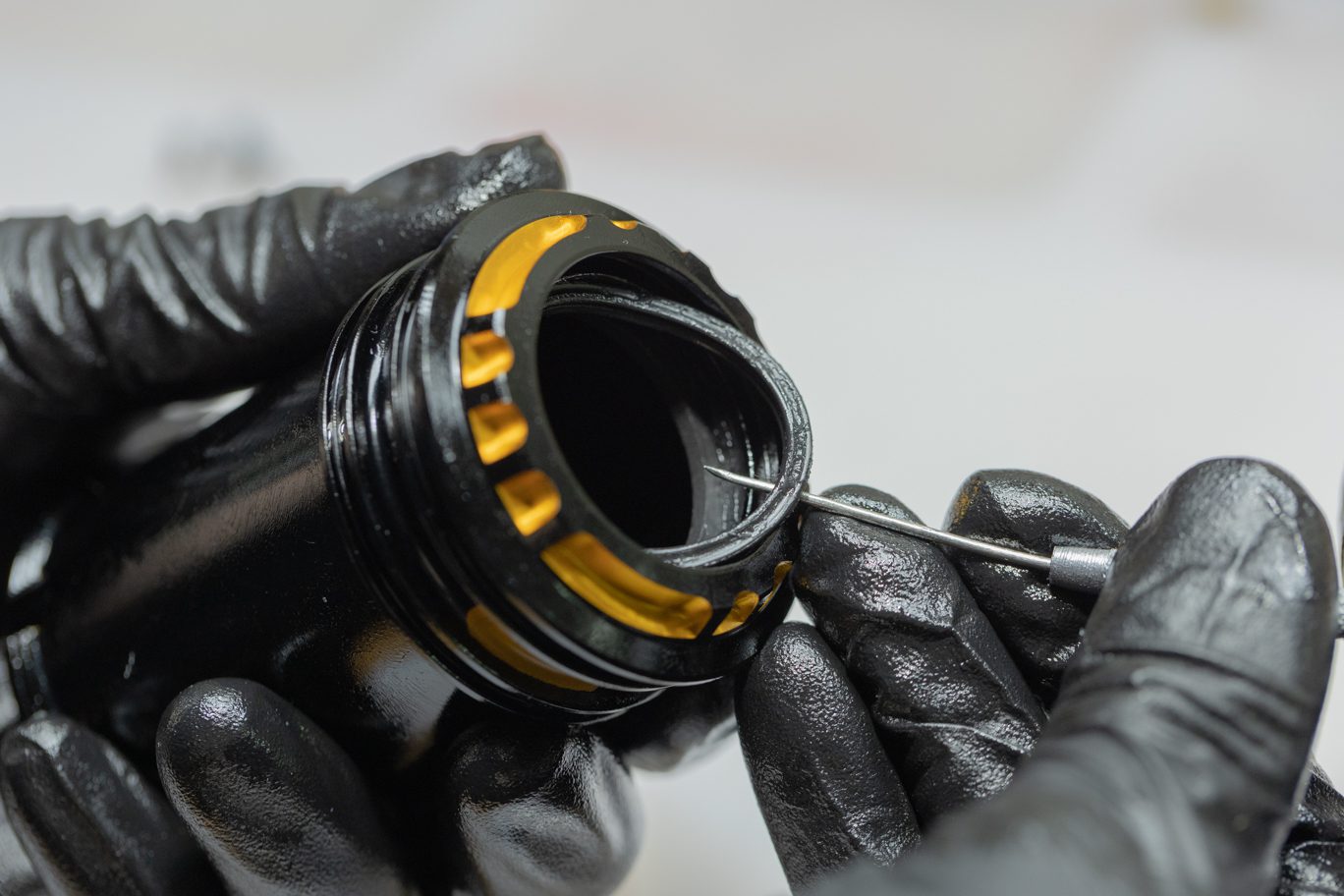
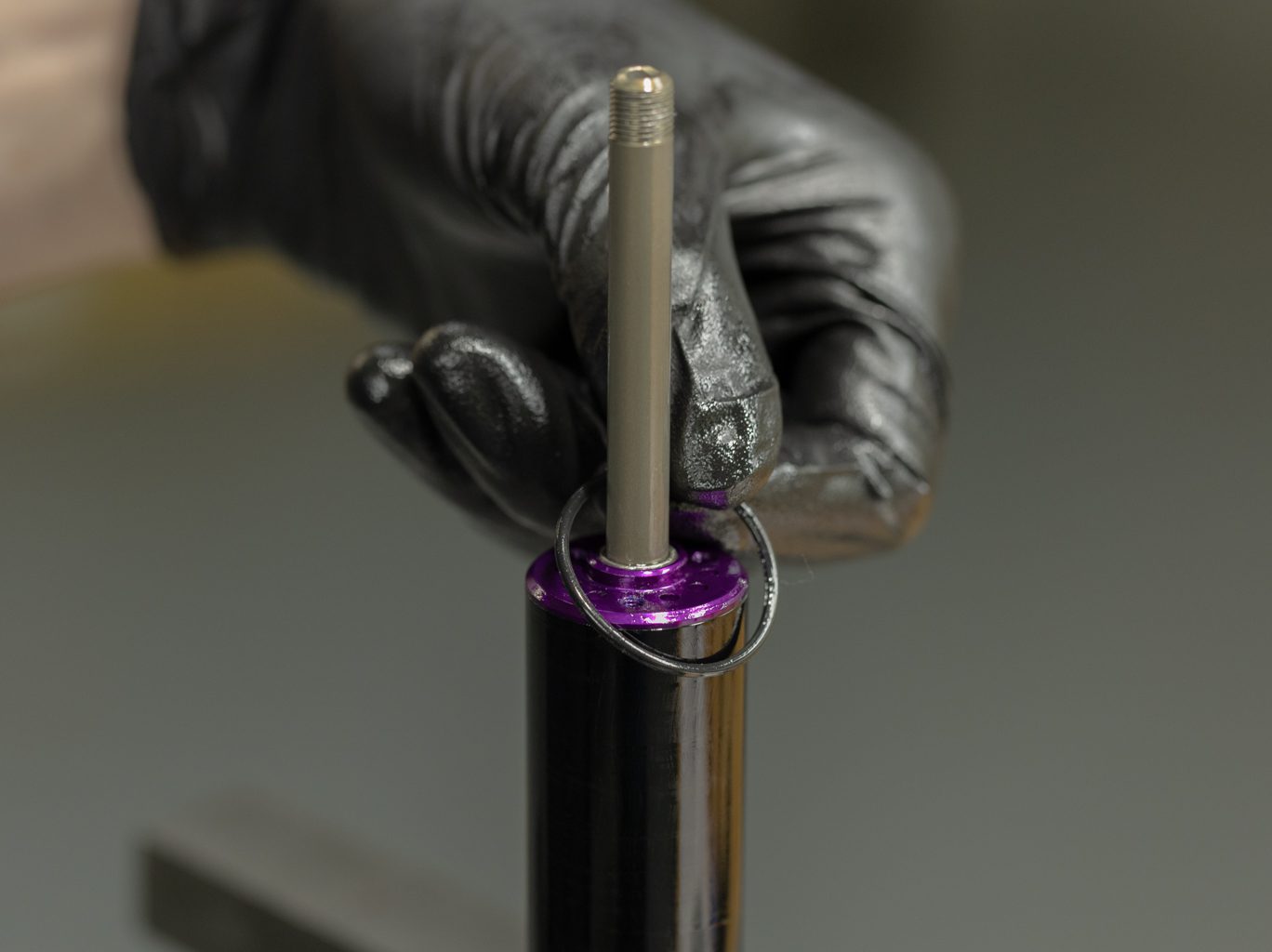

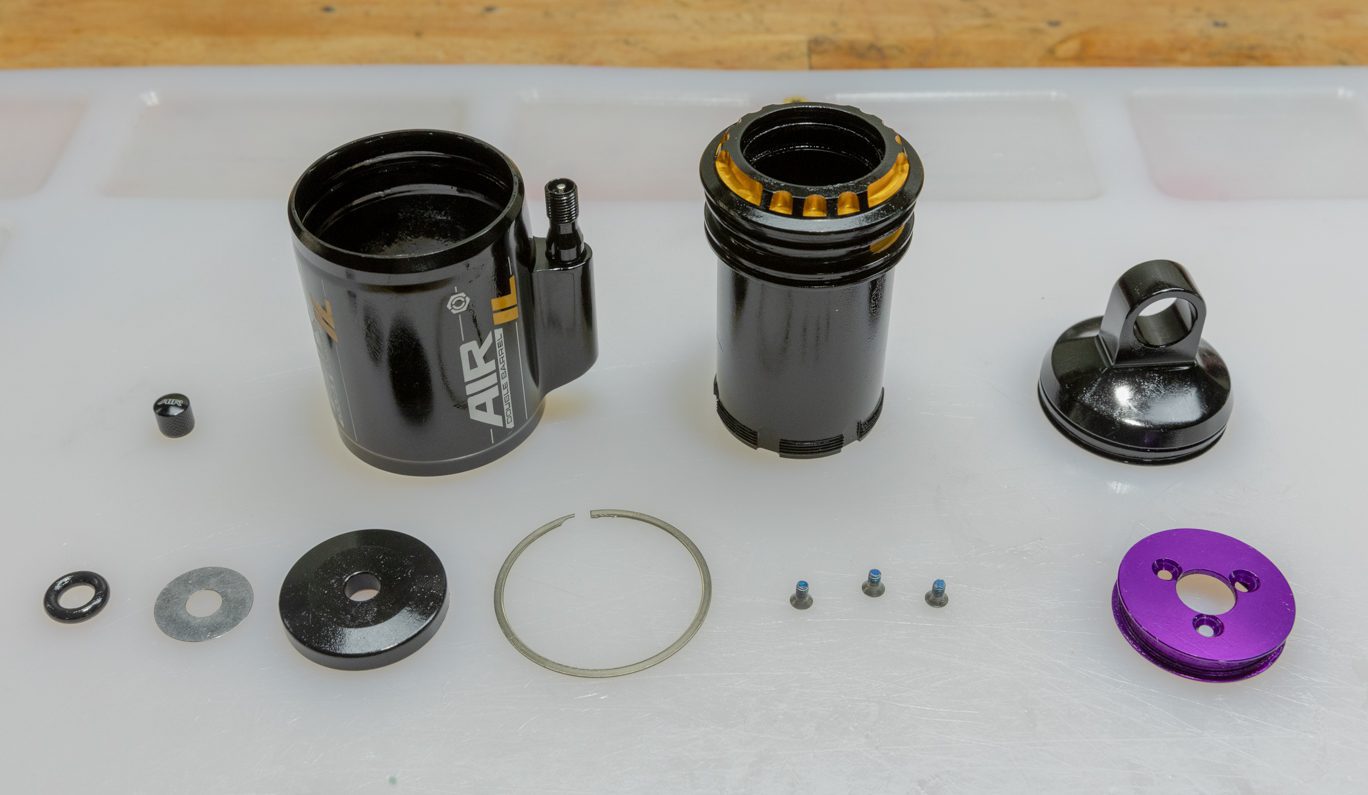
Step 5 – Inner Air Can Disassembly
Remove both o-rings and blue wiper seal from inner air can. Remove 2 L-back up rings and quad ring from interior of inner air can. Remove sag o-ring. Discard all rings, seals and wiper. Inspect inner air can for wear. Replace as necessary.

Inner Air Can O-Ring Removal 1

Inner Air Can O-Ring Removal 2

Inner Air Can Wiper Seal Removal

Inner Air Can Wiper Seal Removed

Inner Air Can Back Up Ring Removal

Inner Air Can Quad Ring Removal

Sag O-Ring Removal

Inner Air Can Inspection

Air Can Disassembled
Damper Disassembly
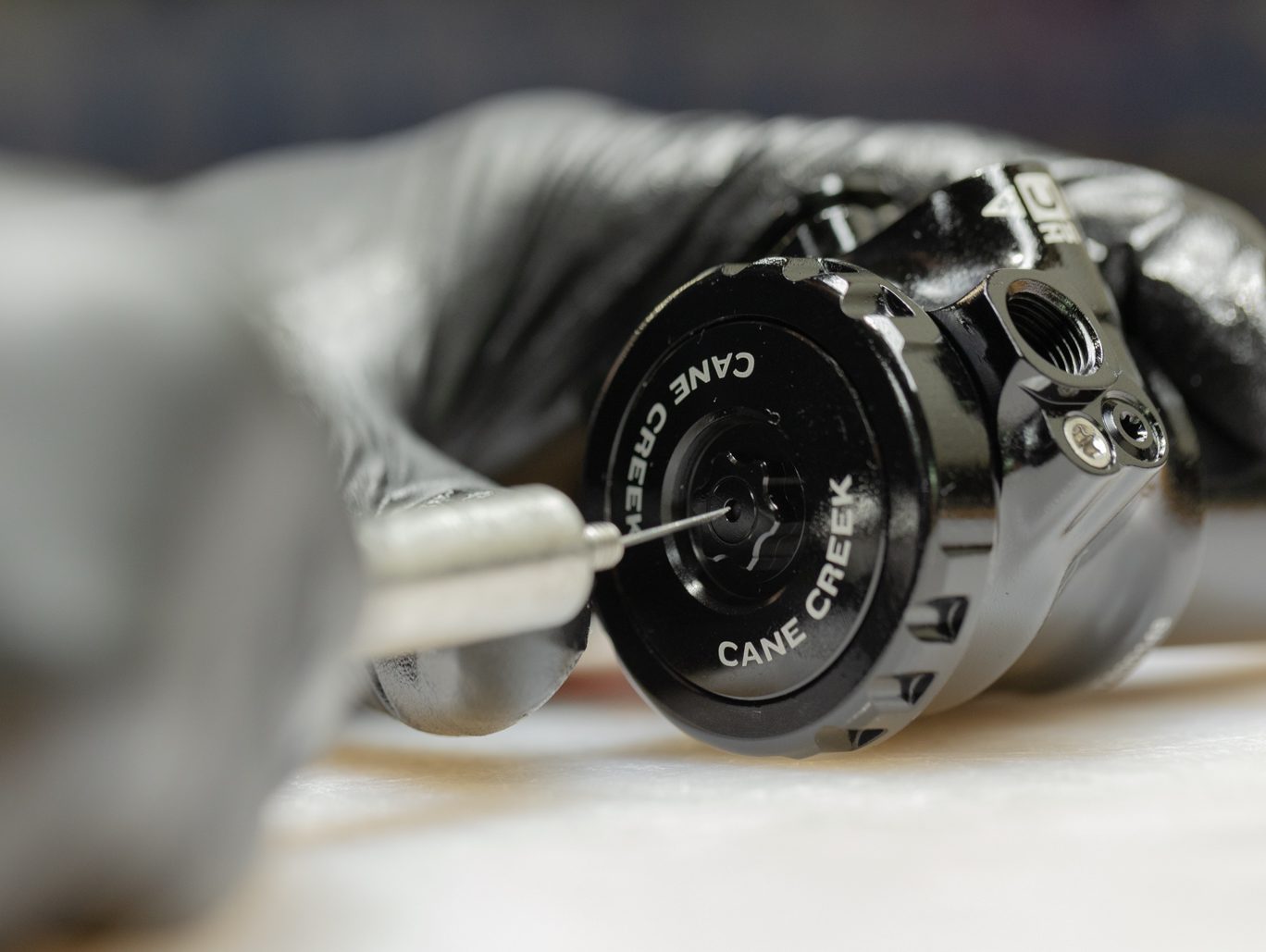
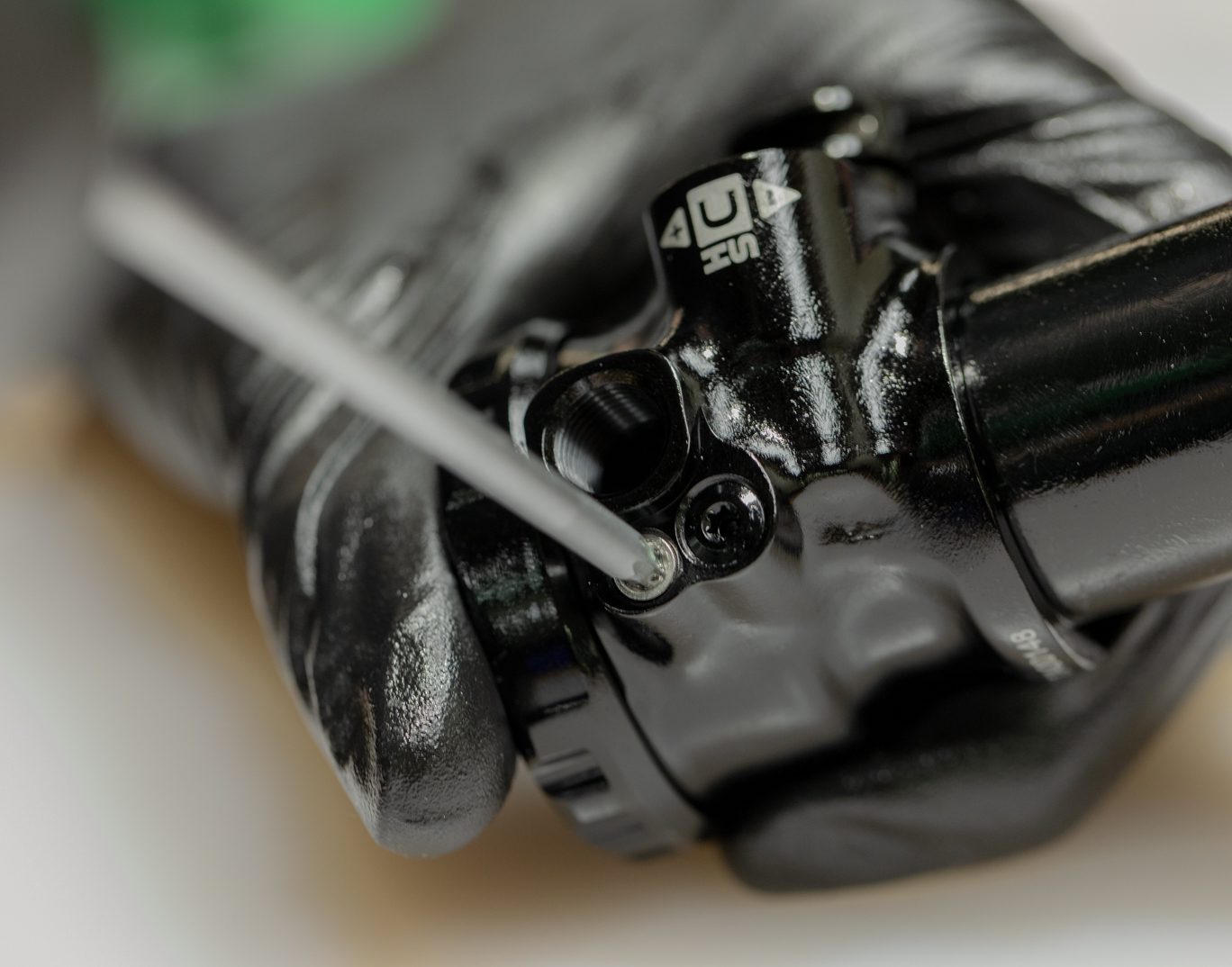
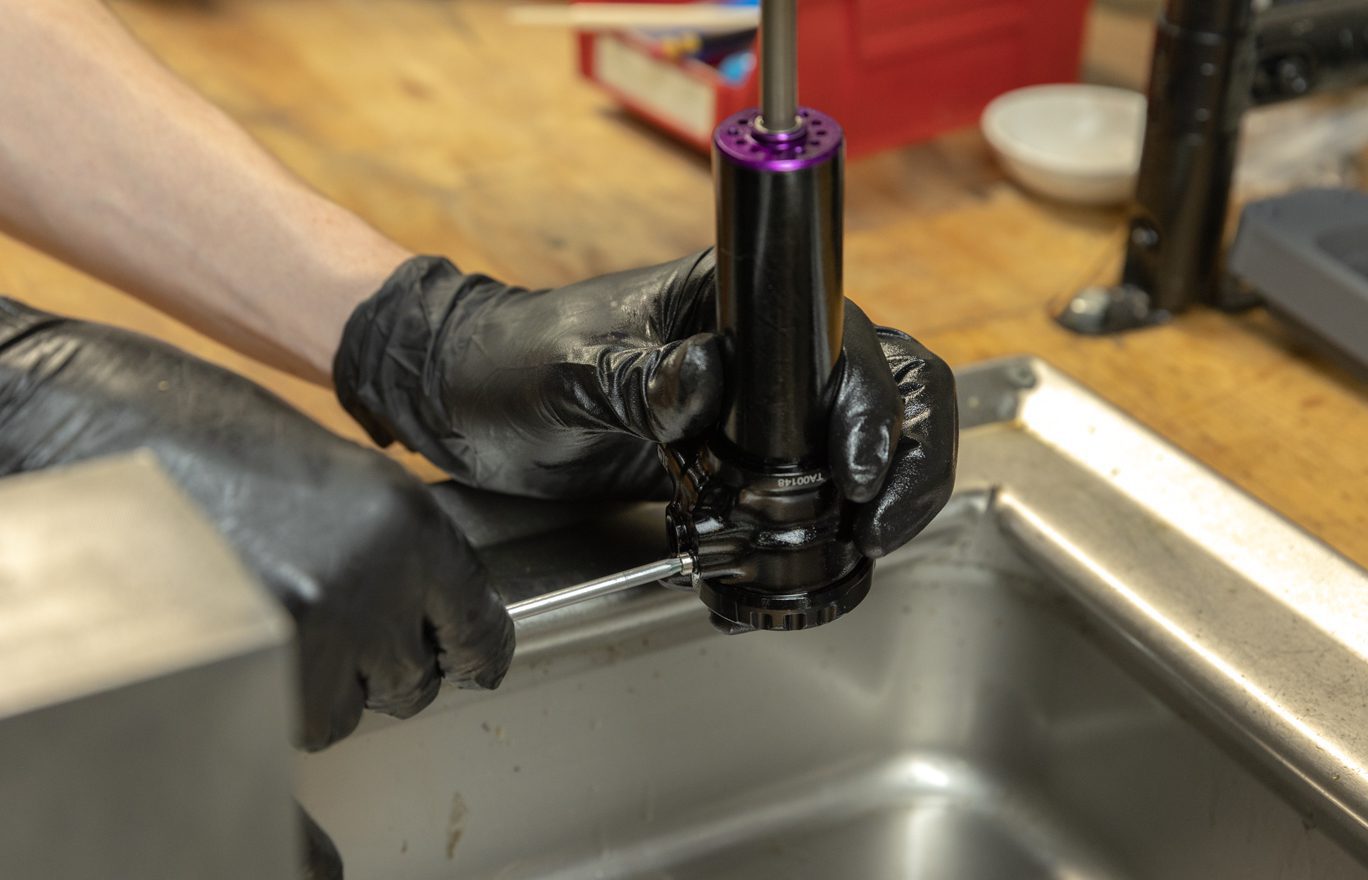
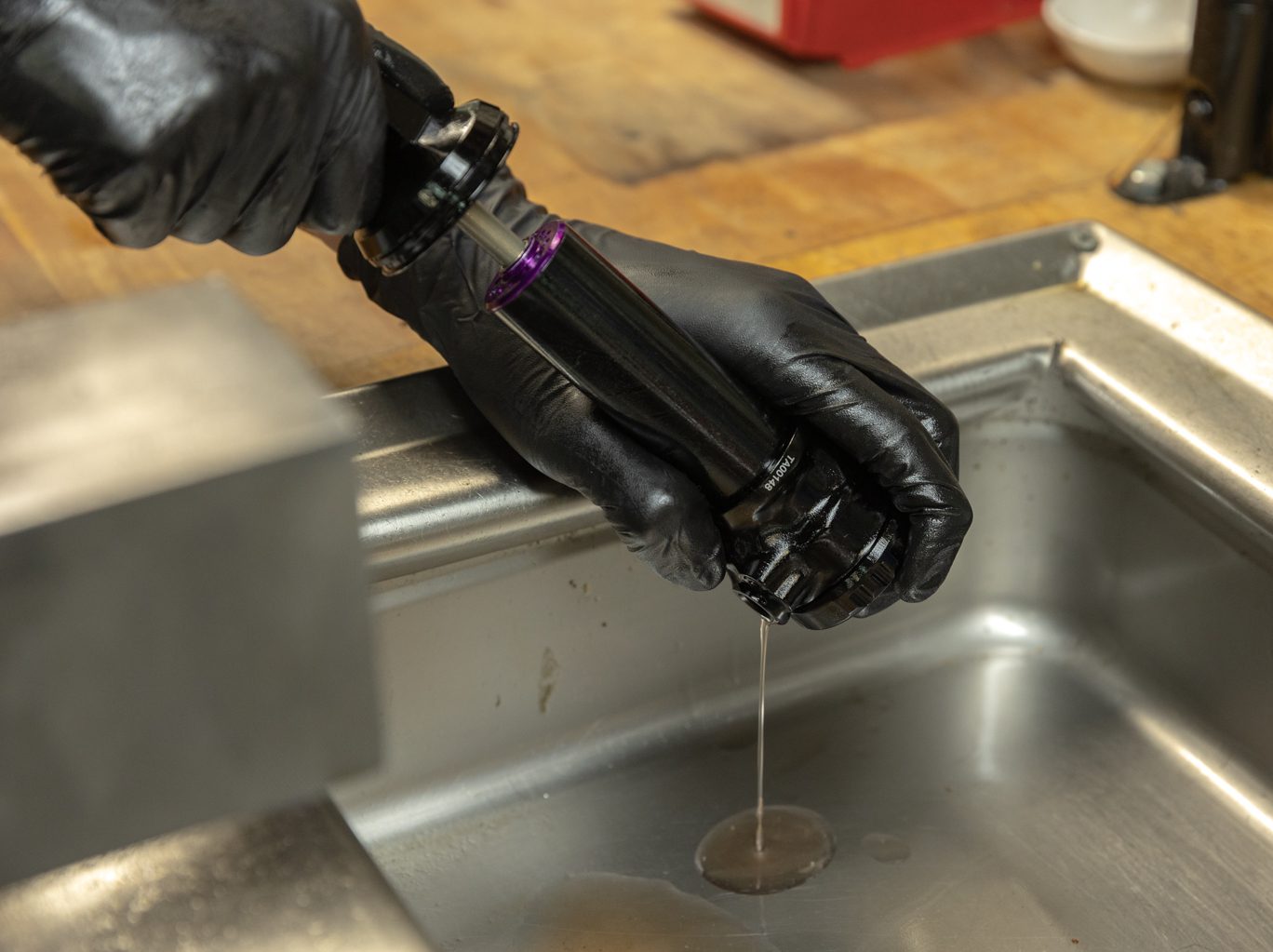
Step 1 – Gas & Oil Removal
***Use caution as nitrogen is pressurized.***
Bleed gas with gas fill needle. Remove oil fill screw with T15. Remove slowly as there may be aerated oil behind fill screw. Empty oil through fill screw by cycling the damper.

Degassing Trunnion Valve Body

Loosening Oil Fill Screw

Remove Oil Fill Screw

Cycling Oil from Damper
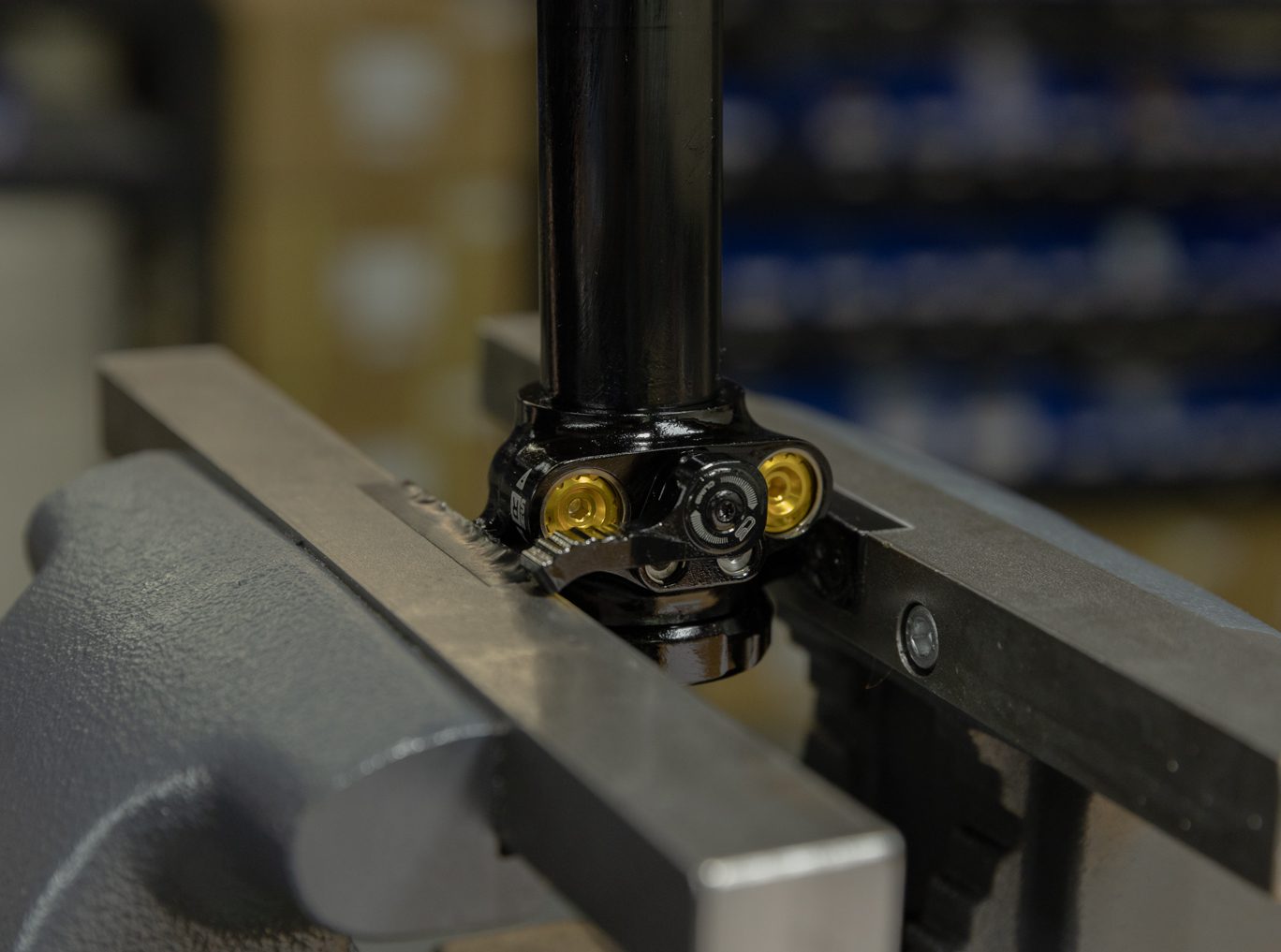
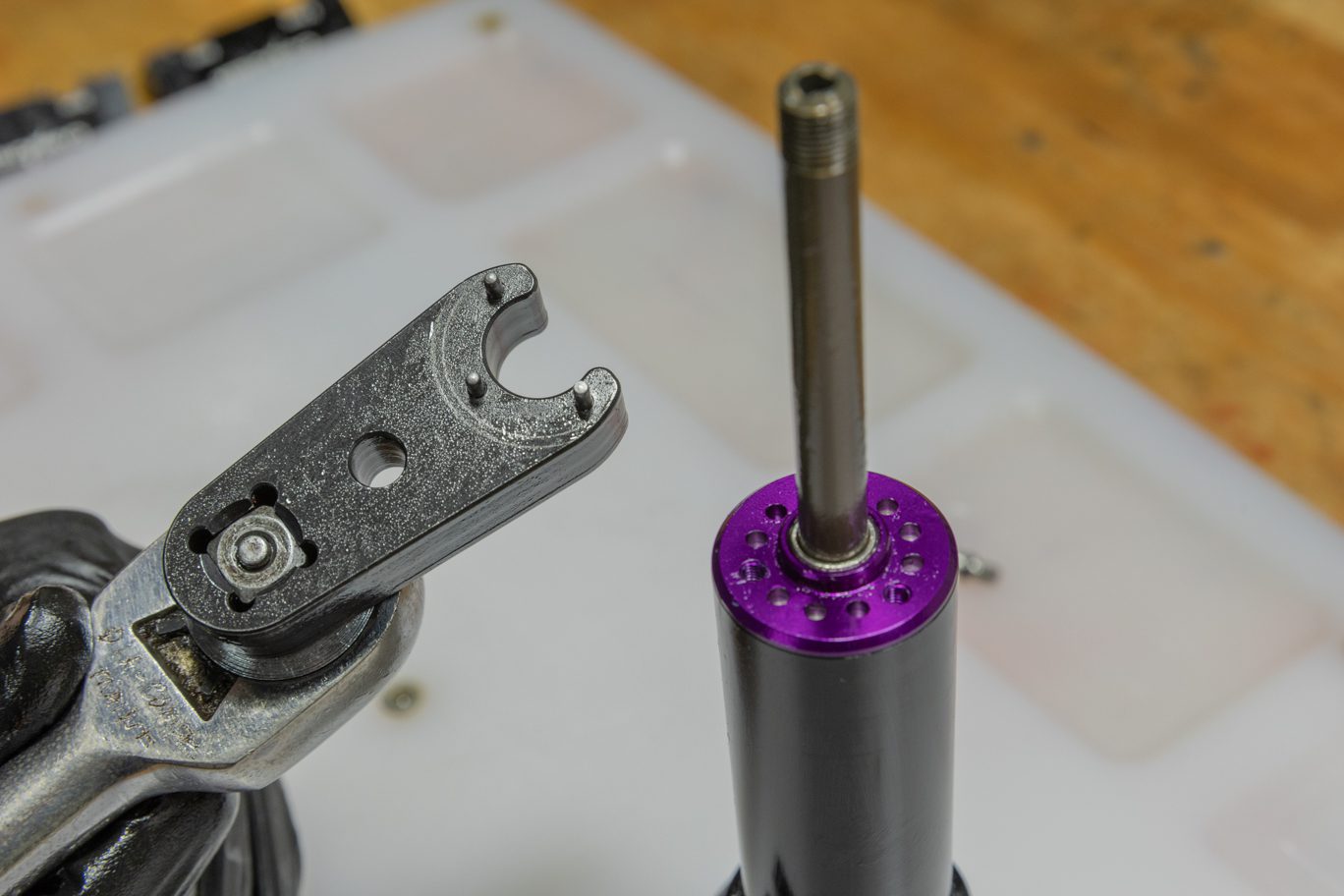

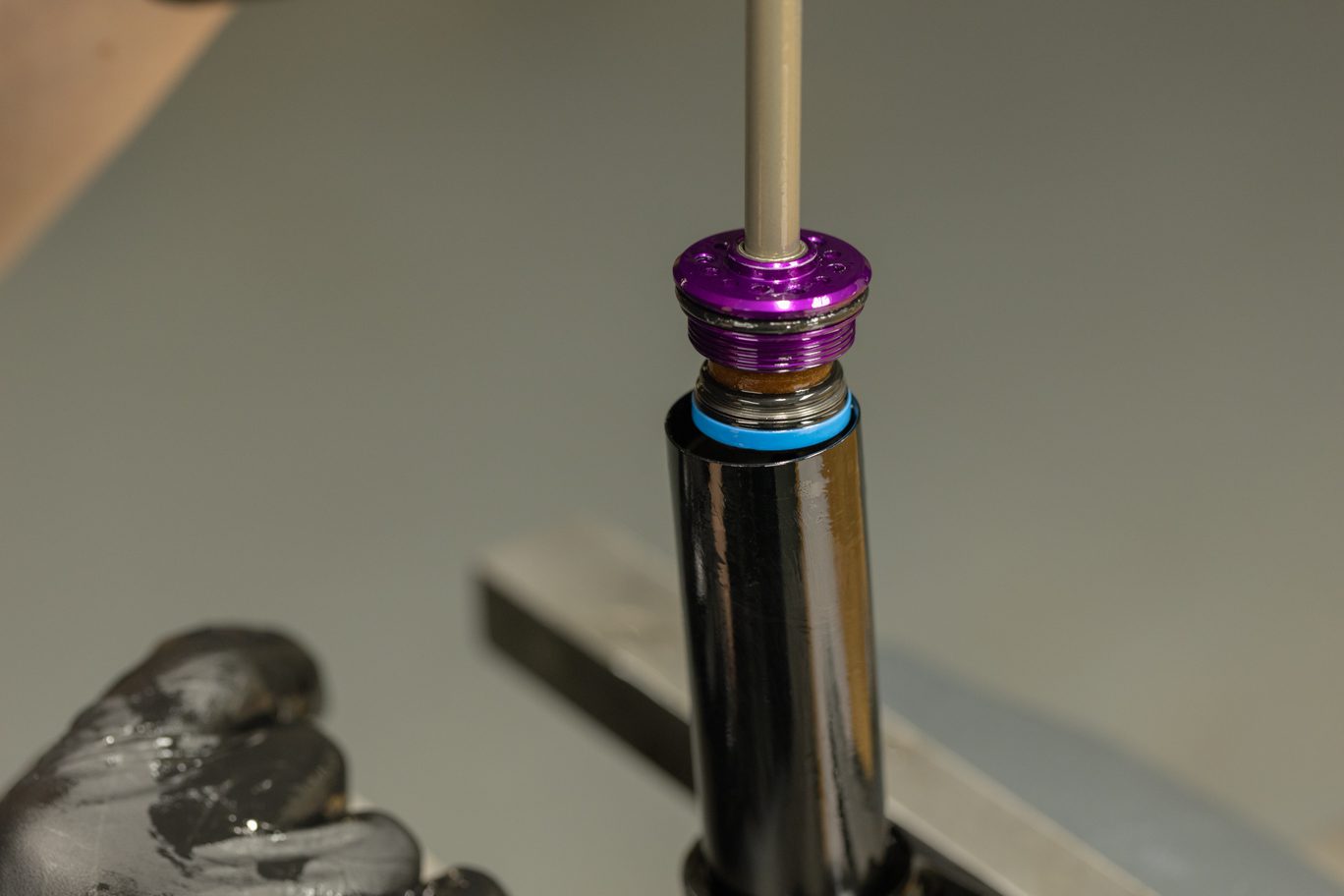
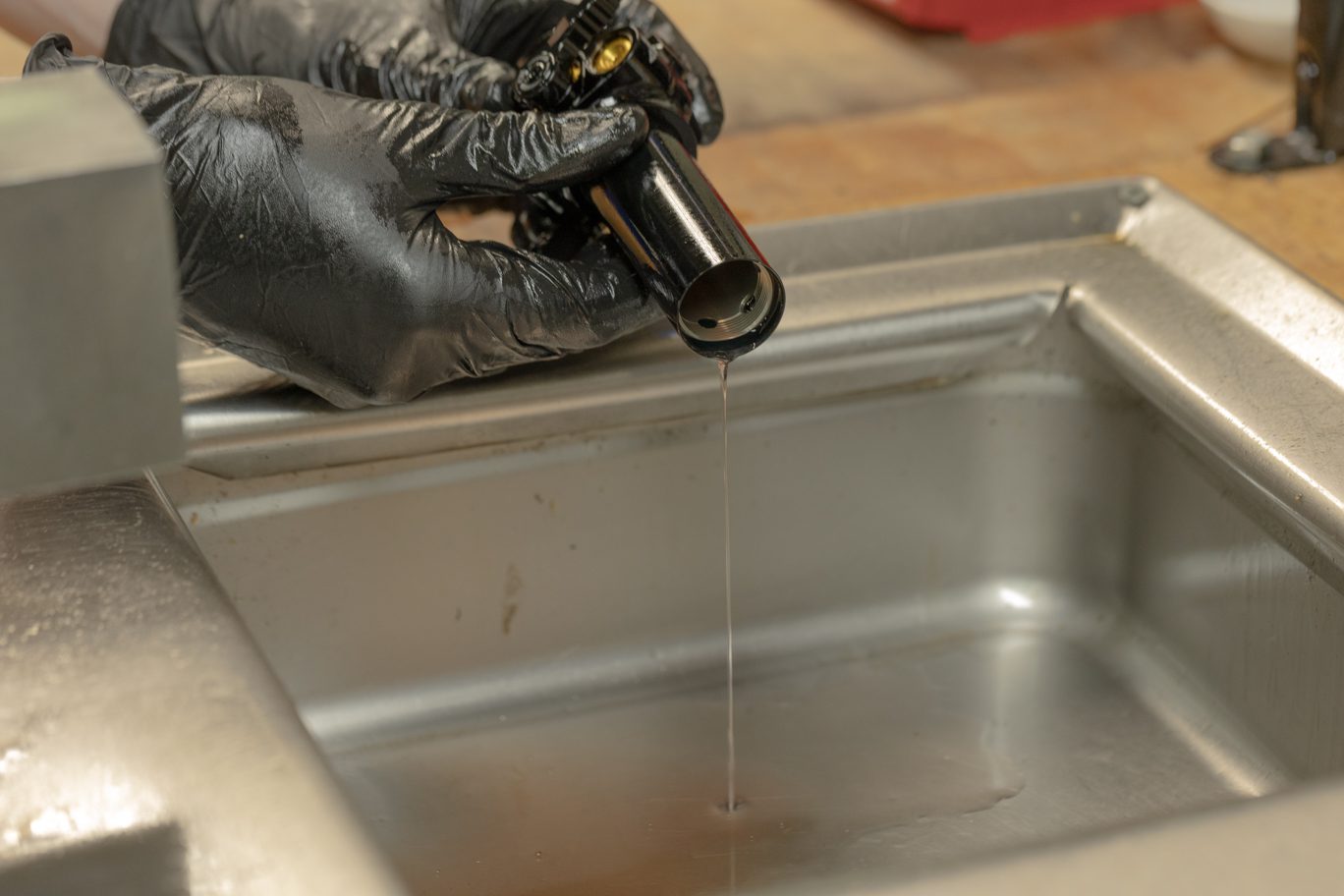
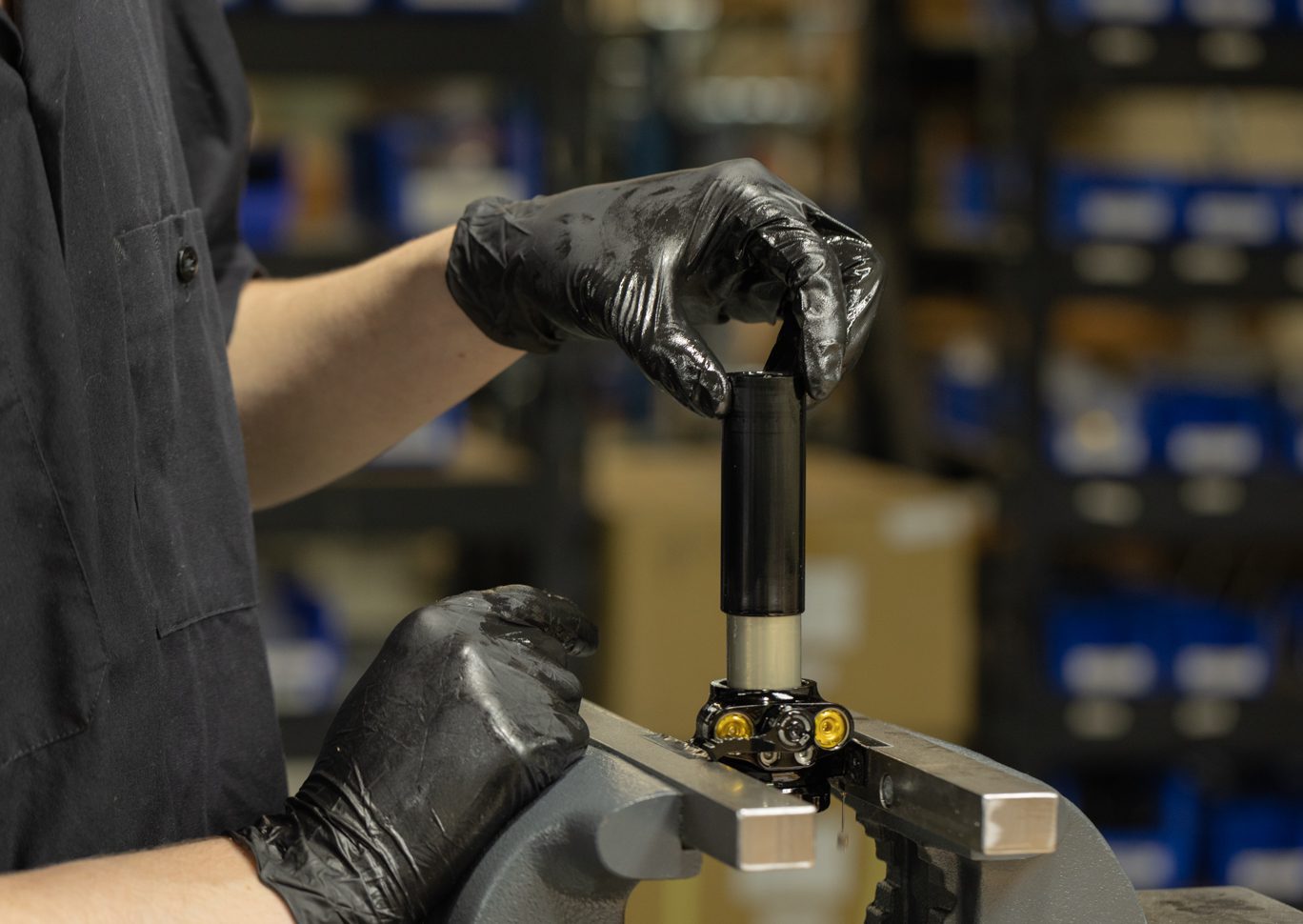
Step 2 – Oil Seal Head & Shaft Assembly Removal
Clamp shock valve body in vise. Use Oil Seal Head Pin Spanner (BAD1174) to free oil seal head. Remove shaft assembly from damper body. Pour out any remaining oil from damper body. Remove outer damper tube.

Air IL Trunnion Valve Body Clamped

Oil Seal Head Pin Spanner

Oil Seal Head Pin Spanner on Oil Seal Head

Shaft Assembly Removal

Oil Disposal

Removing Outer Damper Tube

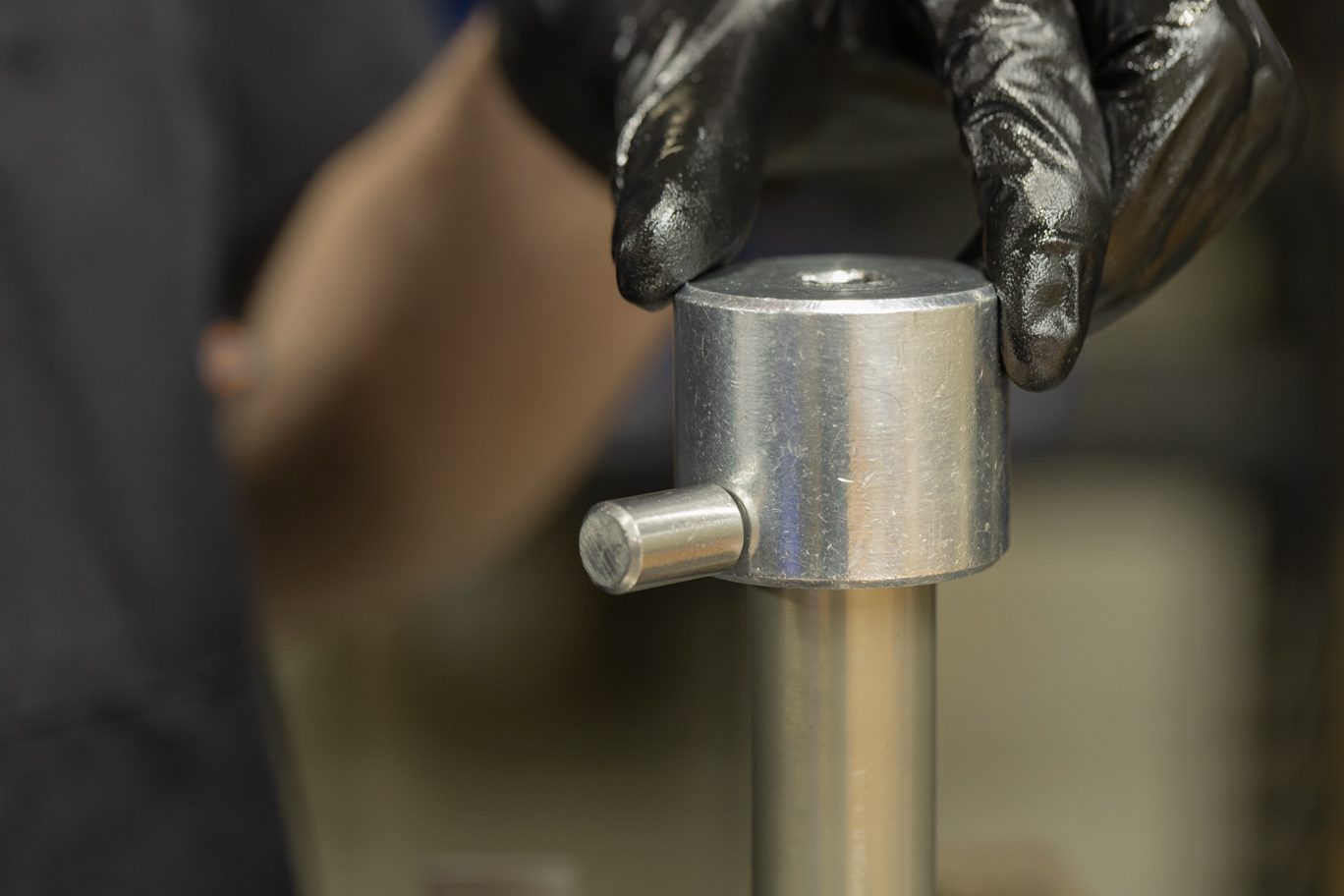
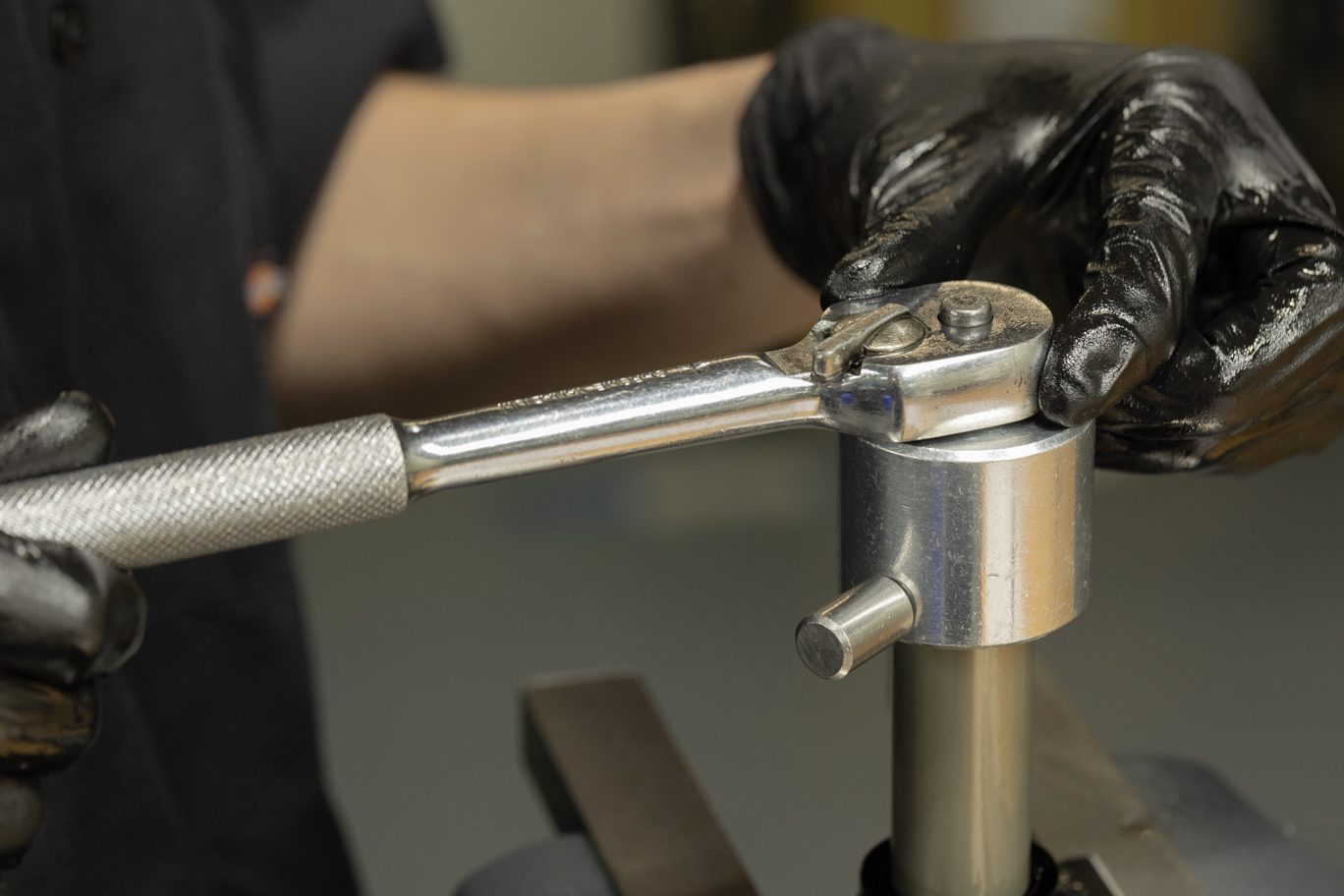
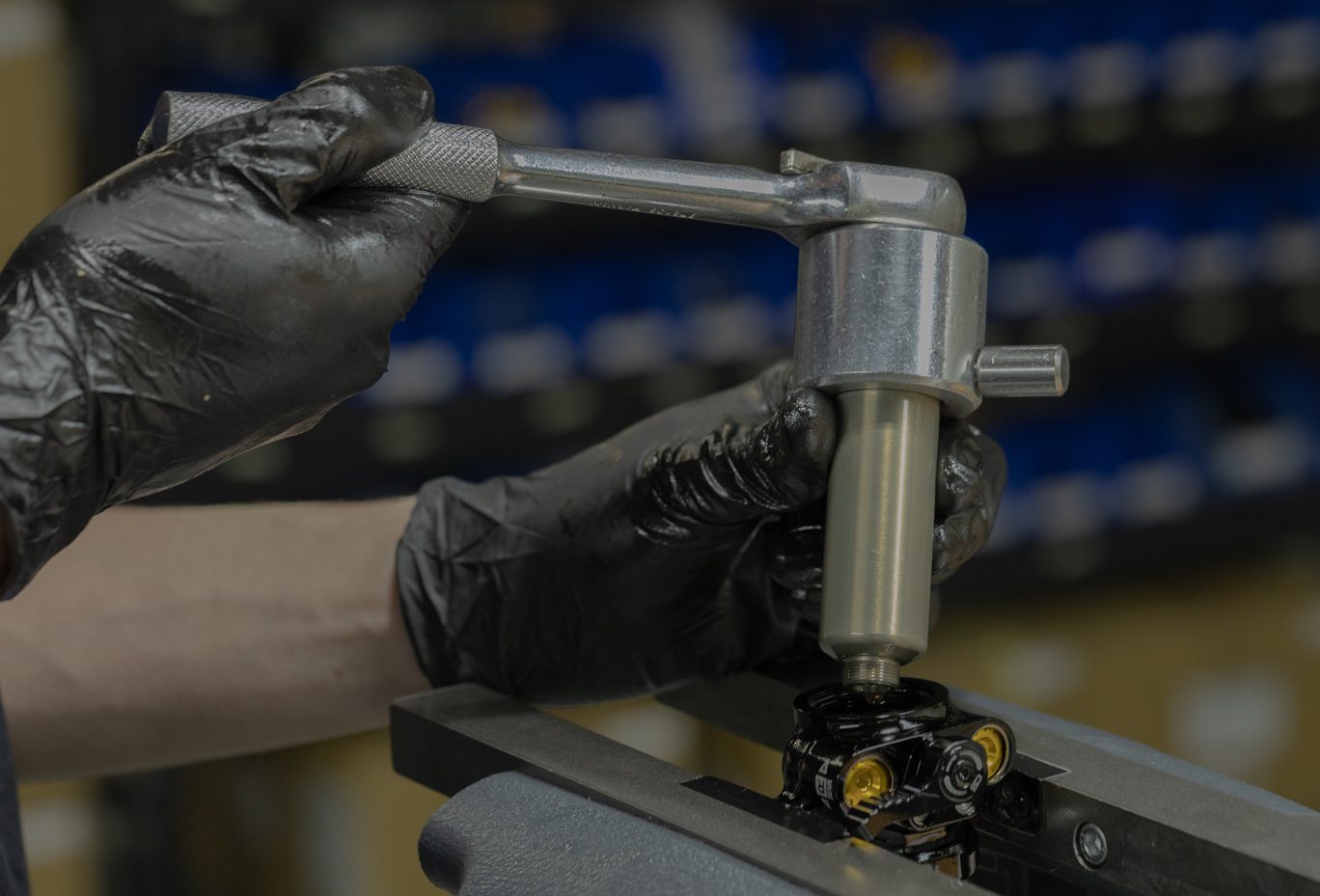
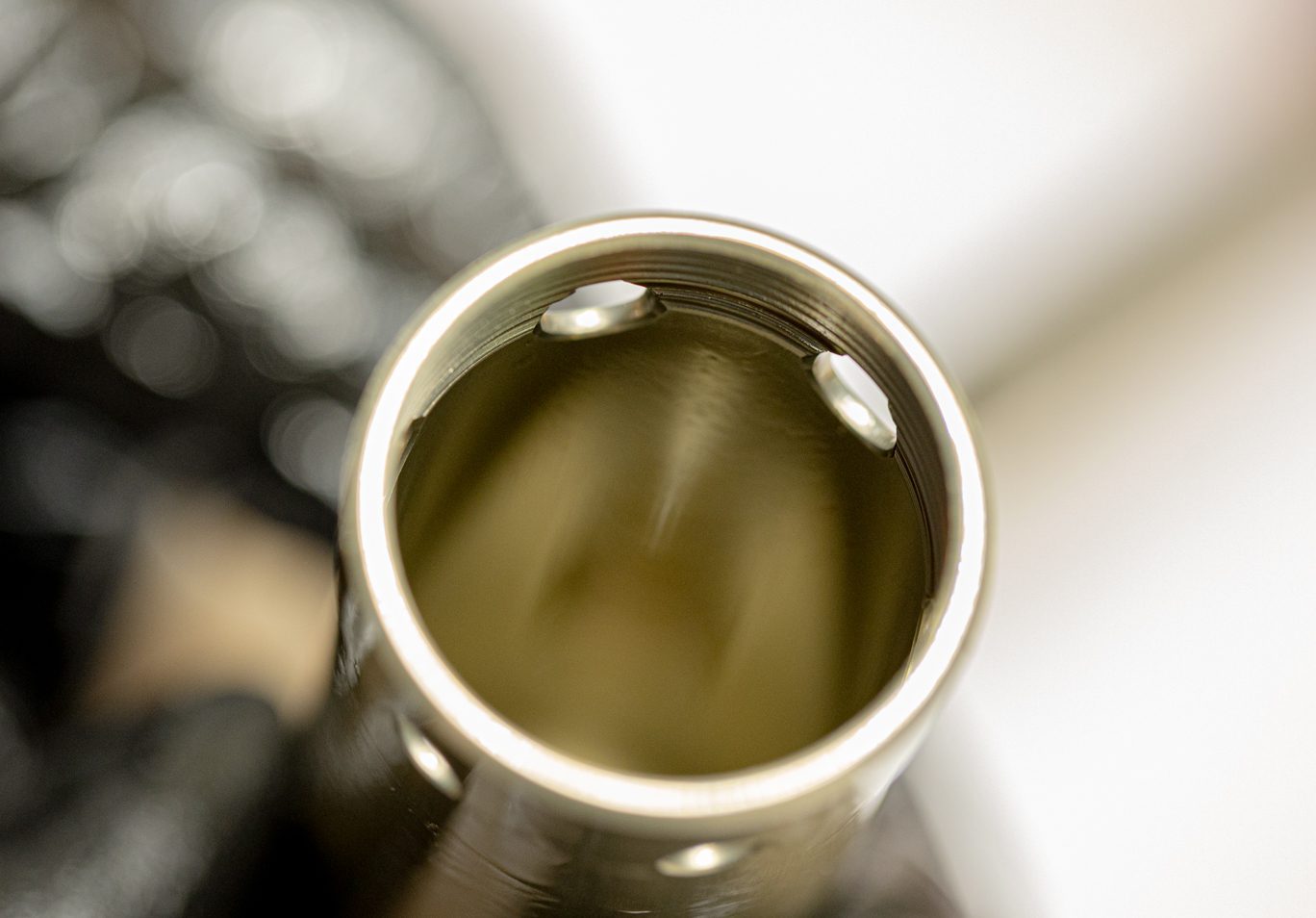
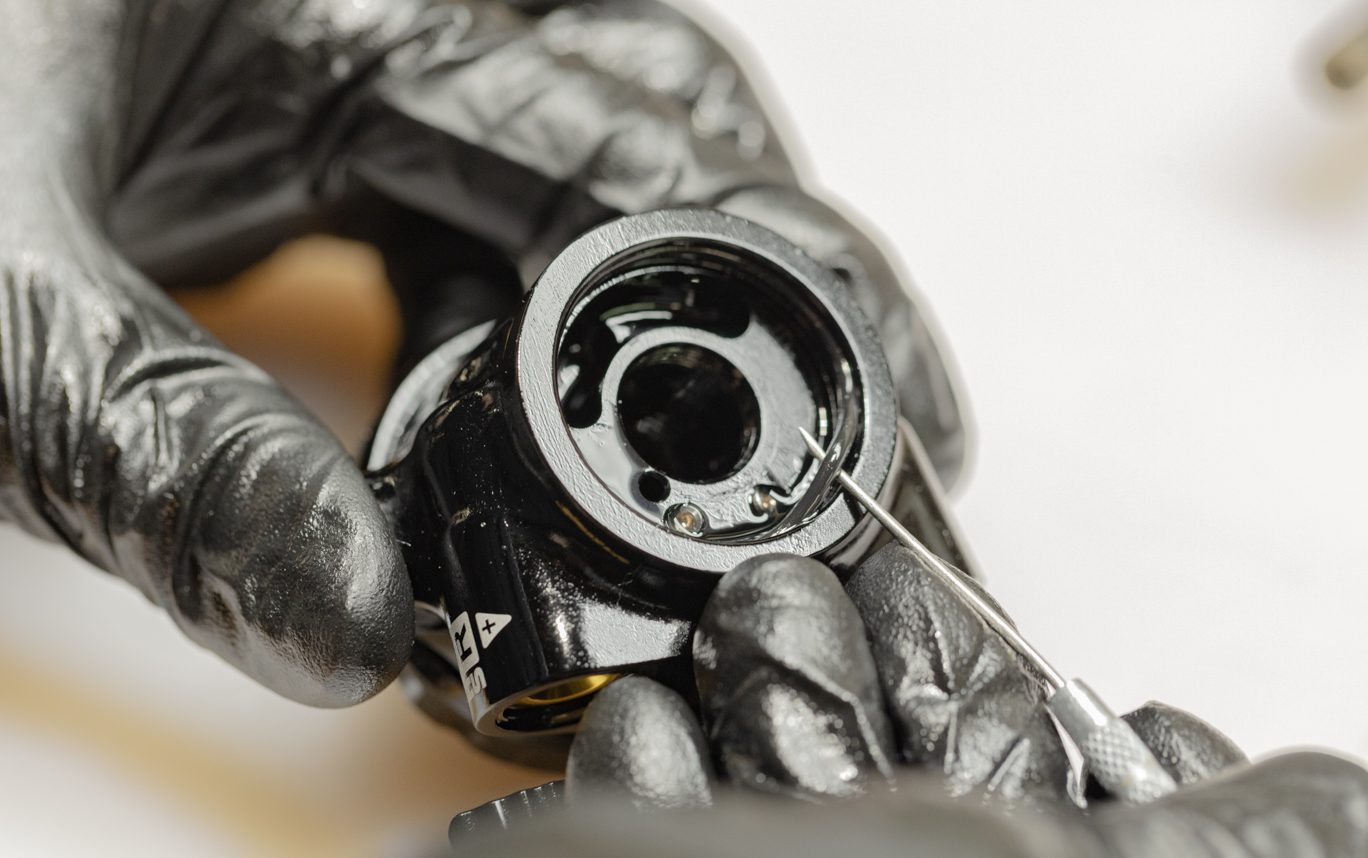
Step 3 – Inner Damper Tube Removal
Using Inner Damper Tool Wrench (BAD1273), remove inner damper from valve body. Inspect interior of inner damper tube for piston band wear. Inspect damper tube threads and remove any remaining Loctite with pick. Clean thoroughly. Replace inner damper tube if necessary. Remove valve body o-ring and discard.

Attaching Inner Damper Tube Tool Wrench

Inner Damper Tube Tool Wrench Attached

Freeing Inner Damper Tube

Removing Inner Damper Tube

Inspecting Interior of Inner Damper Tube

Removing Valve Body O-Ring
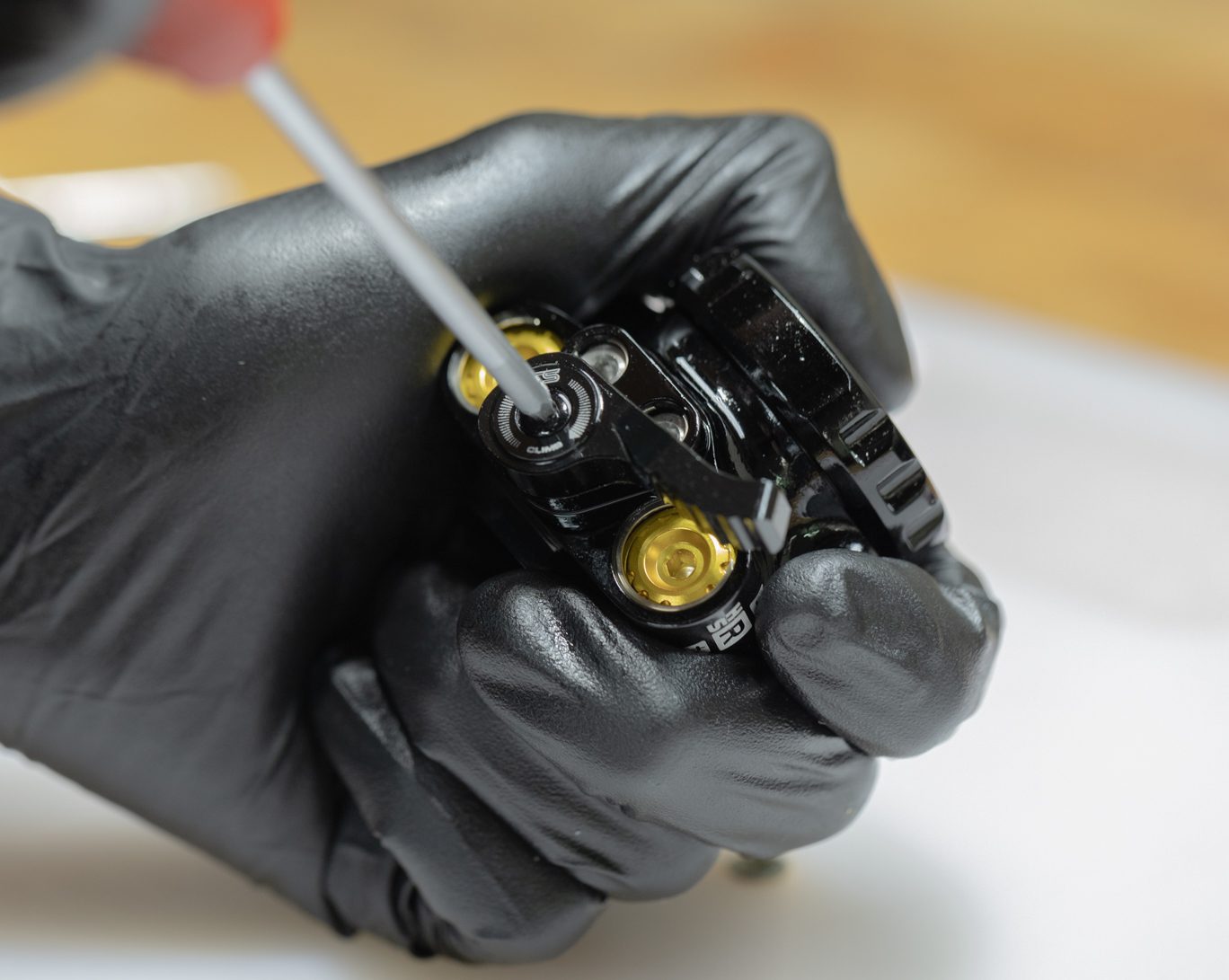
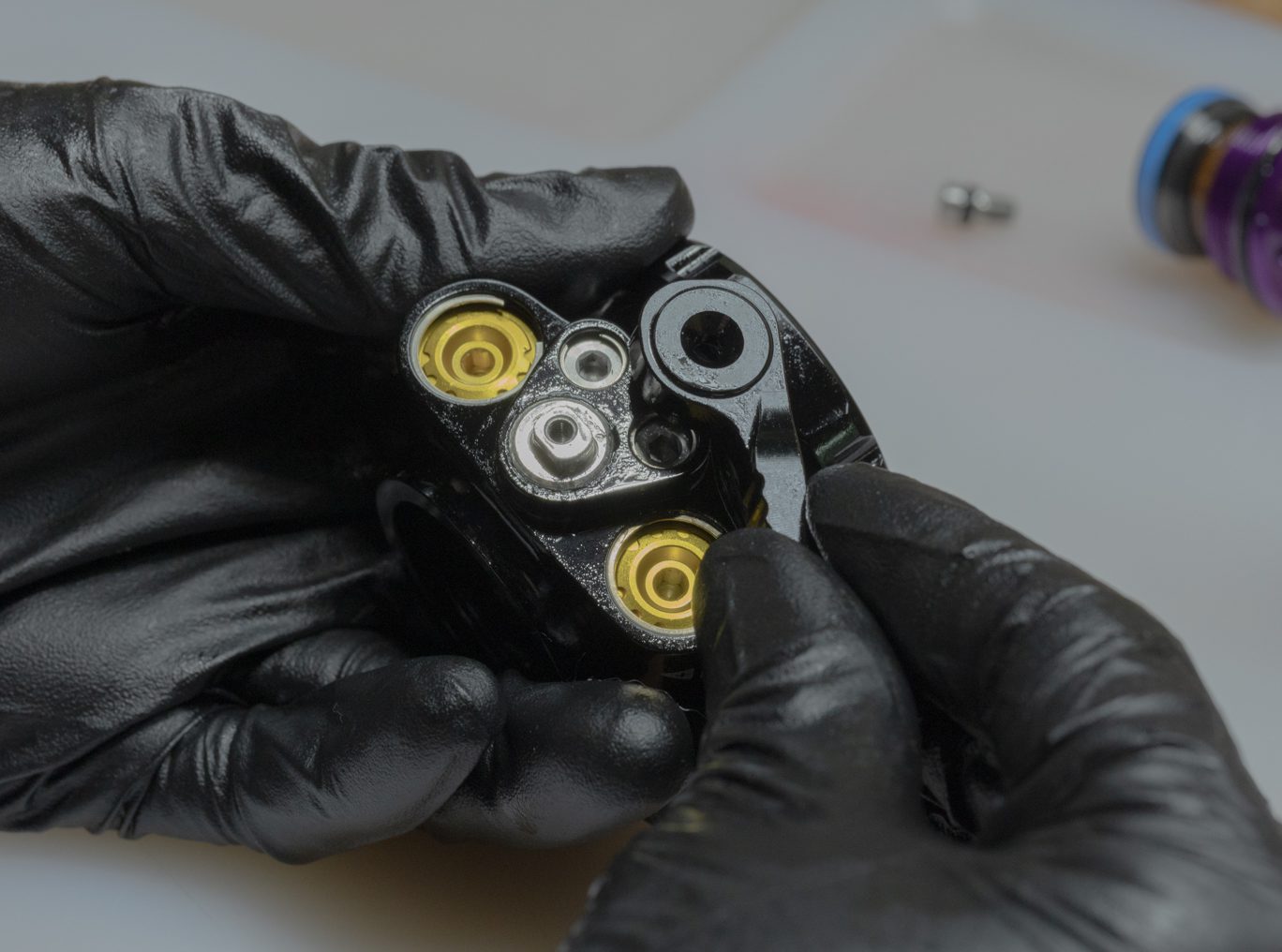
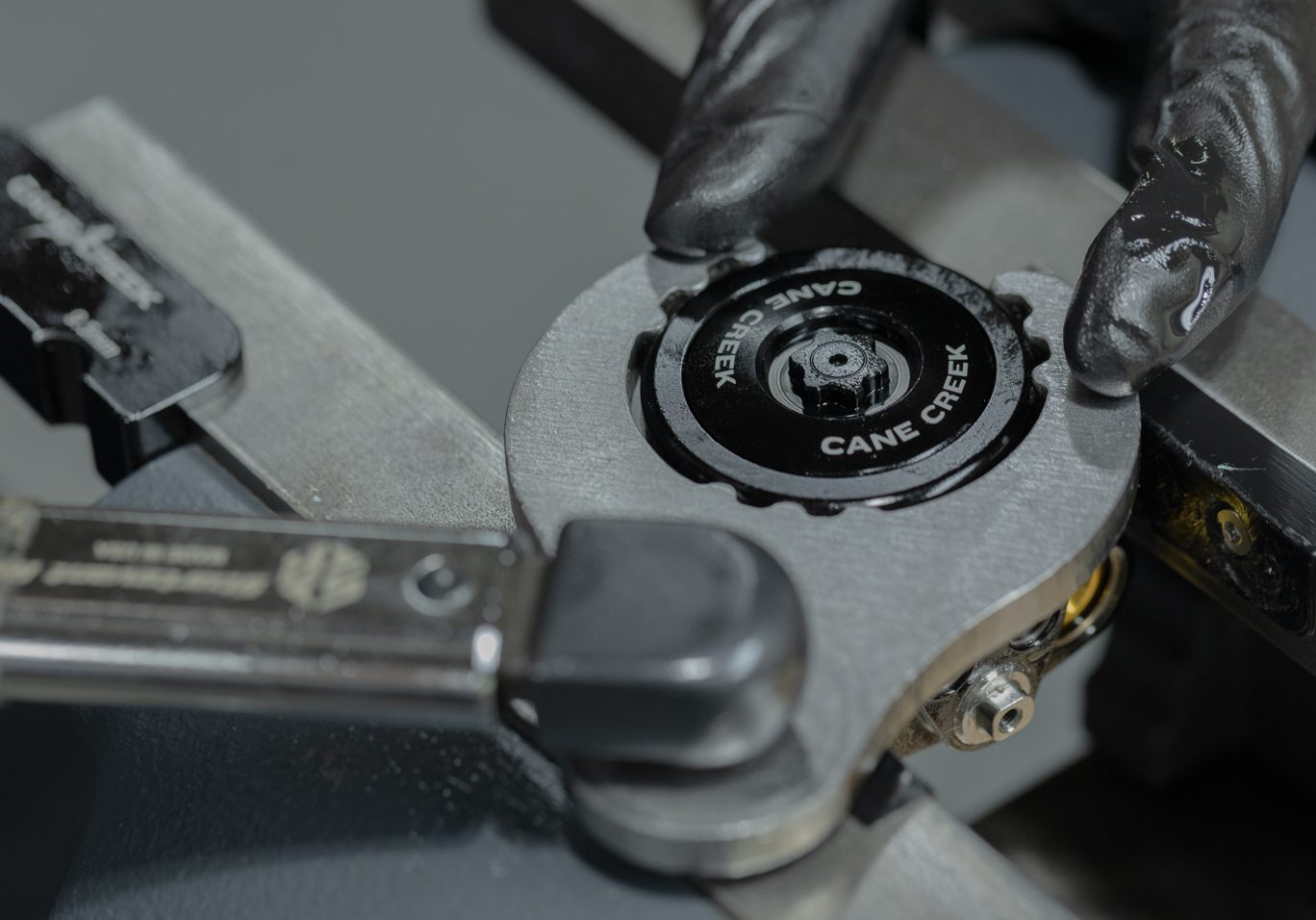
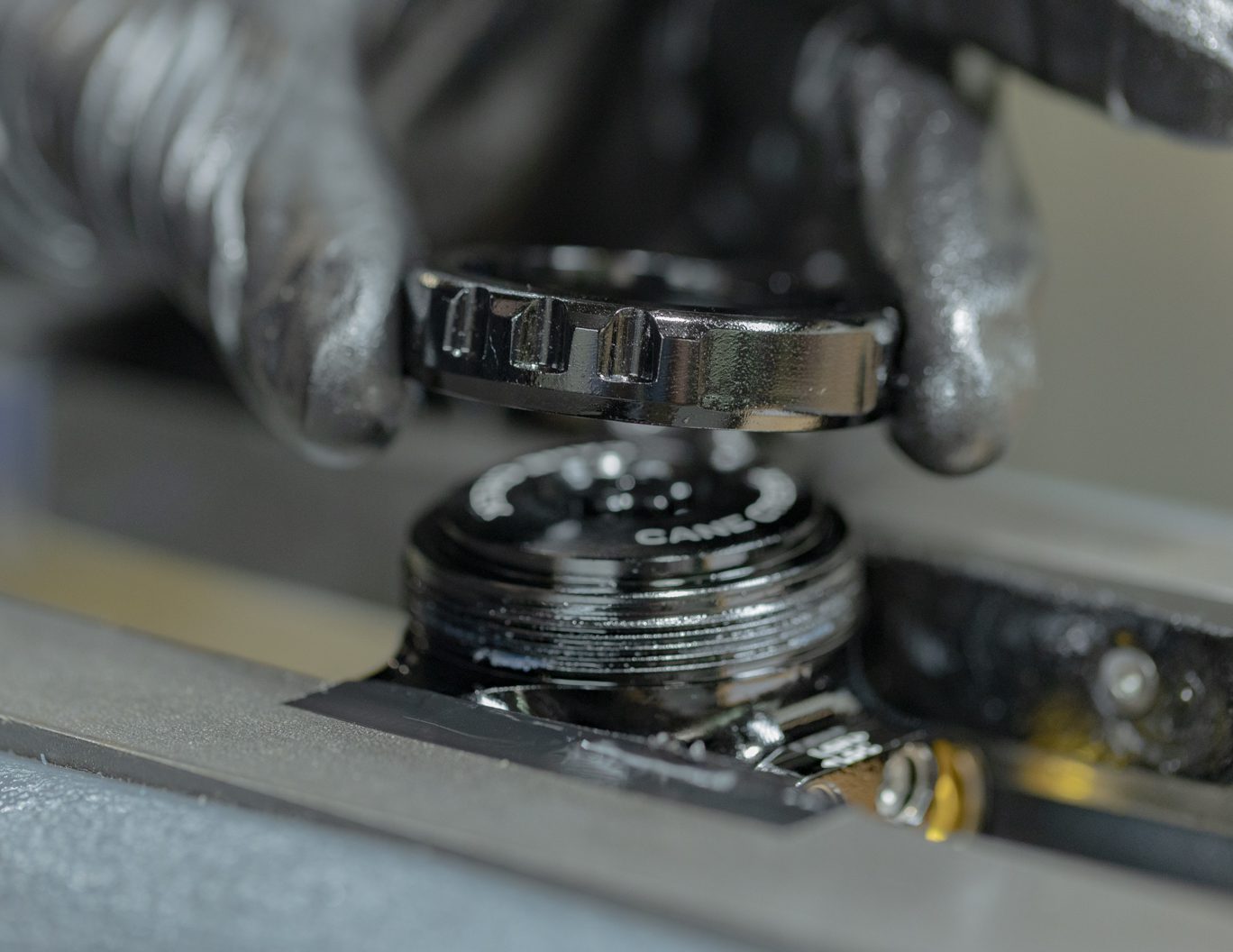
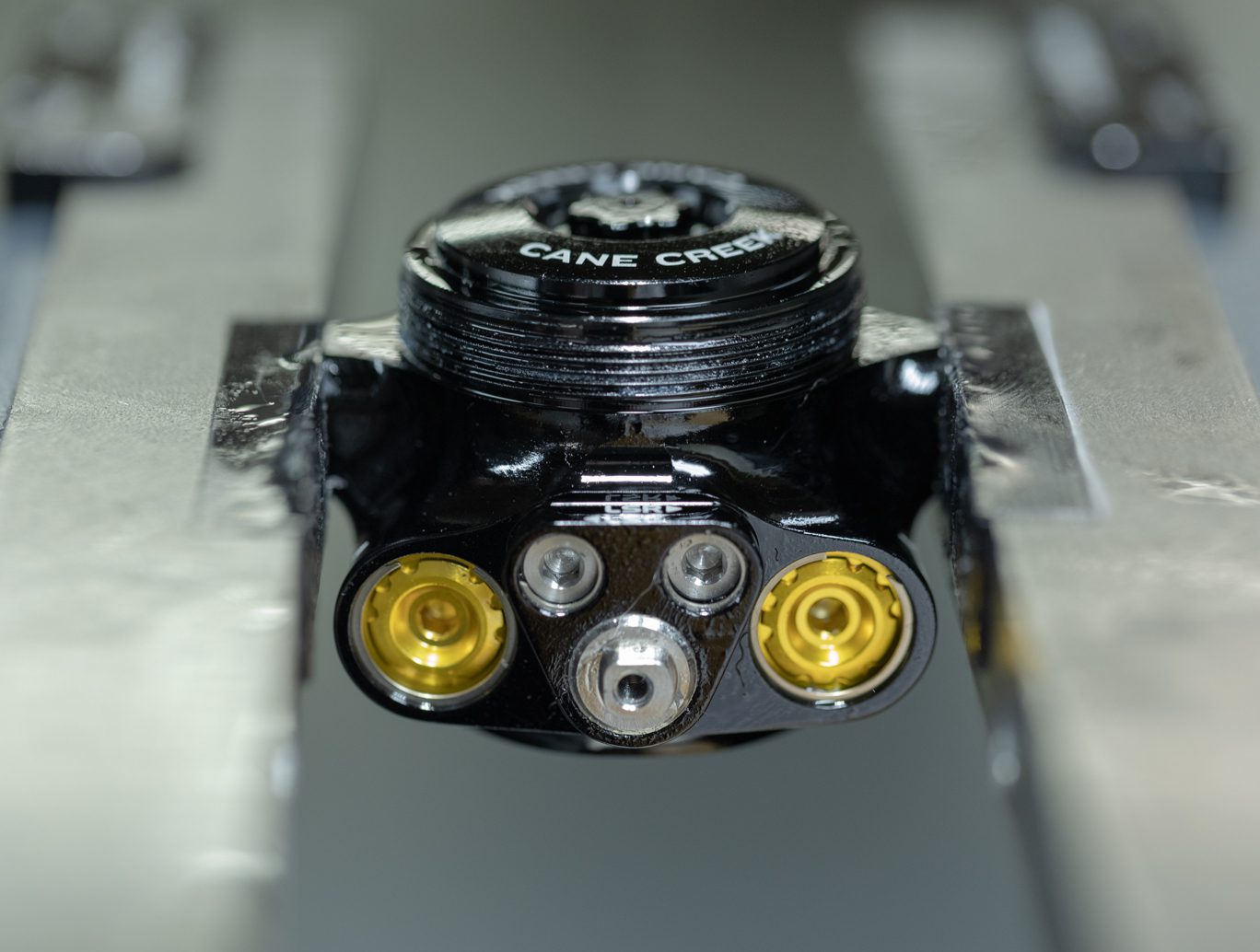
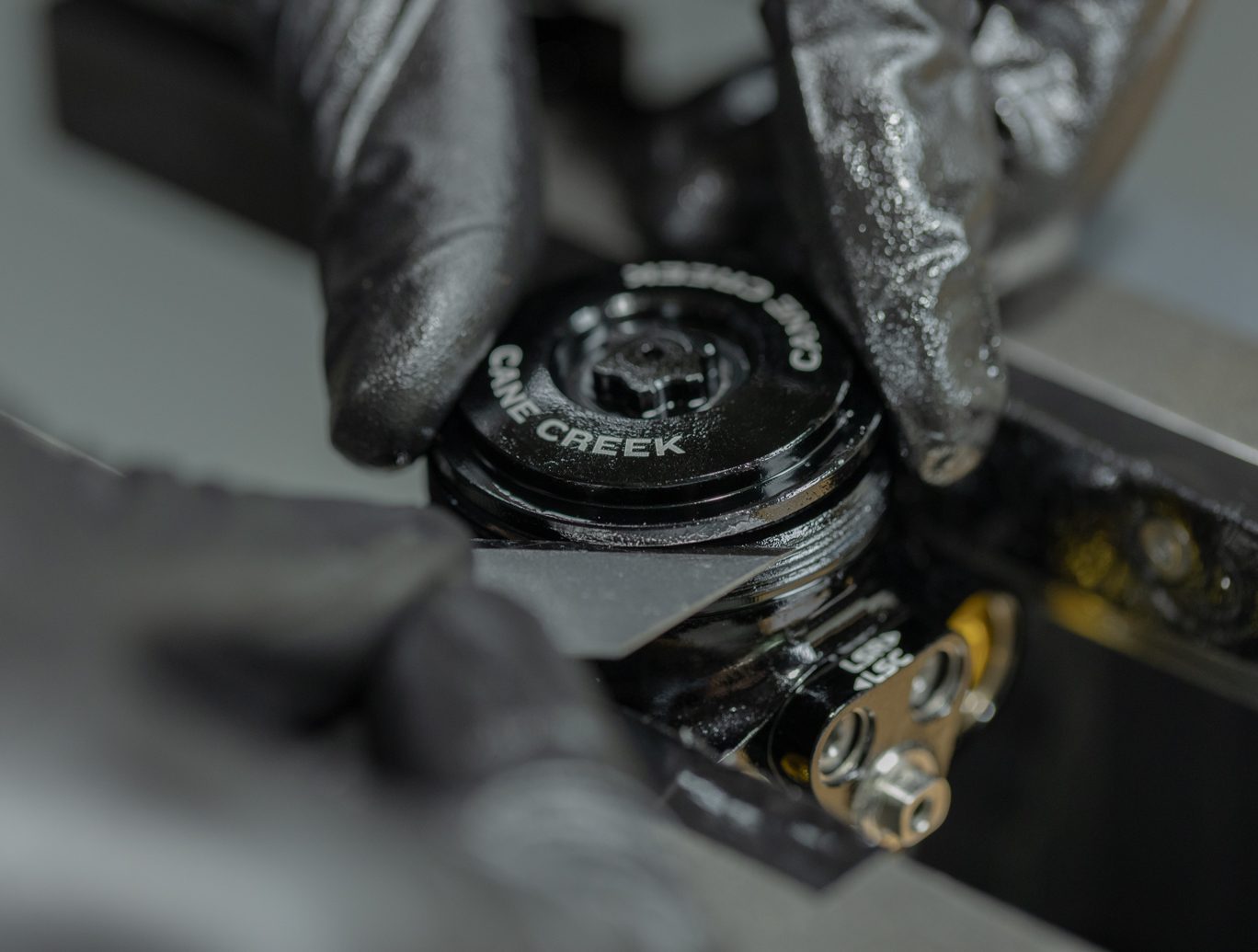
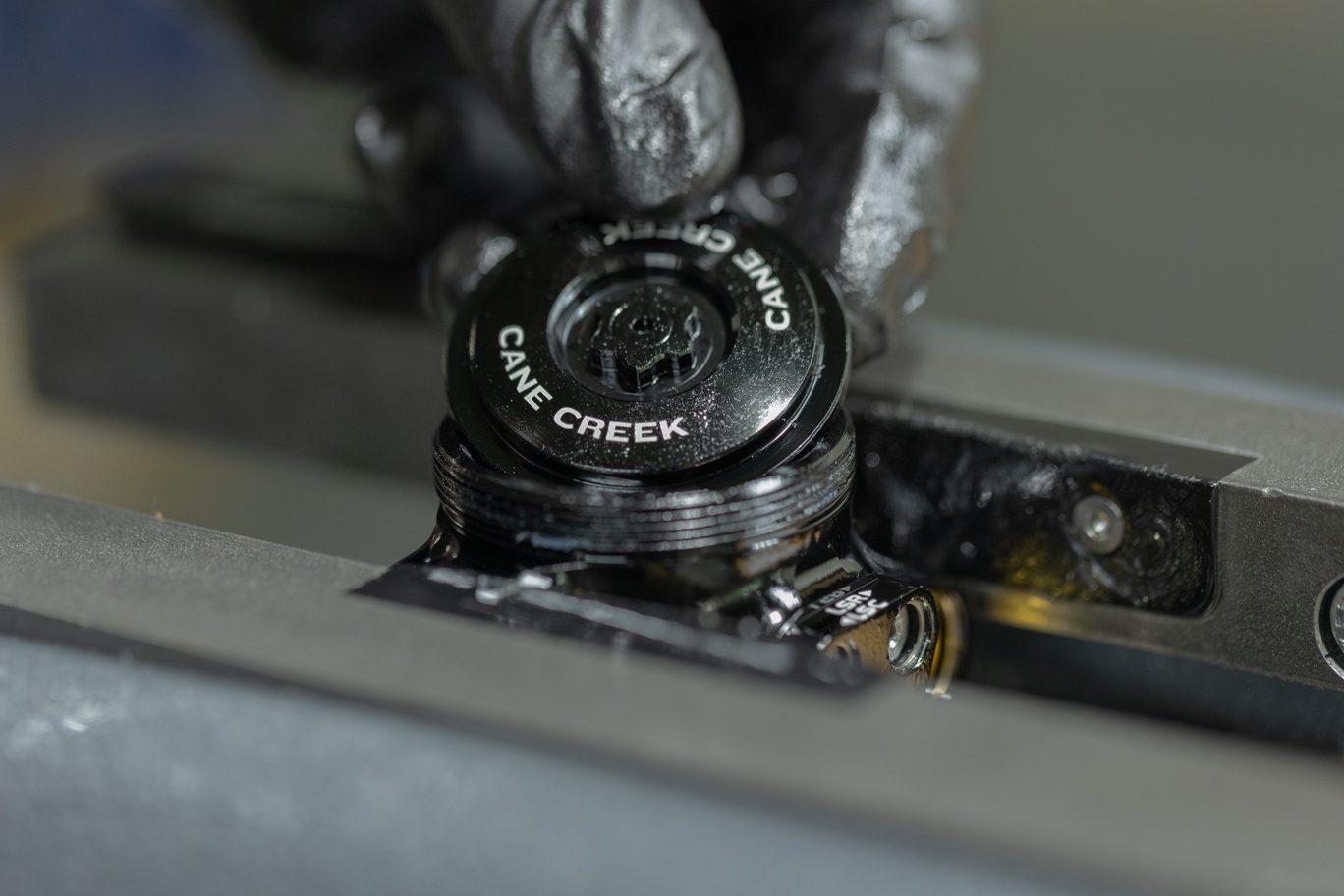
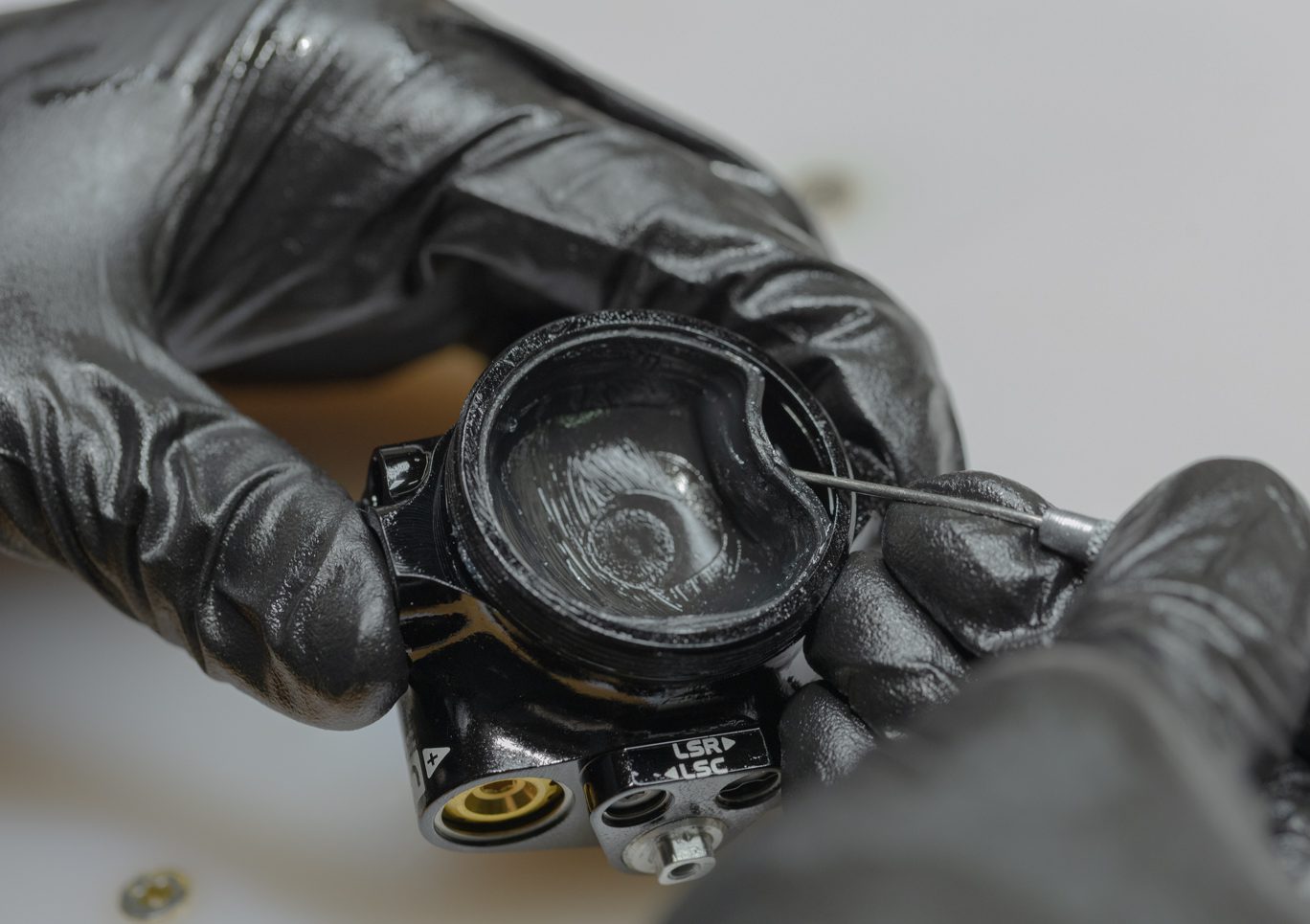
Step 4 – Gland Nut & Bladder Removal
Using Inner Damper Tool Wrench (BAD1273), remove inner damper from valve body. Inspect interior of inner damper tube for piston band wear. Inspect damper tube threads and remove any remaining Loctite with pick. Clean thoroughly. Replace inner damper tube if necessary. Remove valve body o-ring and discard.

Removing Climb Switch Lever Screw

Removing Climb Switch Lever

Gland Nut Wrench on Gland Nut

Gland Nut Removal

Gland Nut Removed

Prying Gland Cover off

Gland Cover Removal

Bladder Removal
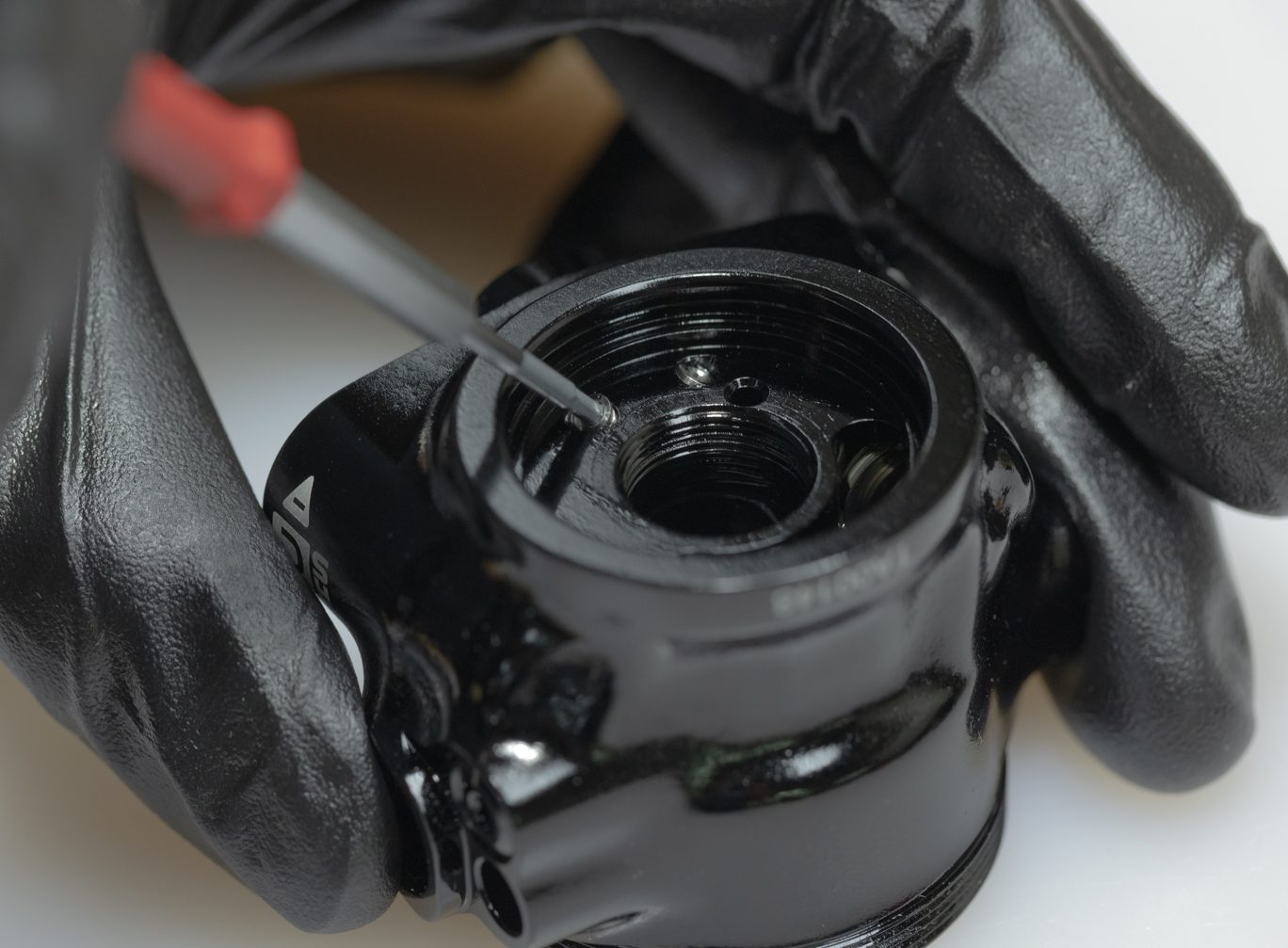
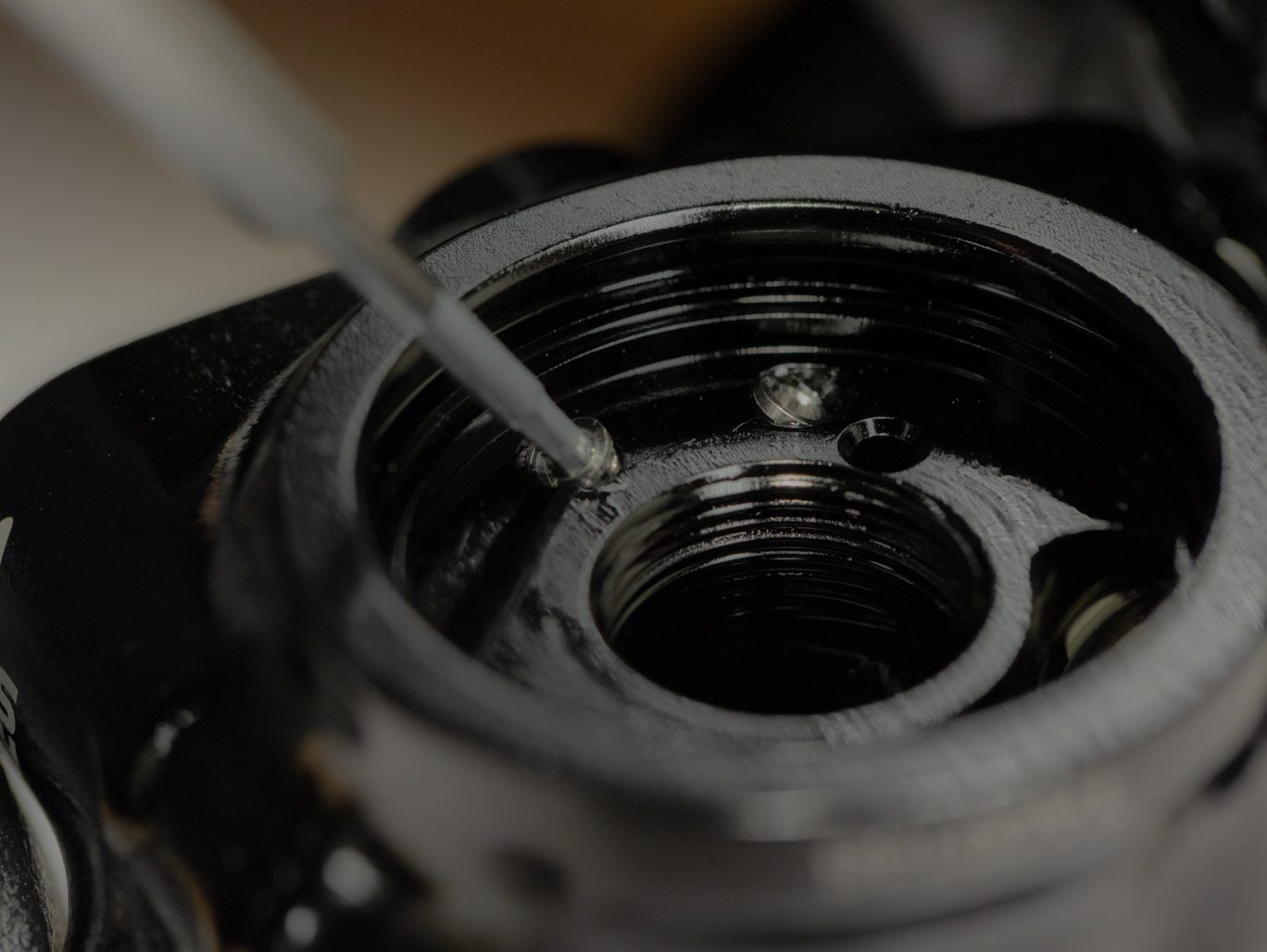
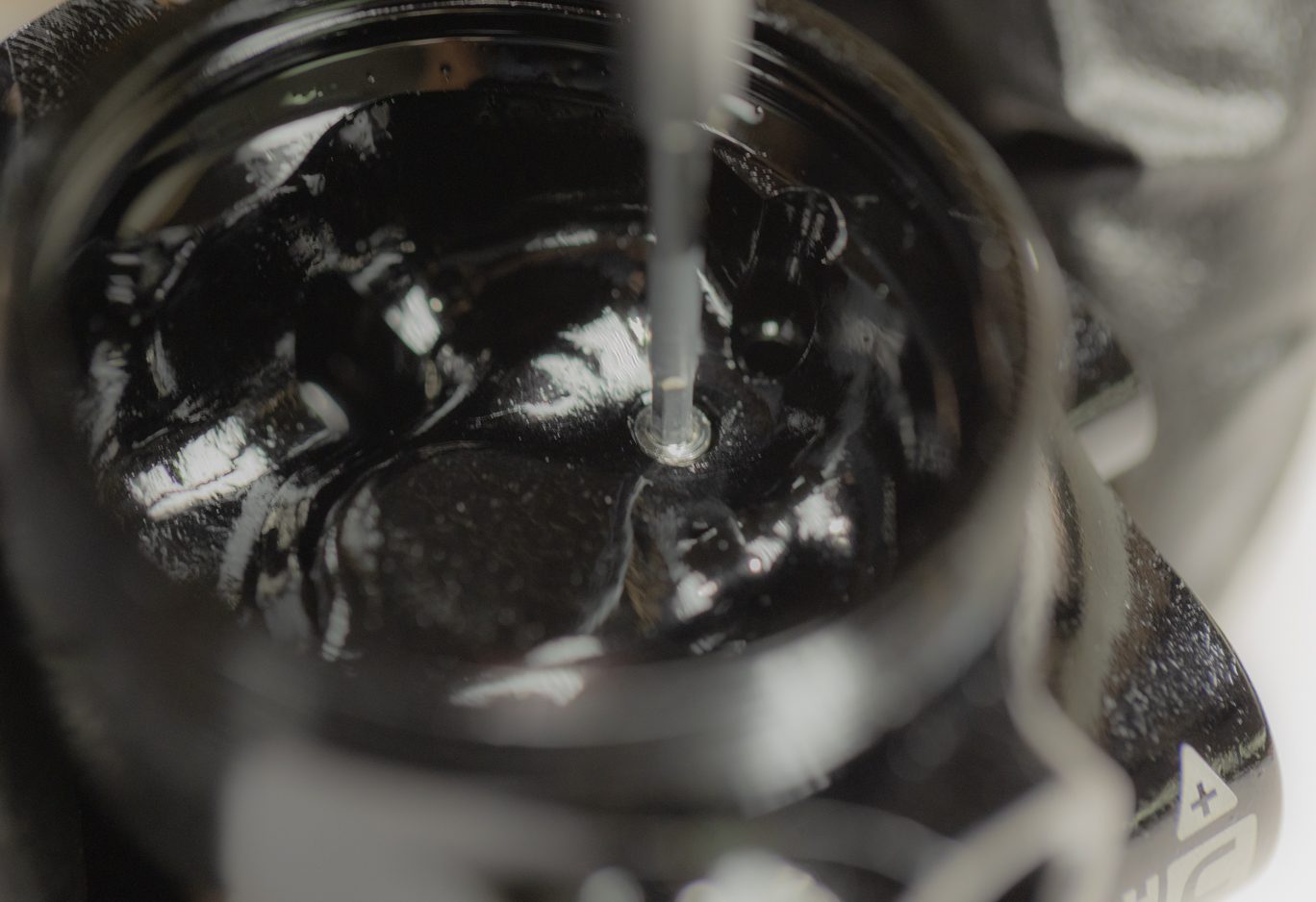
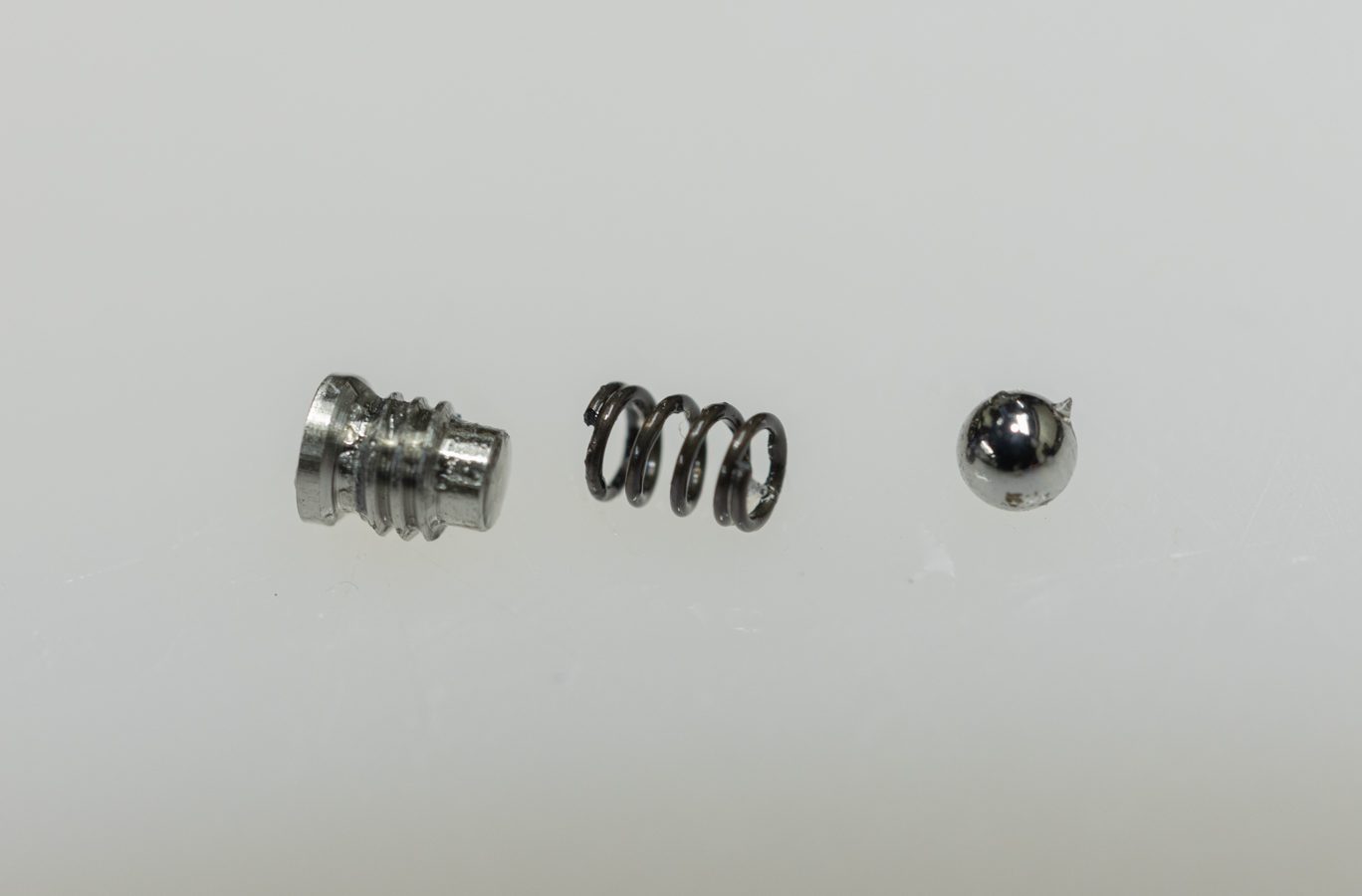
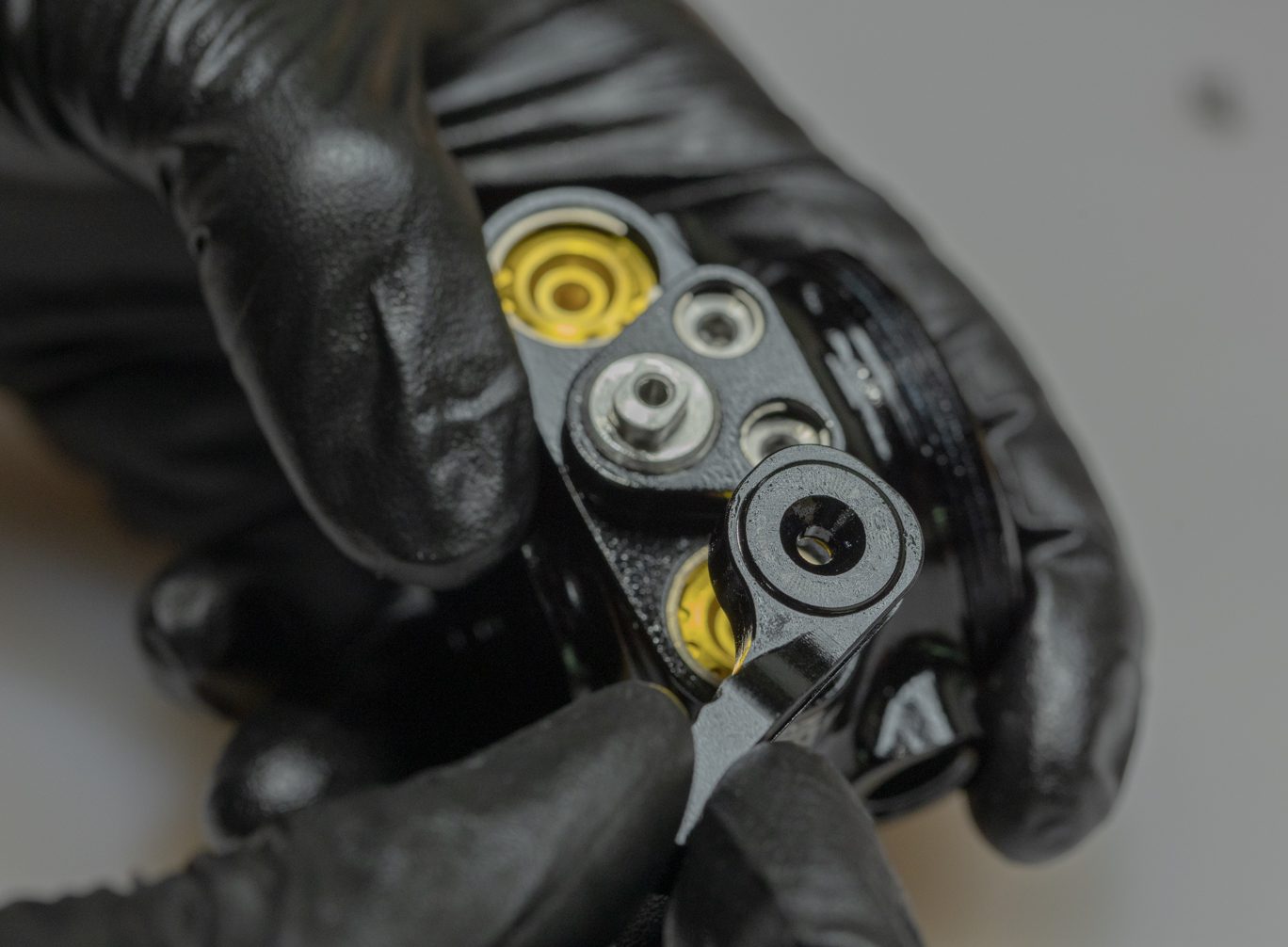
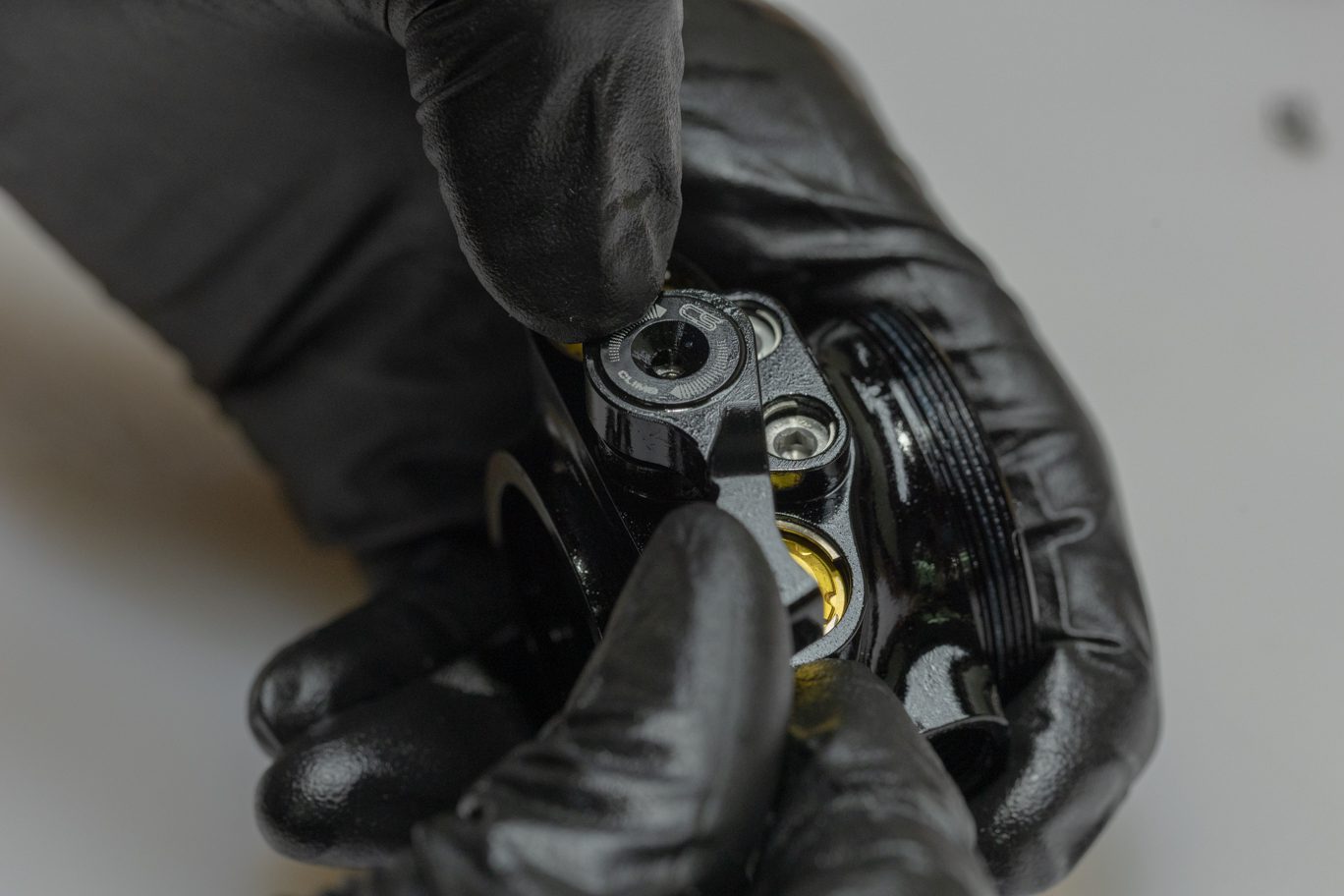
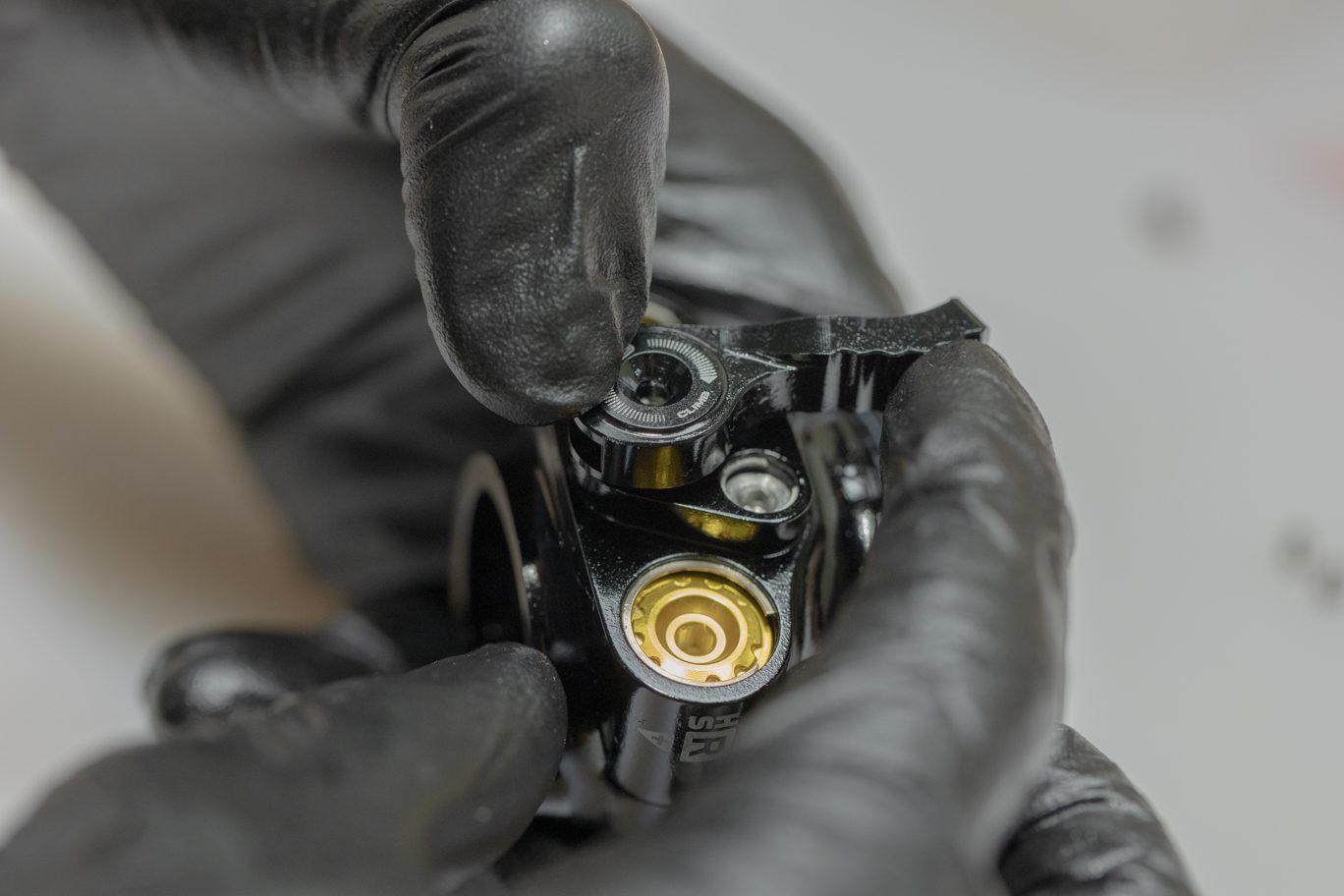
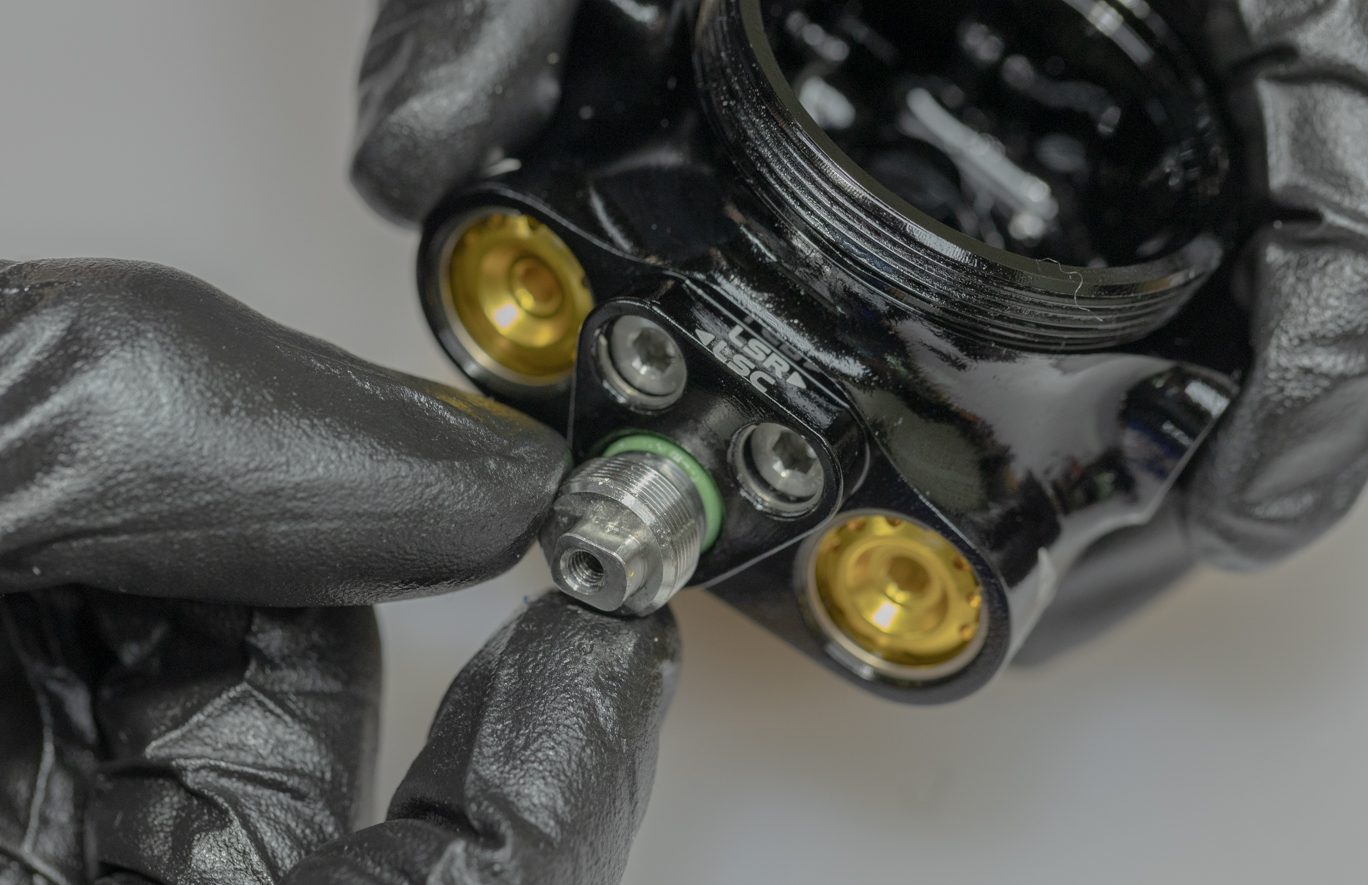
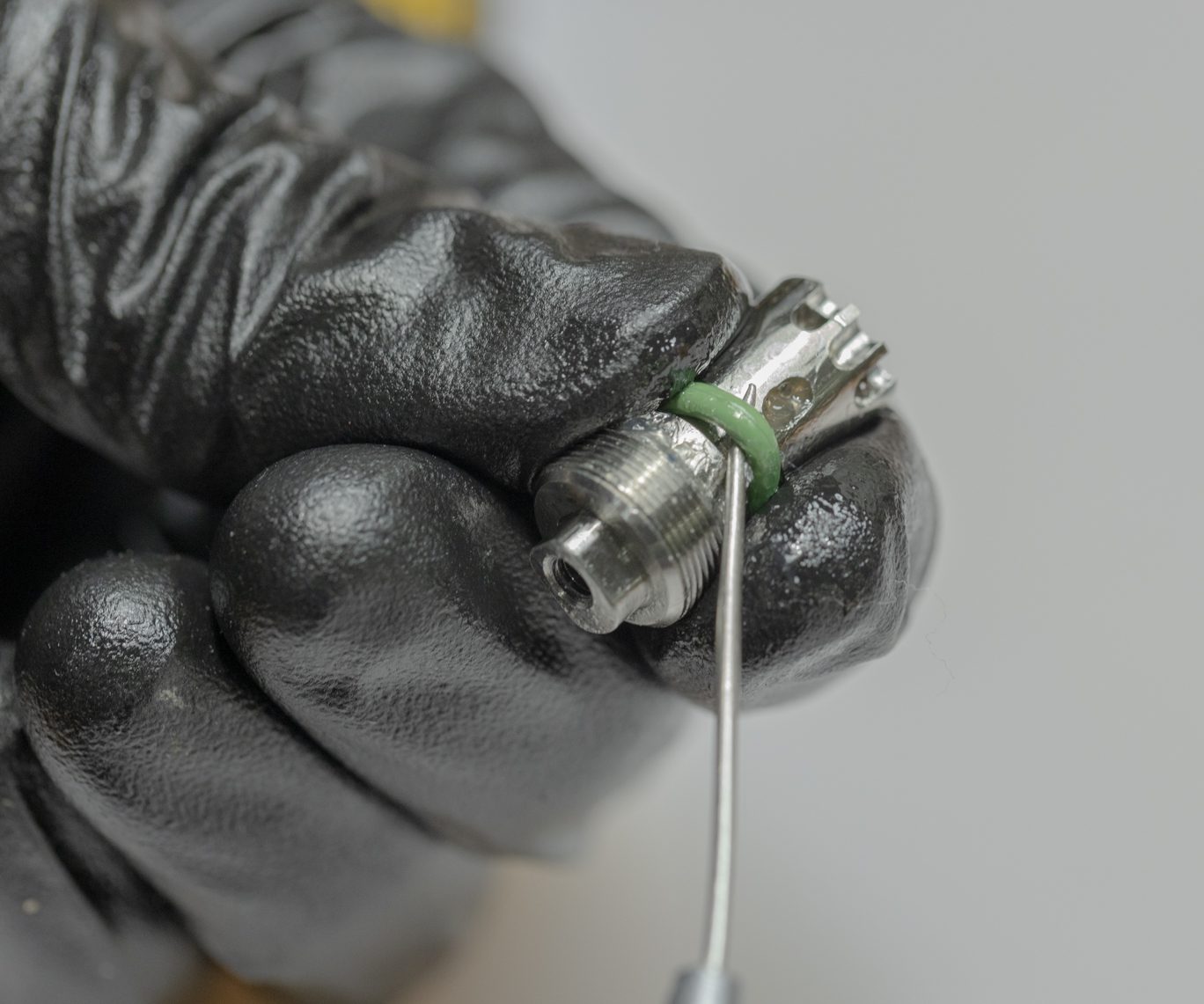
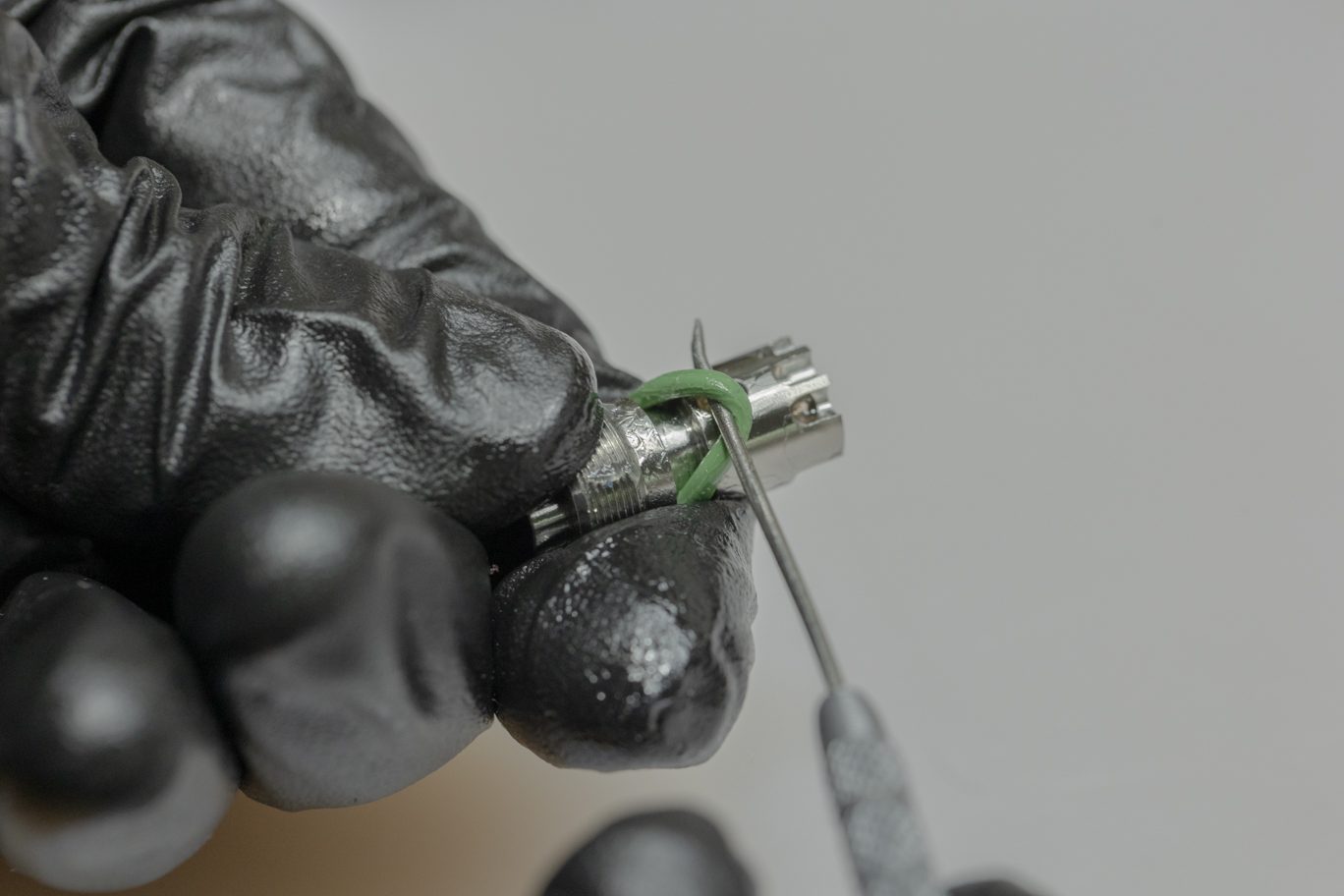
Step 5 – CS Spool Valve Removal
Using a 1.5mm Allen, remove 2 set screws located inside of valve body next to inner damper tube purchase. Remove remaining set screw in valve body exposing spring and detent ball. Remove spring and detent ball. Using CS lever, unthread spool valve and remove. Pinch & remove and discard spool valve o-ring.

CS Set Screw Removal 1

CS Set Screw Removal 2

CS Set Screw Removal 3

CS Set Screw, Spring & Detent

CS Lever

CS Lever on Spool Valve

CS Lever Loosening Spool Valve

Spool Valve Removal

Spool Valve O-Ring Removal 1

Spool Valve O-Ring Removal 2
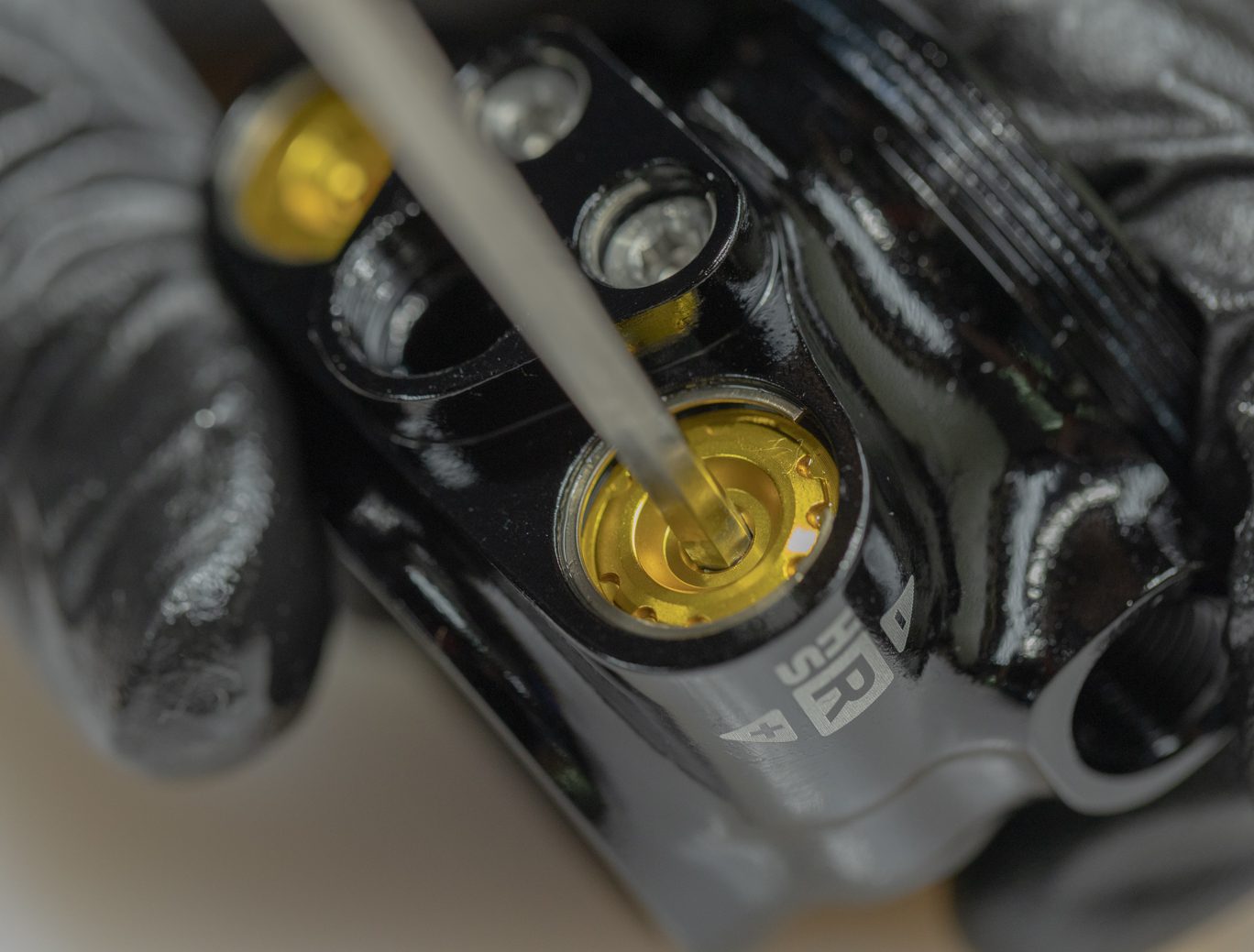
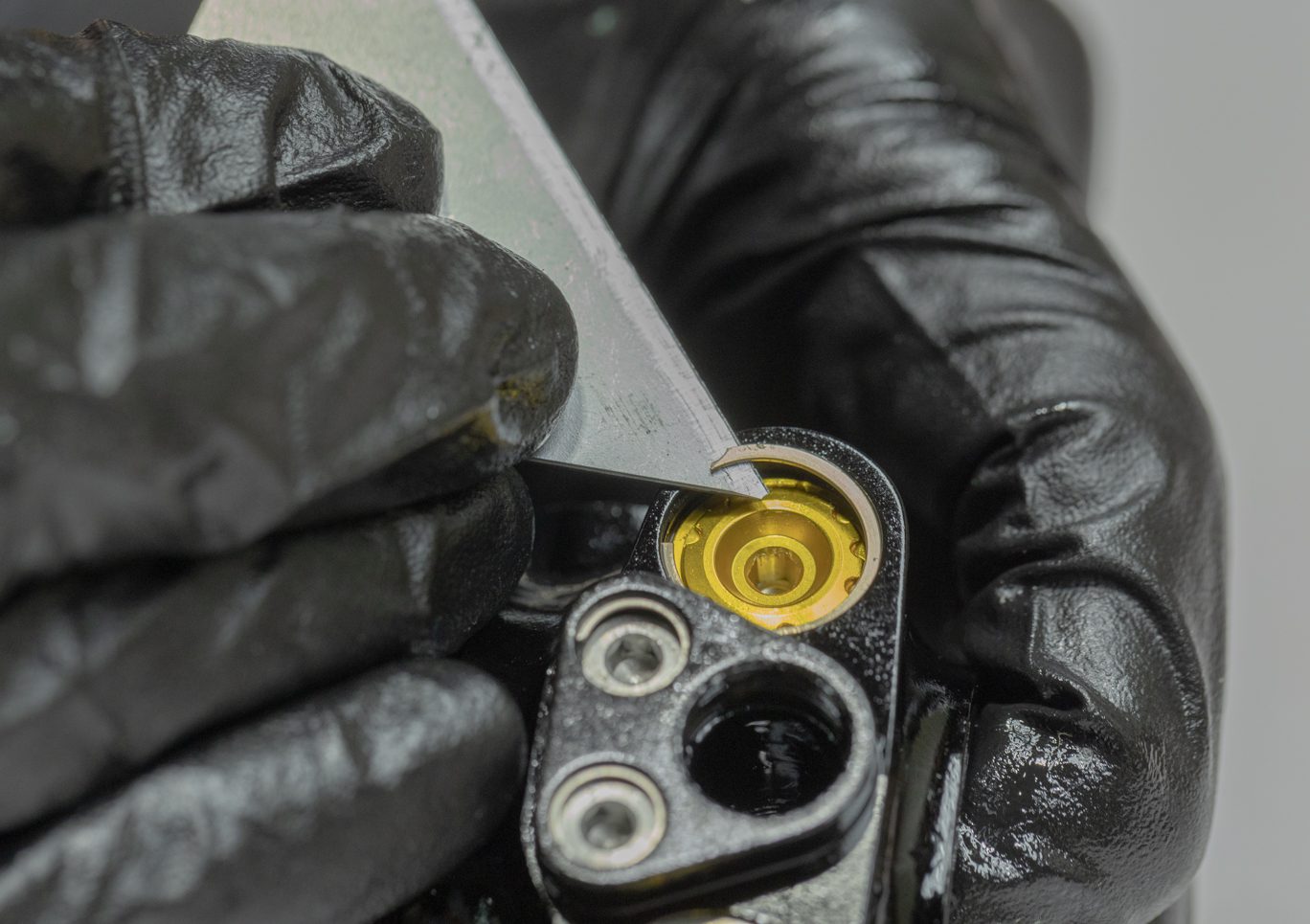
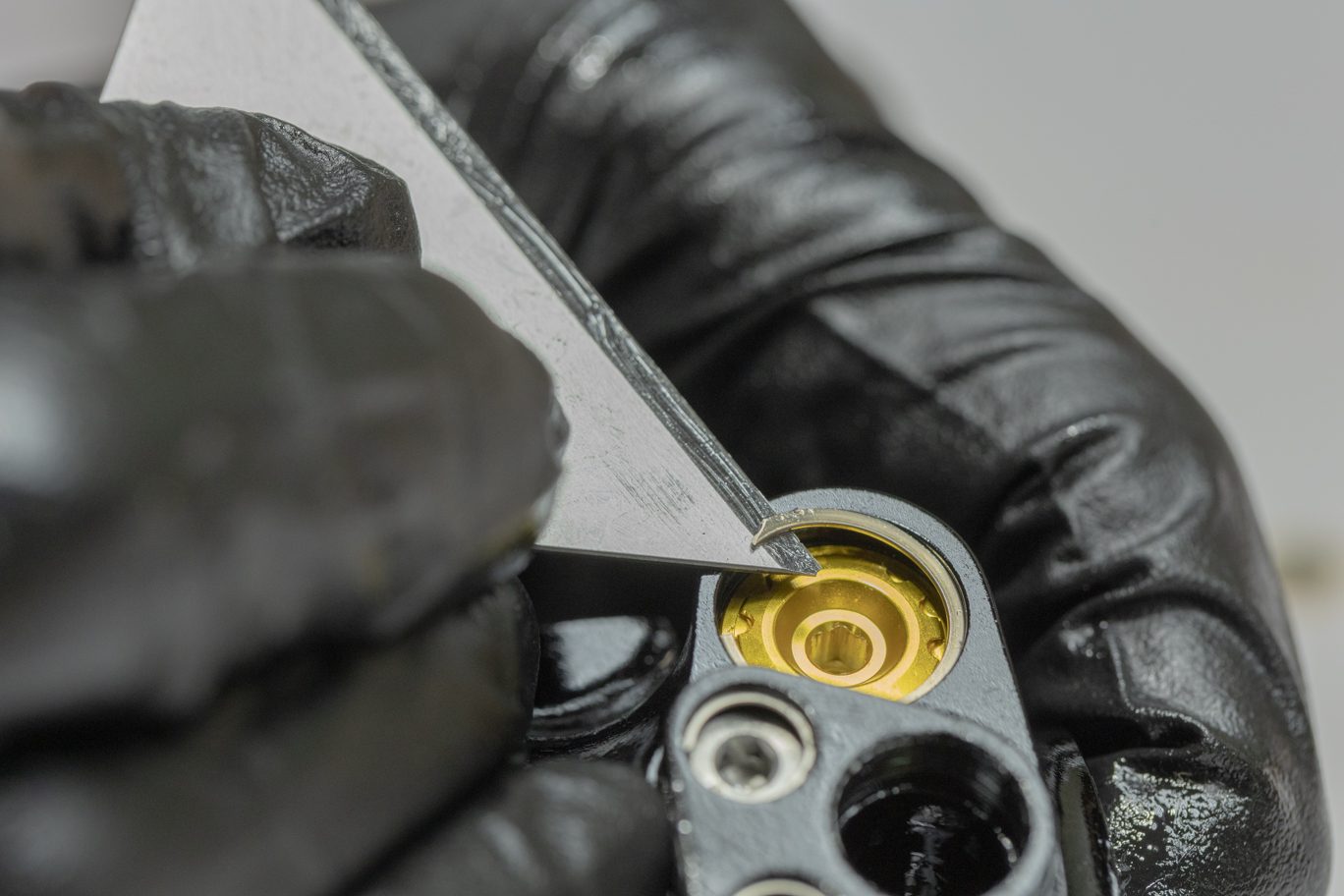
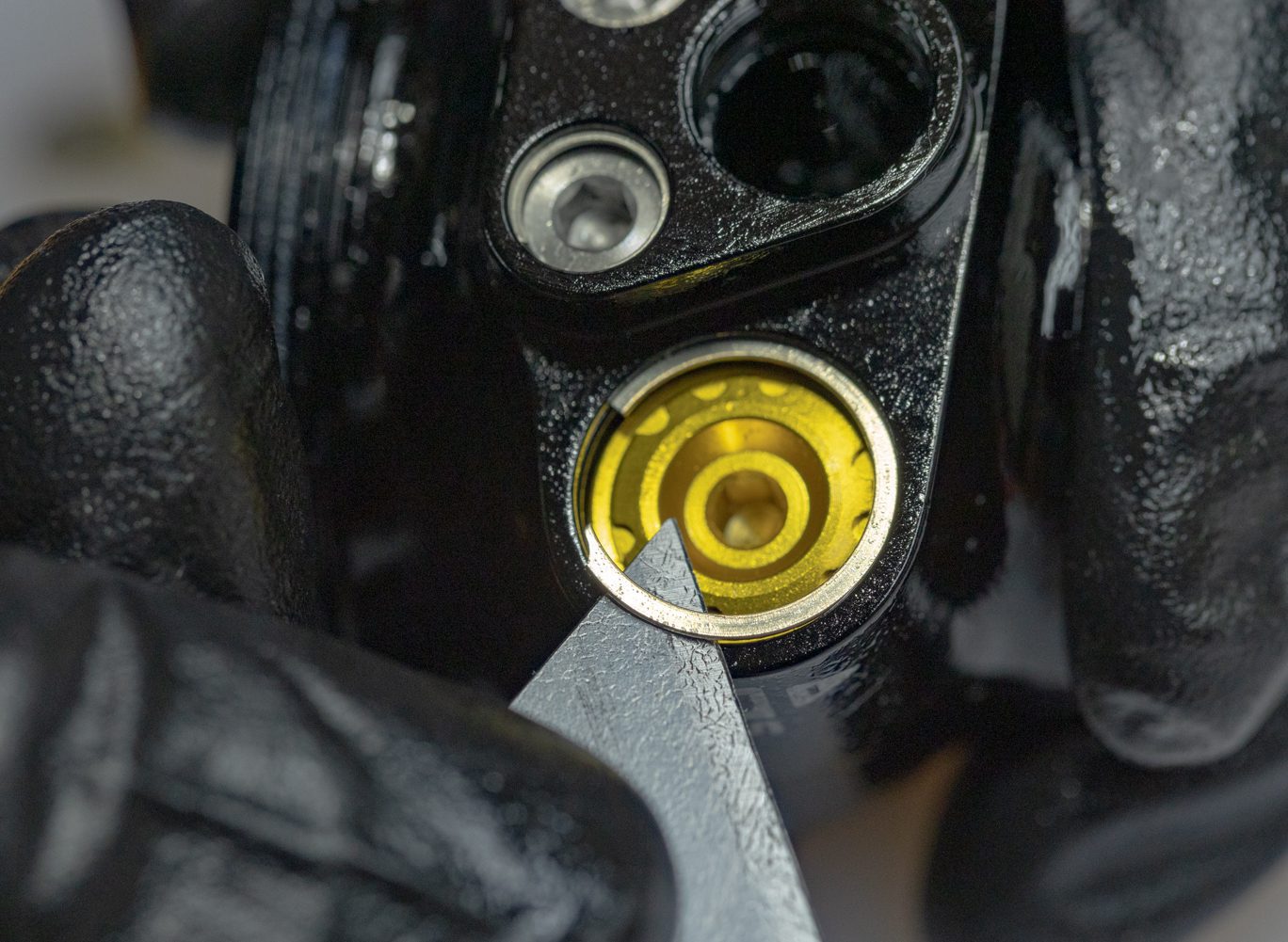
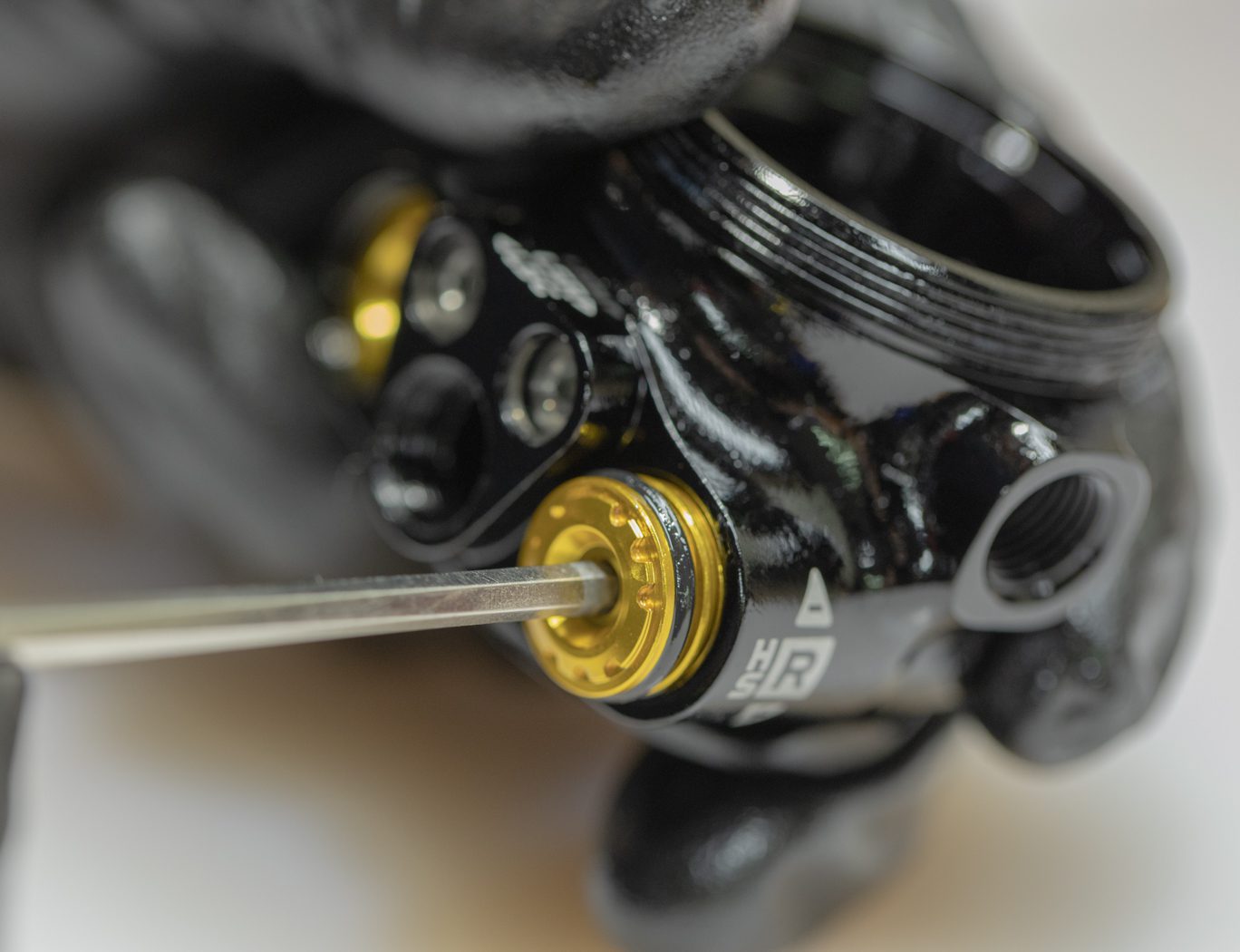
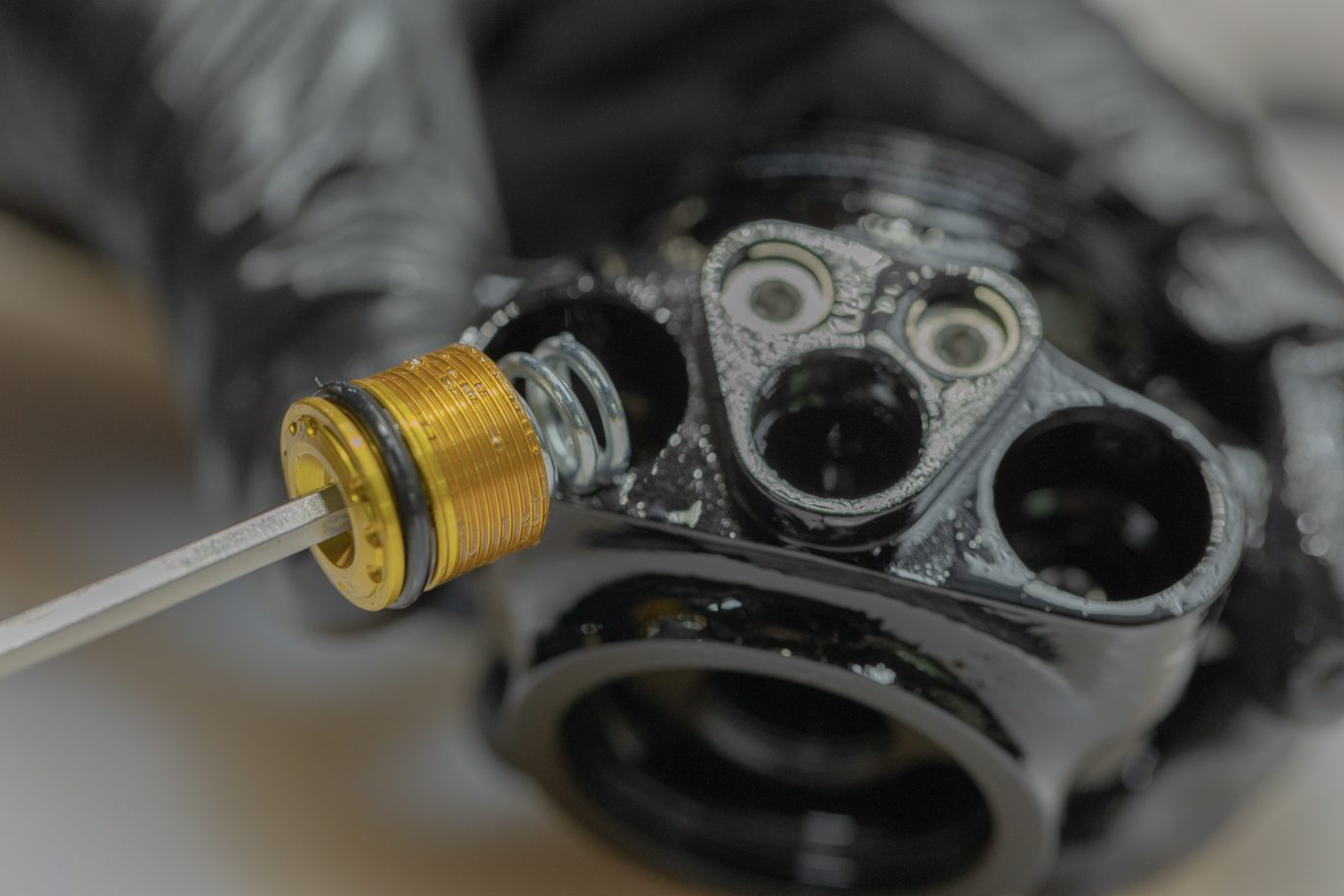
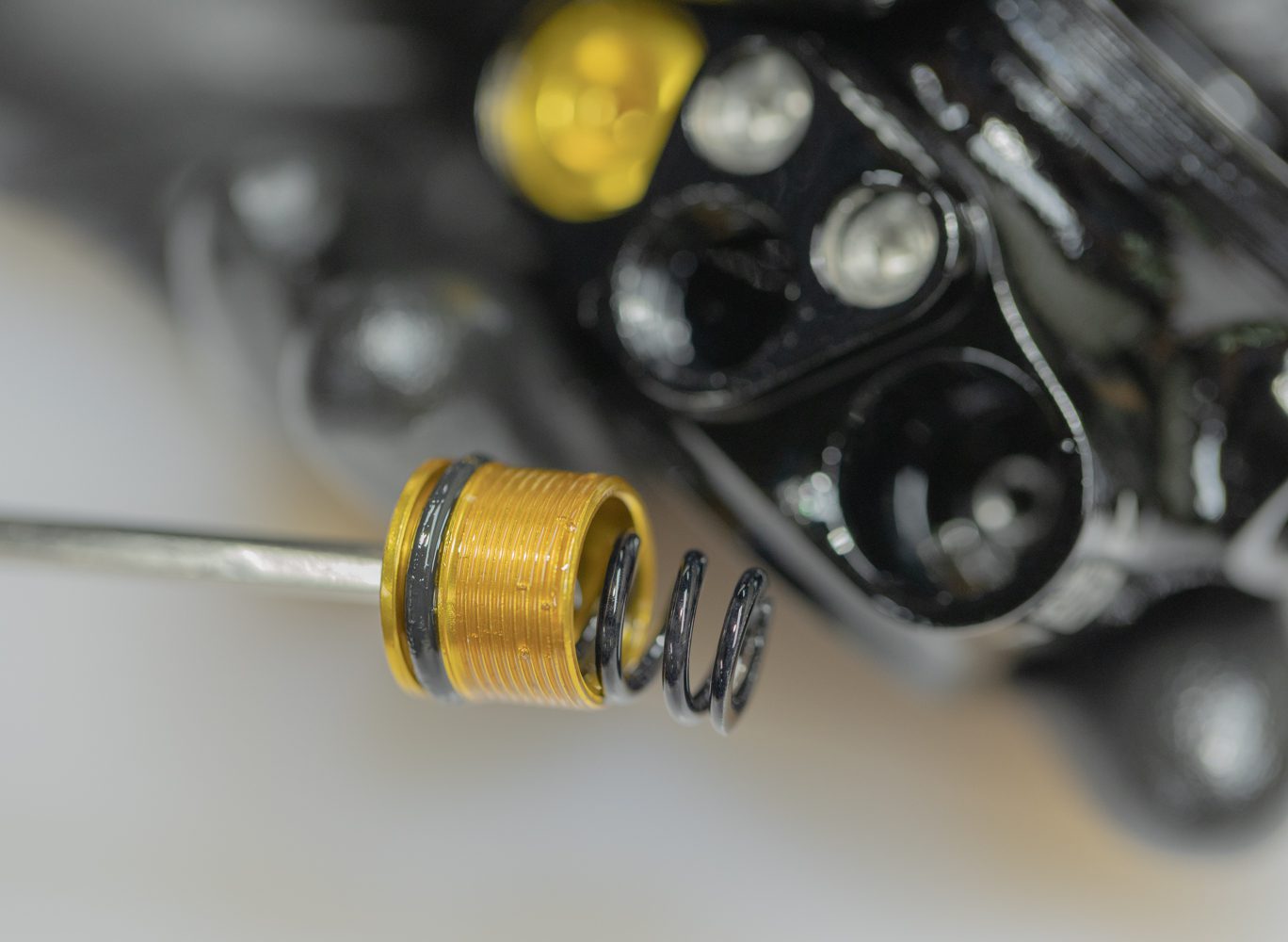
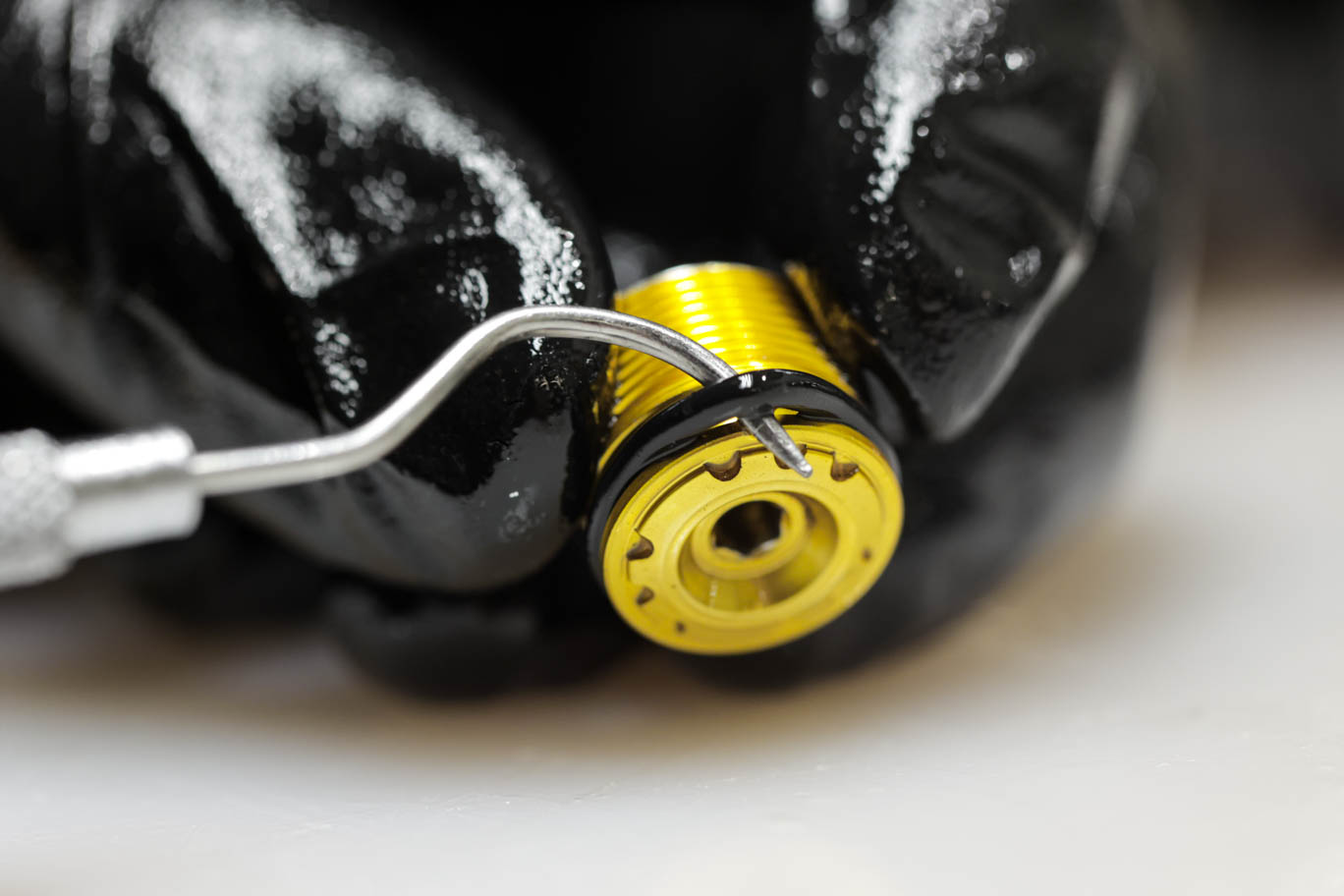
Step 6 – High Speed Adjusters Removal
Using 3mm Allen, dial High Speed adjusters in to gain access to High Speed circlips. Remove circlips. Back High Speed adjusters all the way out. Pinch & remove and discard o-rings on adjusters.
Note that the Compression spring is 20wt (silver), rebound is 30wt (black).

Dialing In High Speed Adjusters

Circlip Removal from High Speed Adjusters 1

Circlip Removal from High Speed Adjusters 2

Circlip Removal from High Speed Adjusters 3

Removing High Speed Adjusters

High Speed Compression Adjuster

High Speed Rebound Adjuster

High Speed Adjuster O-Ring Removal
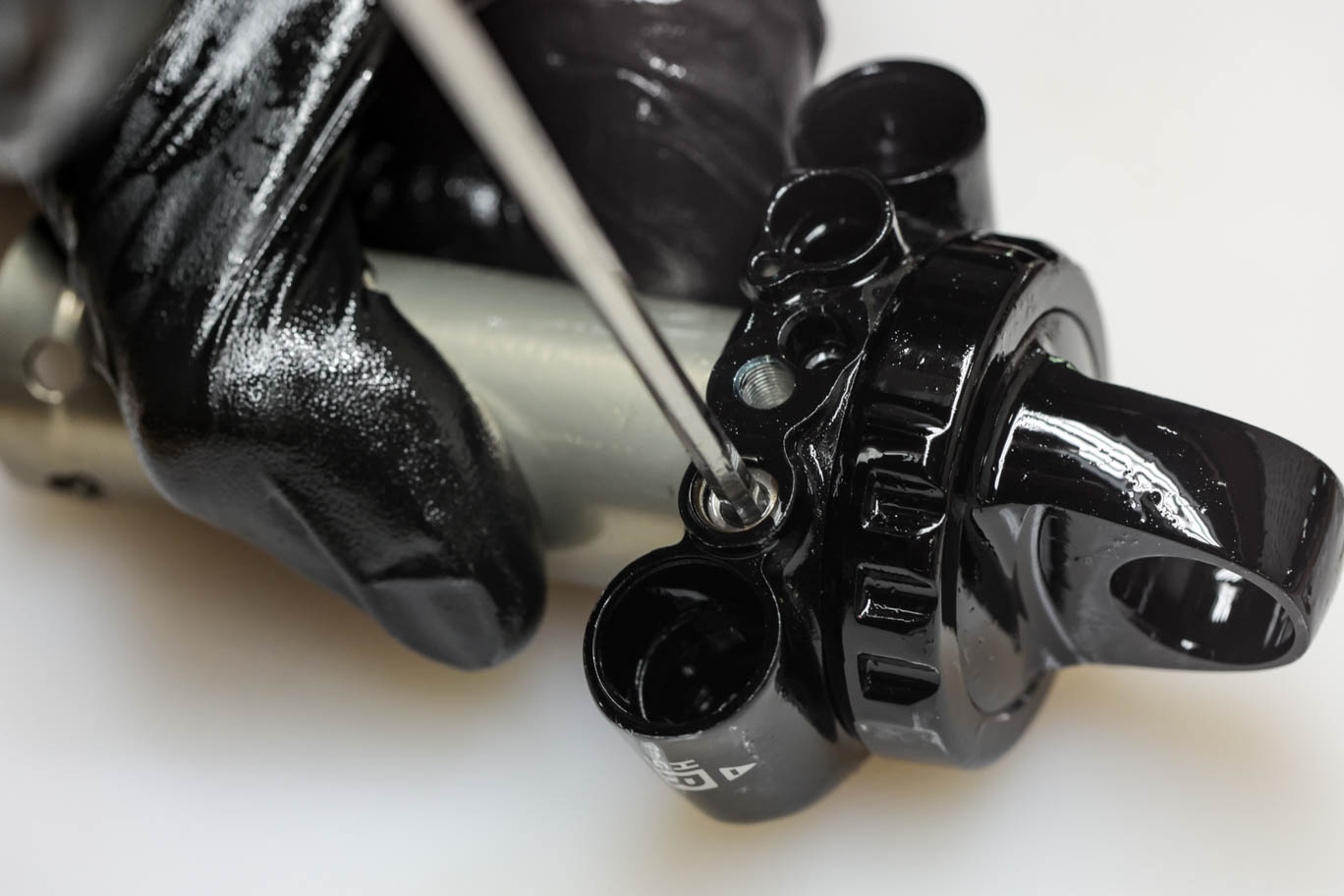
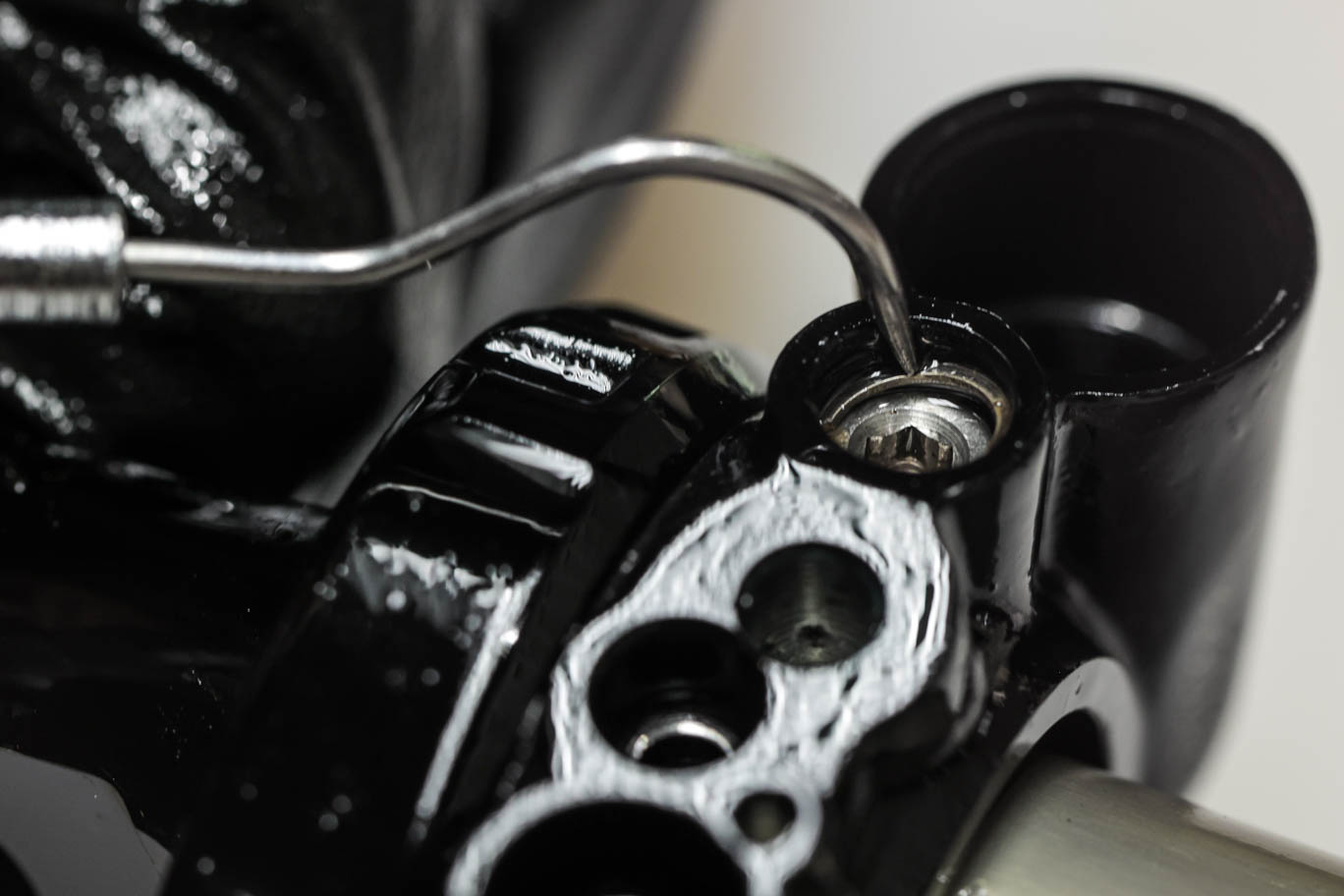
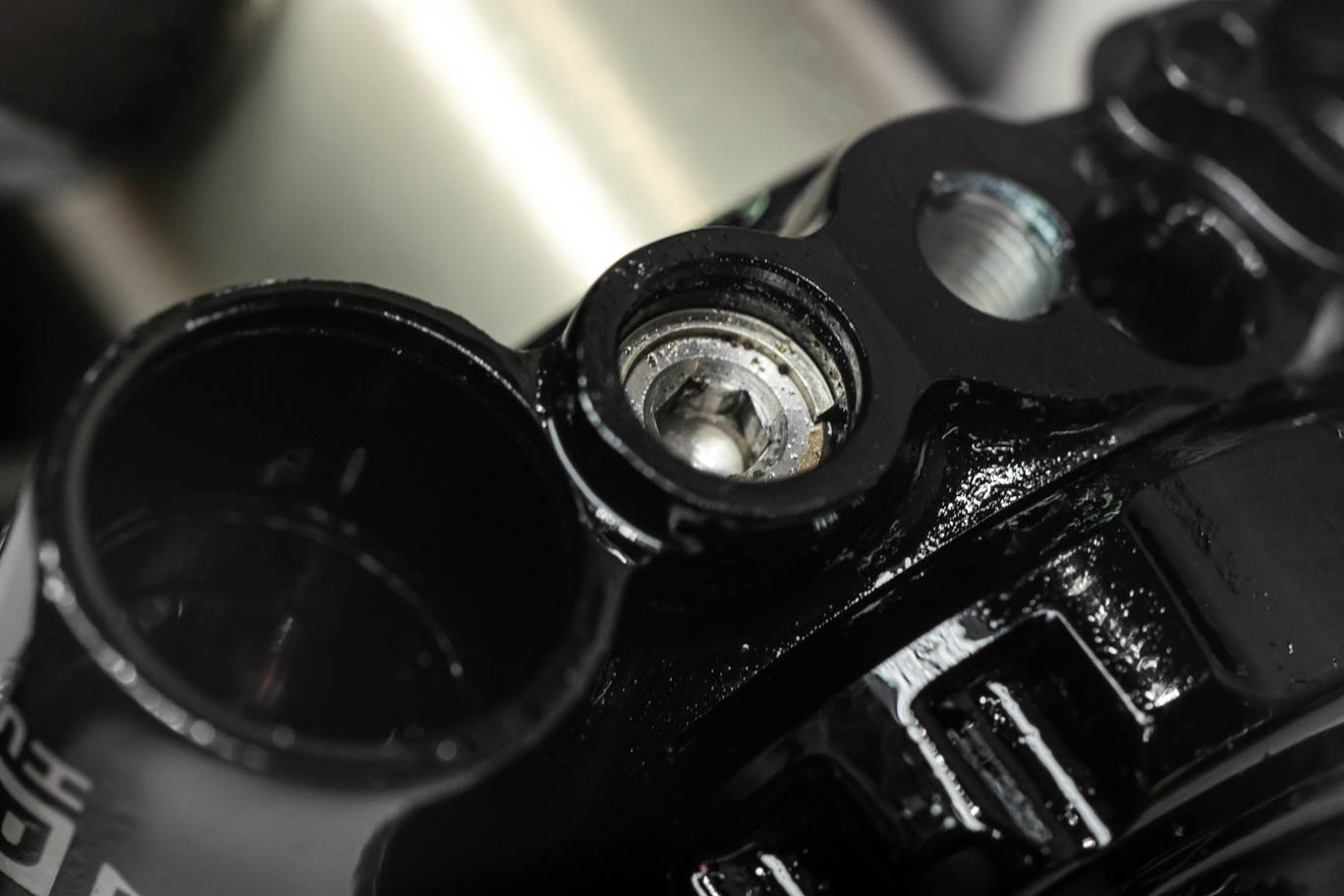
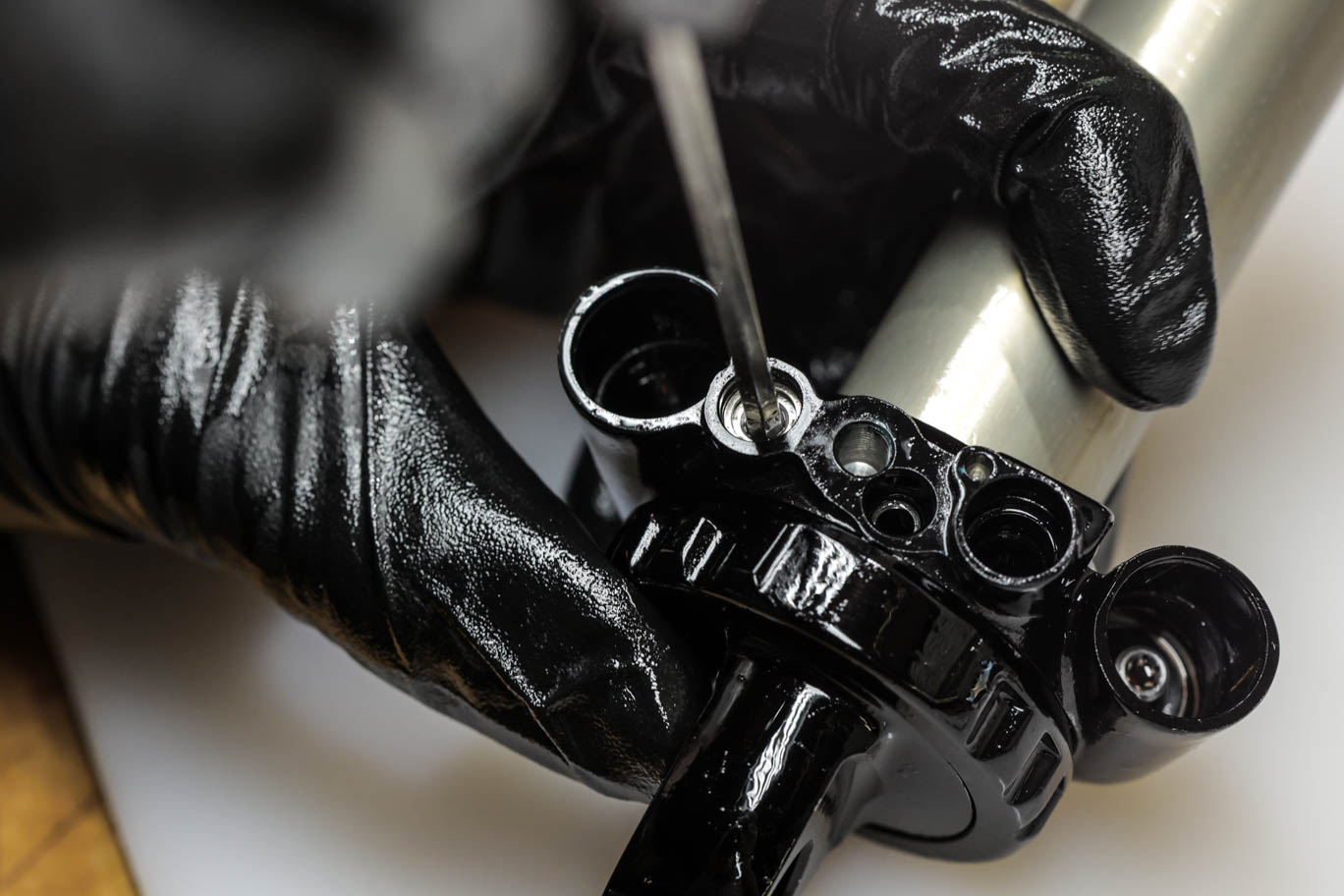
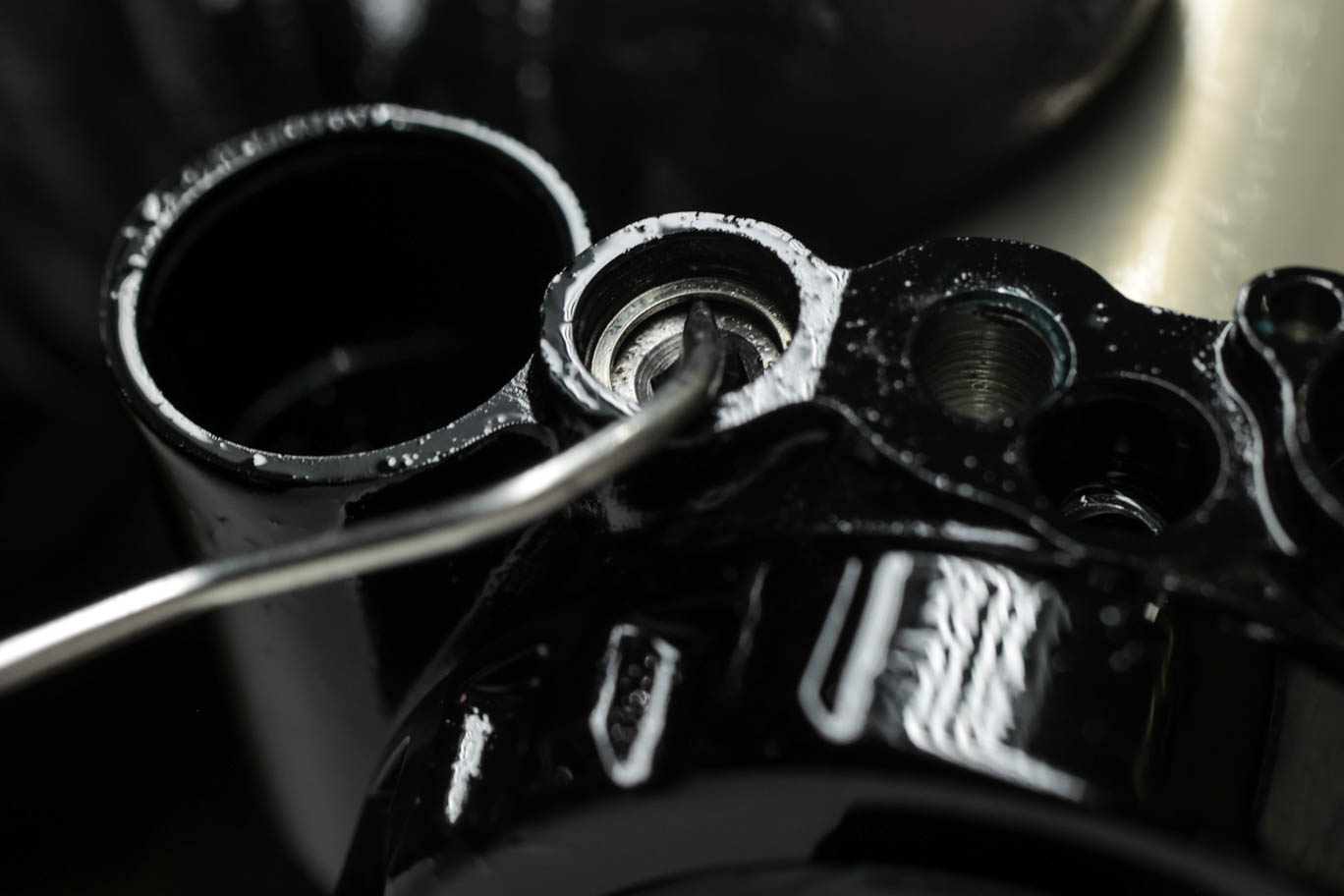
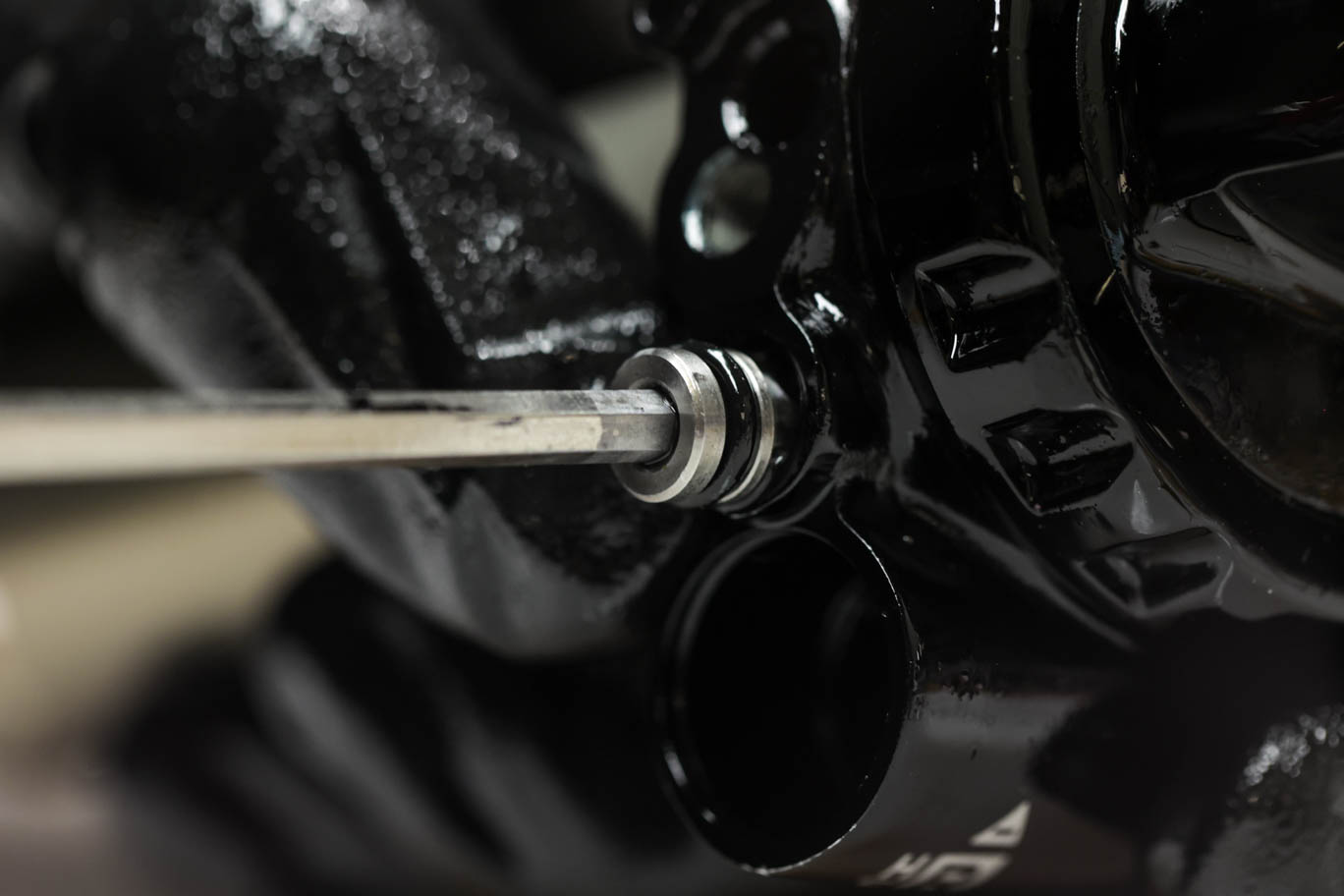
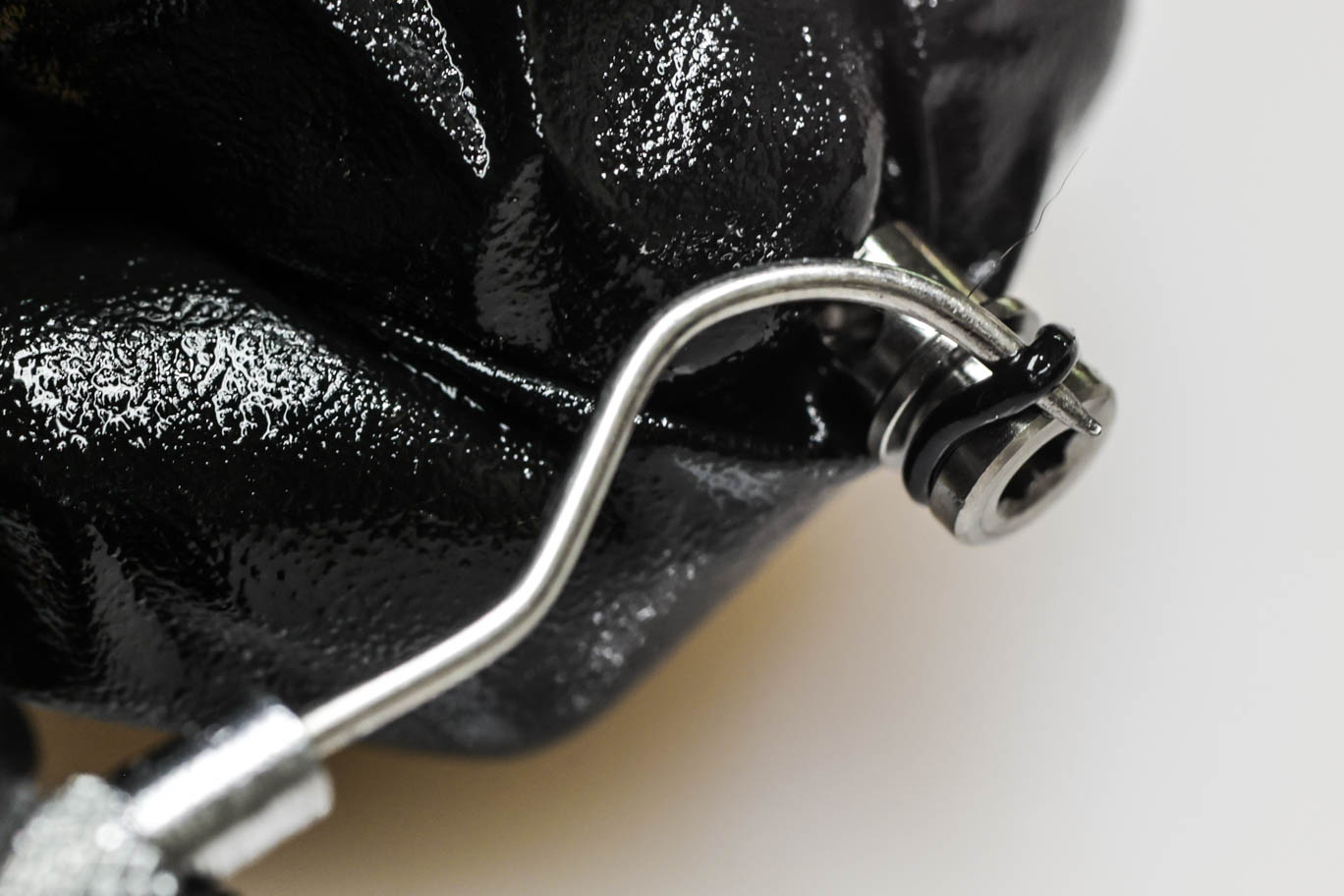
Step 7 – Low Speed Adjusters Removal
Gently bottom out Low Speed adjuster needles with 3mm Allen. Using a sharp blade, work circlips below retaining shelf all the way to needles. Back needles out 5-7 clicks and then rebottom needles to gain access to circlips. Using pick centered on circlips, pry up diagonally to pull circlips past shelf and remove. Unthread and remove needles. Remove and discard o-rings.

Low Speed Rebound Bottom Out

Low Speed Rebound Circlip Removal 1

Low Speed Rebound Circlip Removal 2

Low Speed Rebound Circlip Removal 3

Low Speed Rebound Circlip Removal 4

Low Speed Rebound Needle Removal

Low Speed Rebound Needle O-Ring Removal
Continue to Part 2
Next
